Tom's Hardware Verdict
The Thermaltake Toughpower GF3 850W is one of the first ATX 3.0 and PCIe 5.0-ready PSUs, with decent performance and quiet operation at normal operating conditions.
Pros
- +
Full power at 47 degrees Celsius
- +
High enough overall performance
- +
Good build quality
- +
Efficient at light loads
- +
Capable APFC converter
- +
Low inrush current with 115V
- +
Not noisy under normal operating conditions
- +
Fully modular
- +
ATX 3.0 and PCIe 5.0 ready
- +
Compatible with the alternative sleep mode
- +
Selectable semi-passive operation
- +
10-year warranty
Cons
- -
Overall efficiency needs a boost
- -
High inrush current with 230V input
- -
Average transient response at 12V
- -
Below 16ms AC Loss to PWR_OK hold-up time
Why you can trust Tom's Hardware
The Thermaltake GF3 with 850W max power offers good performance, but not high enough for it to make our list of the best PSUs. Nonetheless, it has high build quality and is one of the first 850W PSUs offering ATX 3.0 and PCIe 5.0 compatibility. The Corsair RM850x and the EVGA 850 G7, which achieve notably higher performance, are not ATX 3.0 ready and do not have 12VHPWR connectors.
Thermaltake recently introduced the GF3 line, which consists of ATX 3.0 and PCIe 5.0 ready PSUs. In this review, we will look at the model with 850W capacity, equipped with a 300W 12VHPWR connector, on paper at least, because in reality, the connector's sense pins are set for a max load of 600W. Channel Well Technology provides the platforms for all GF3 models but the 1350W and 1650W ones.
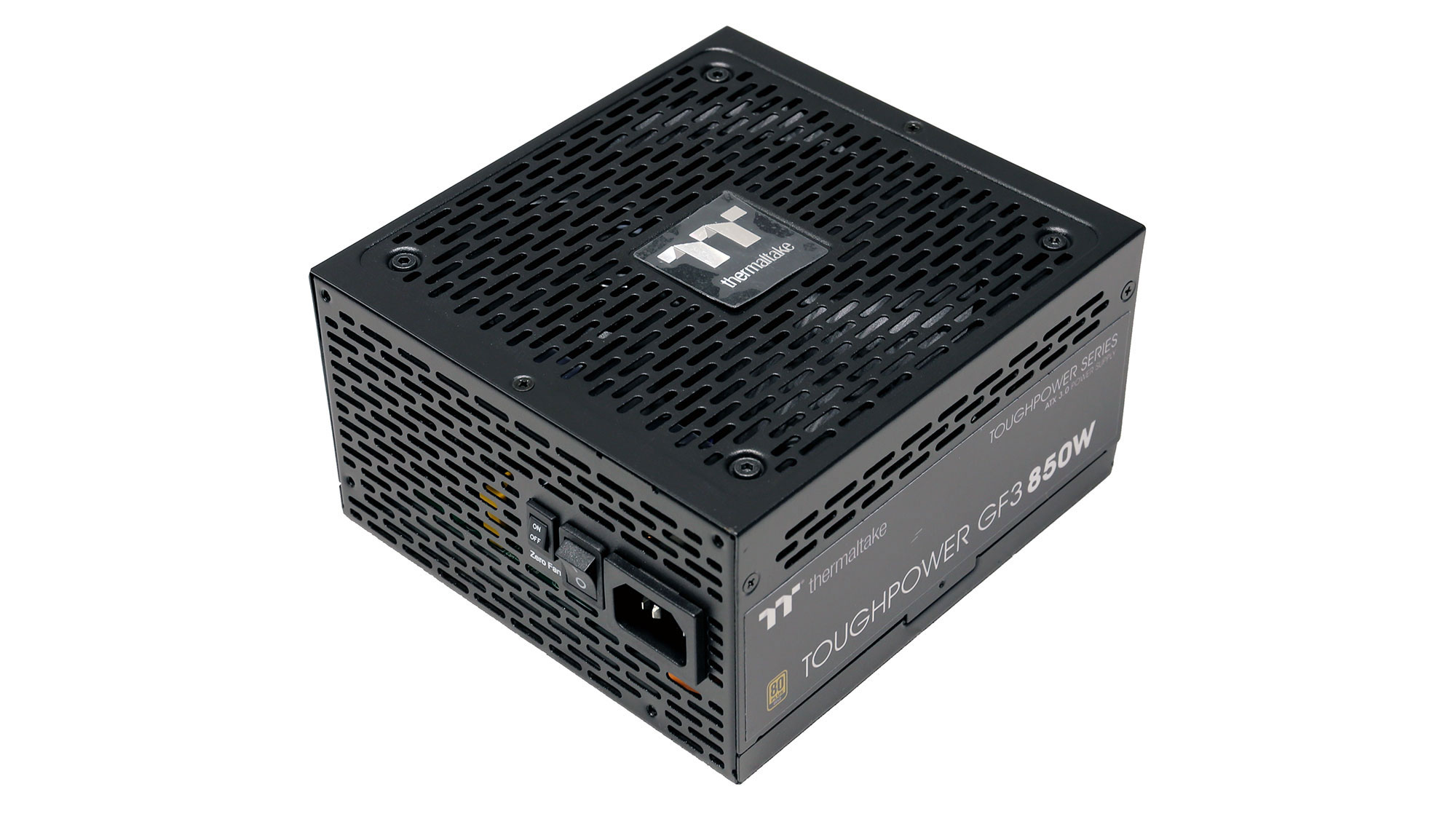
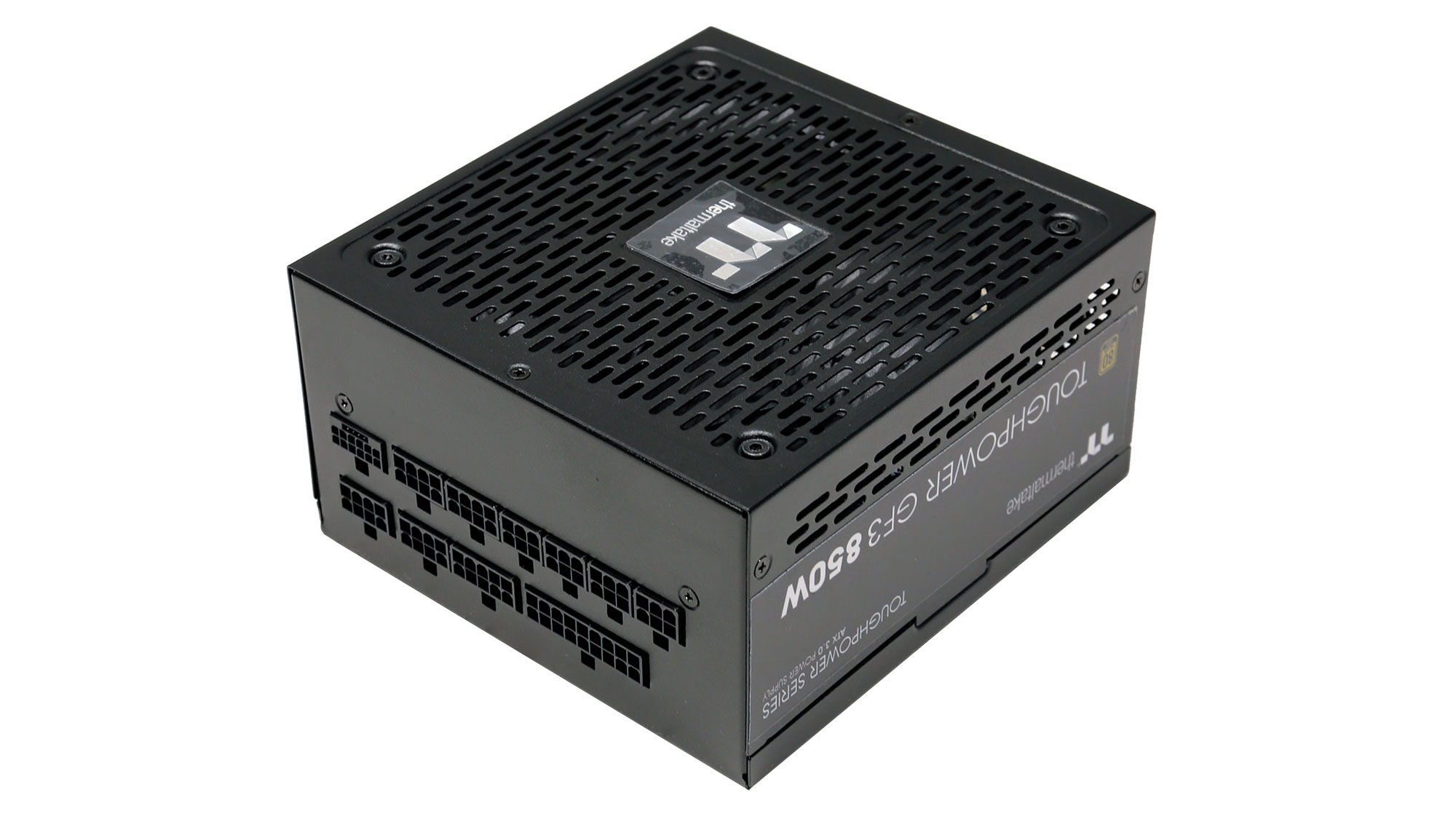
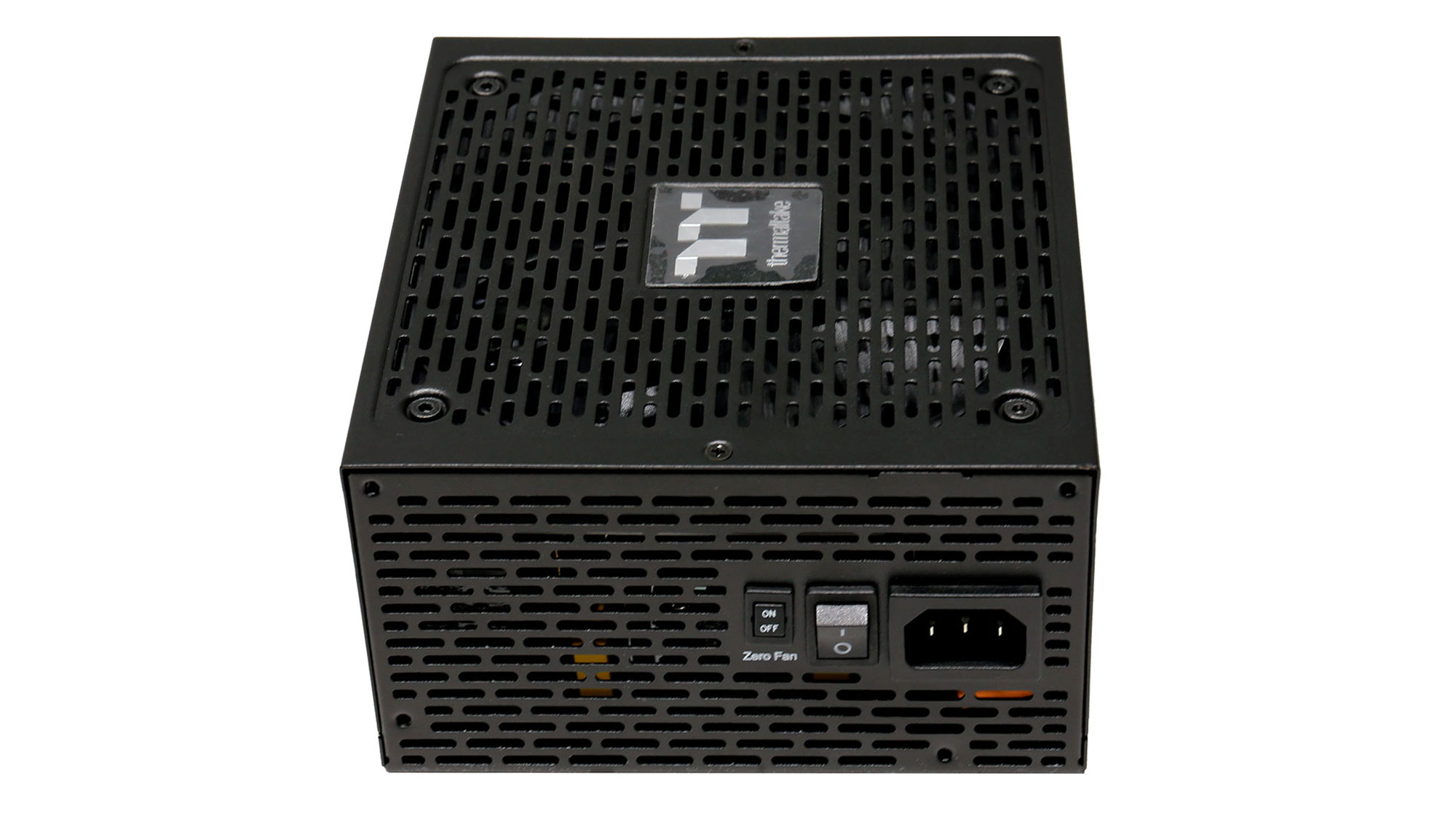
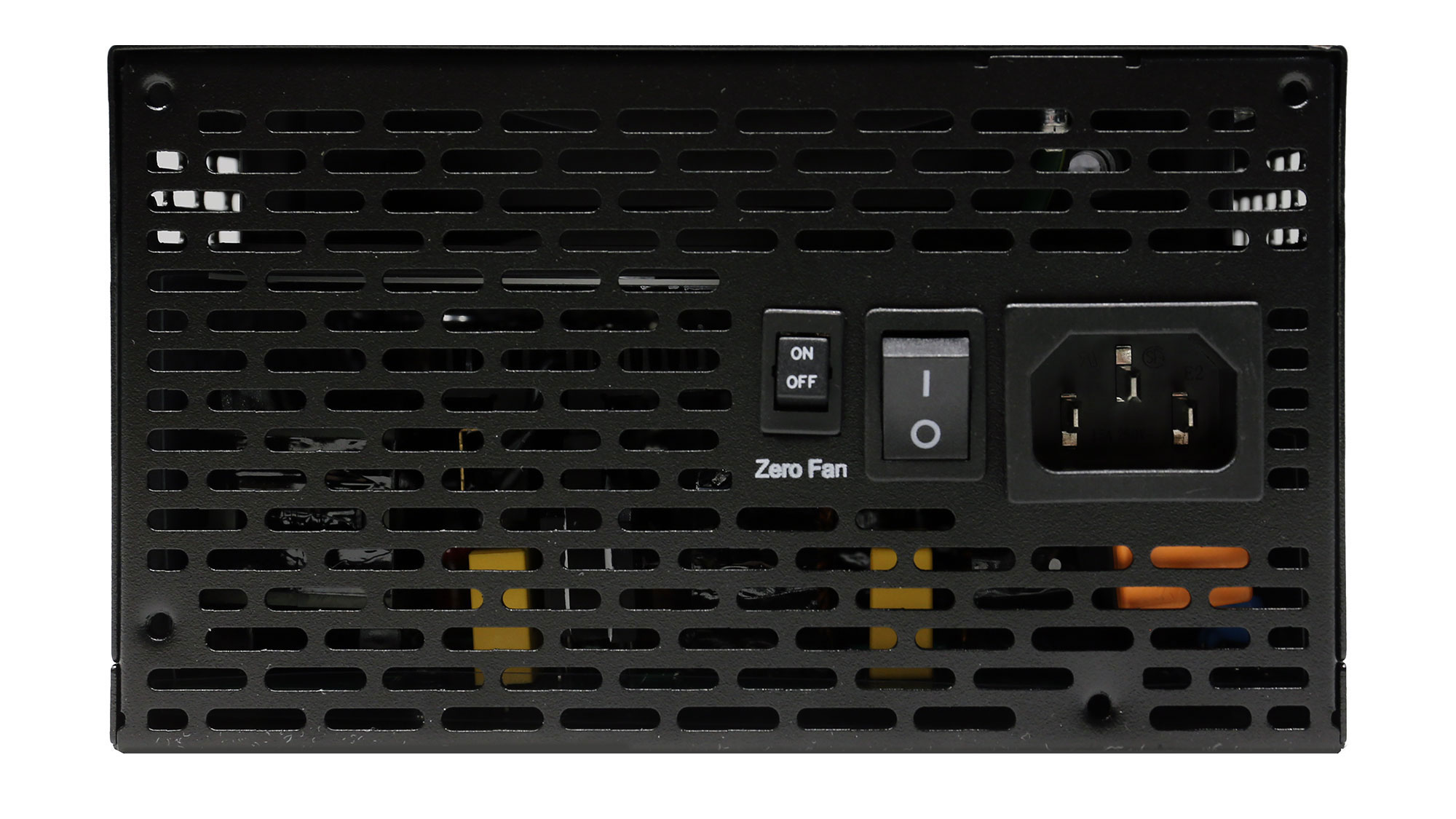
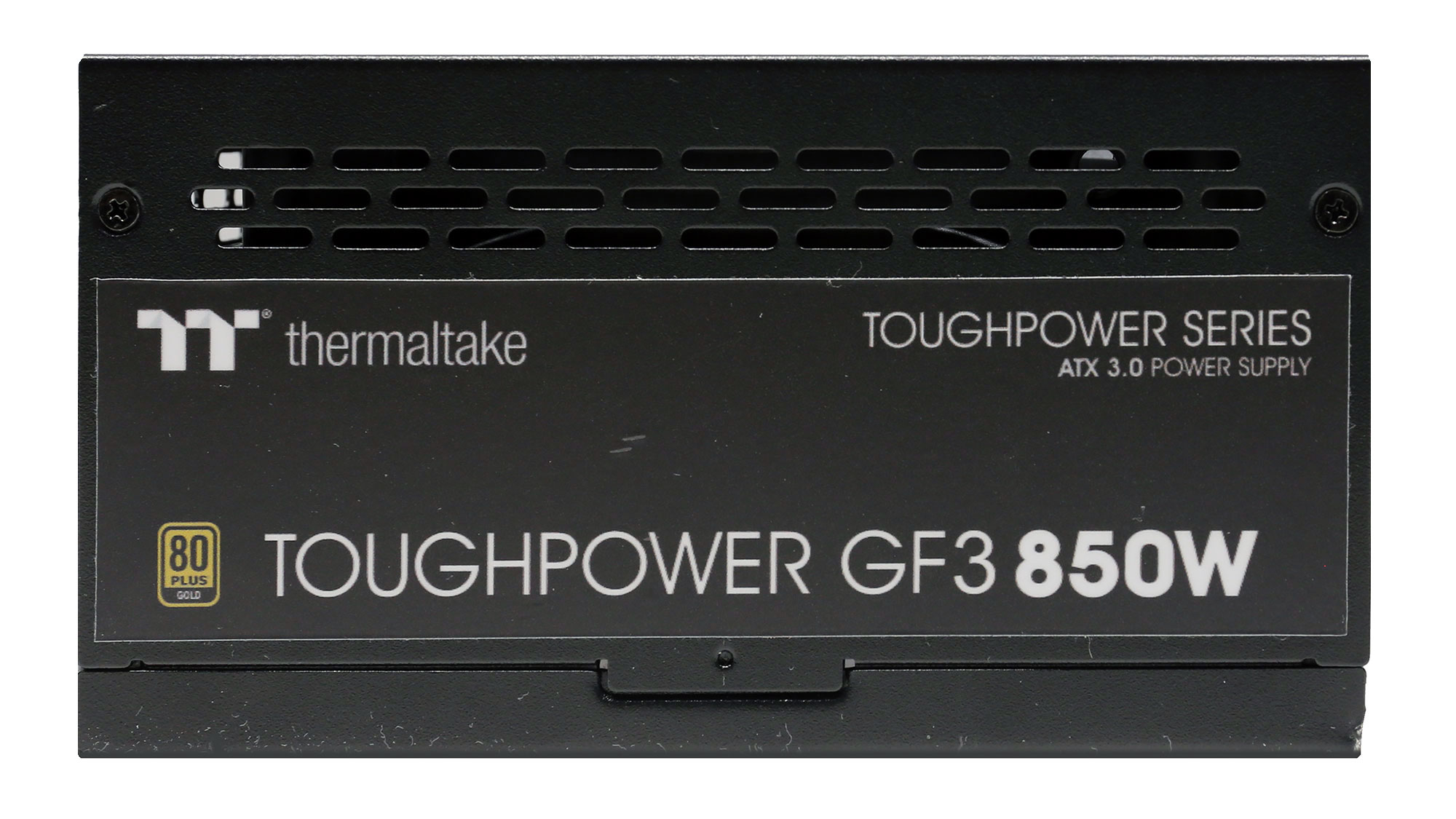
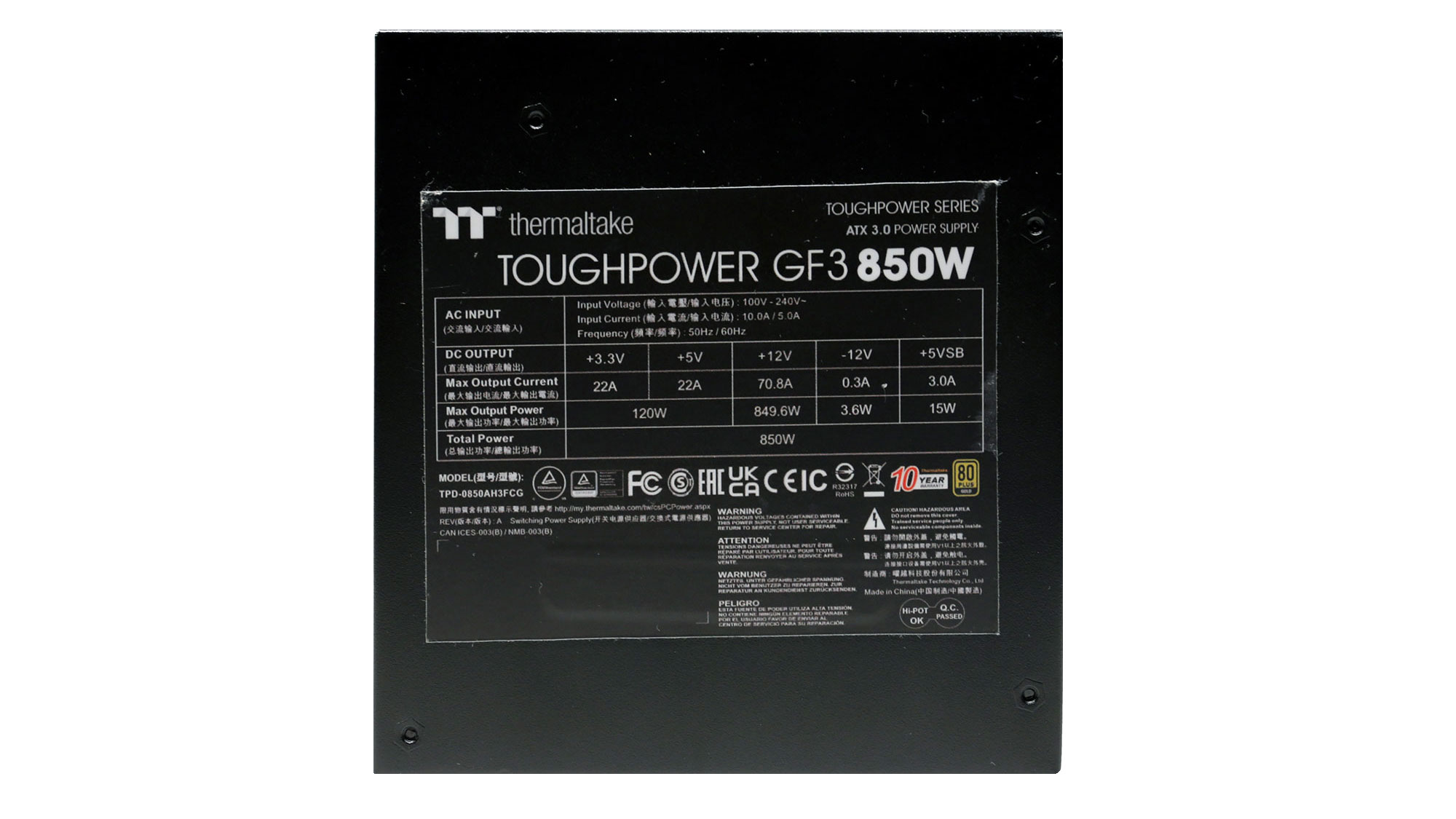
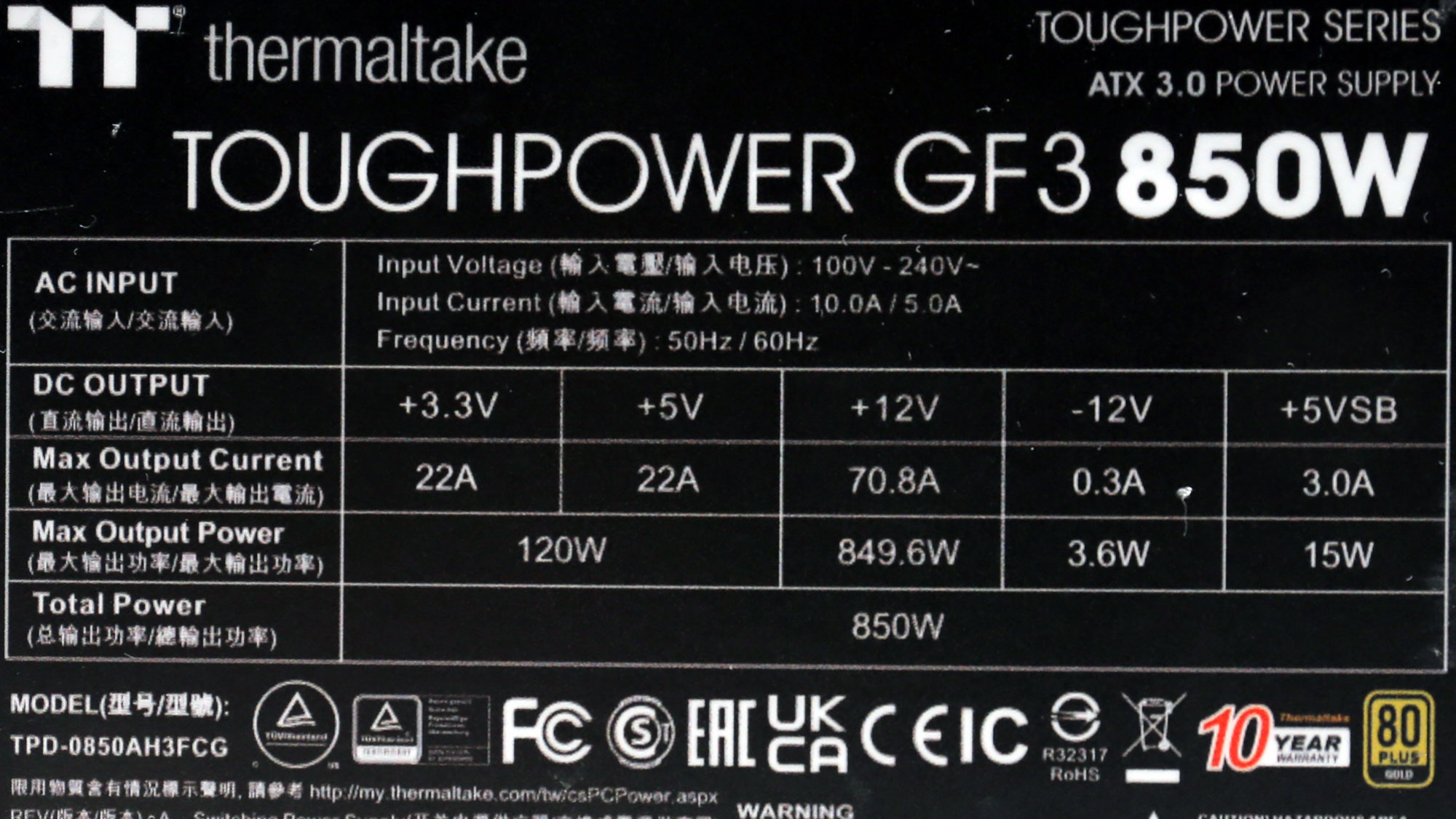
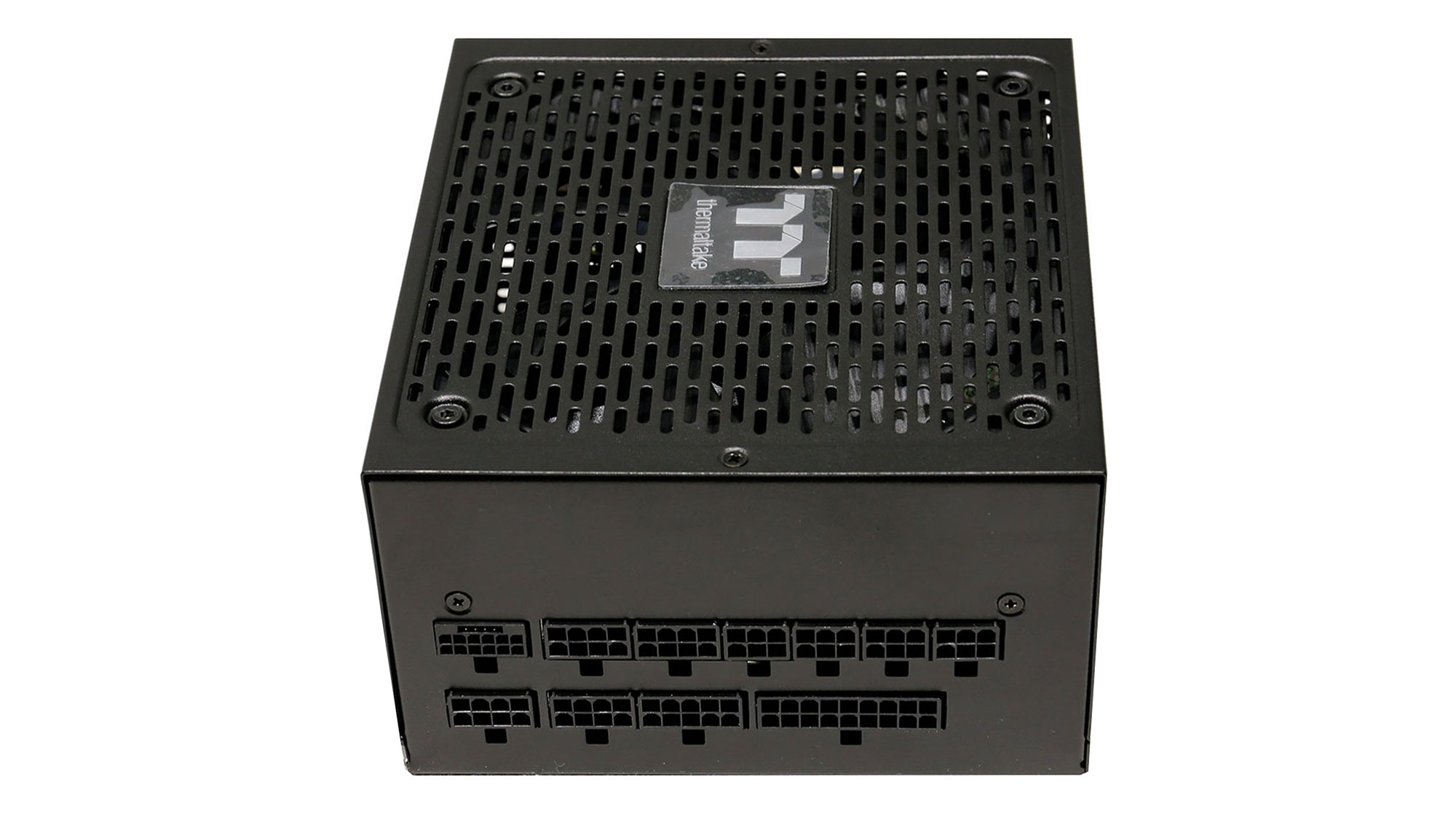
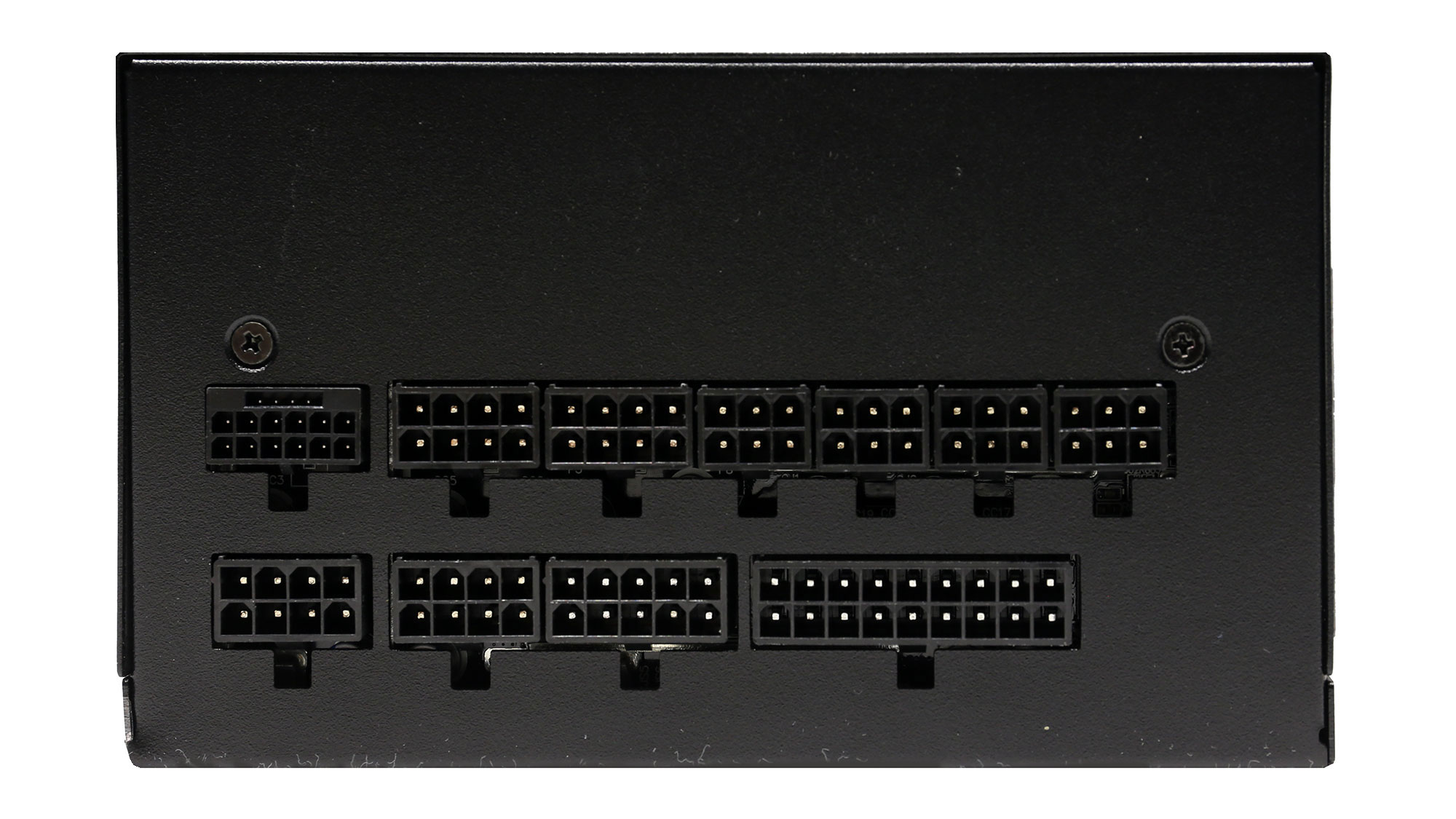
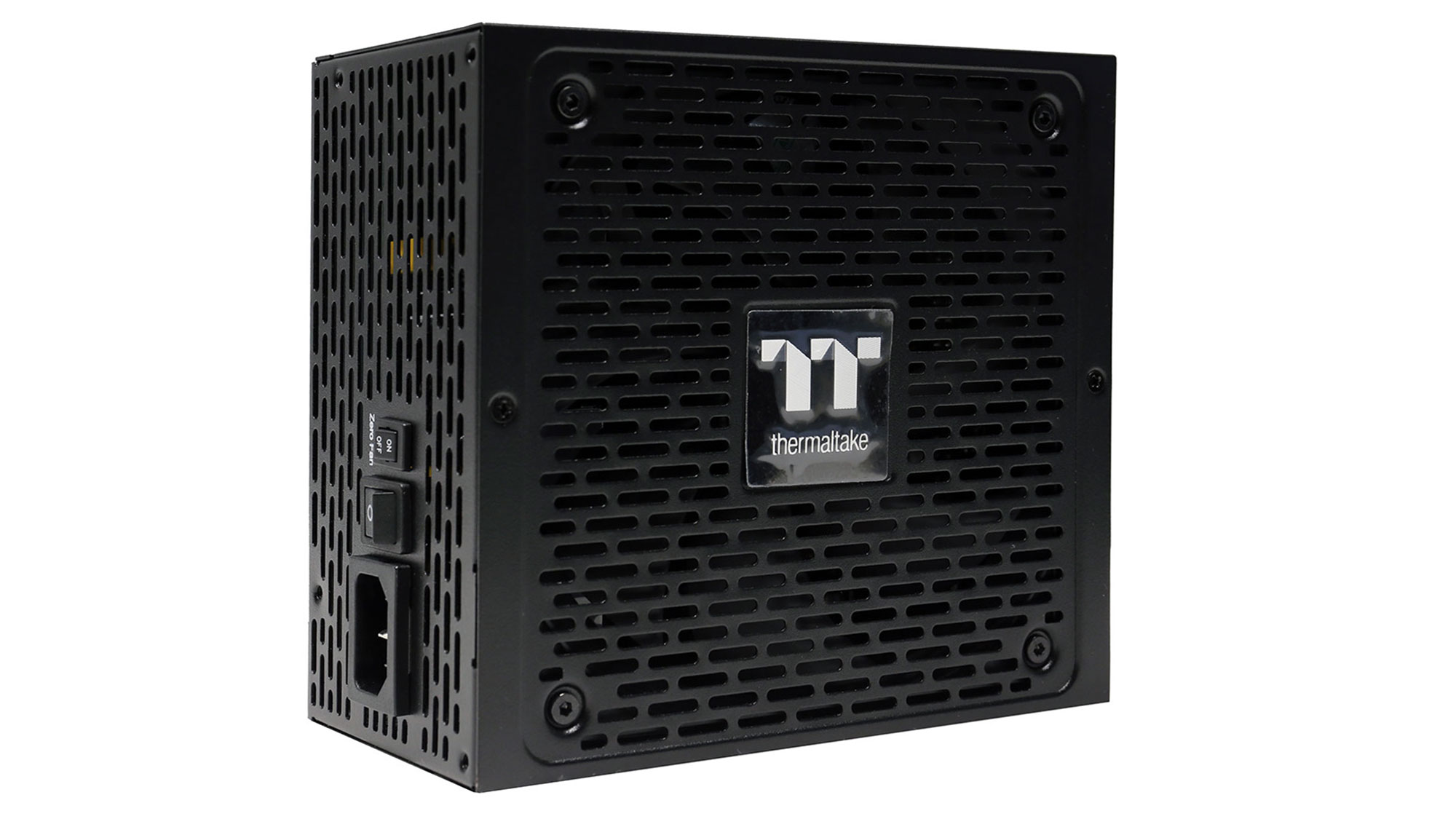
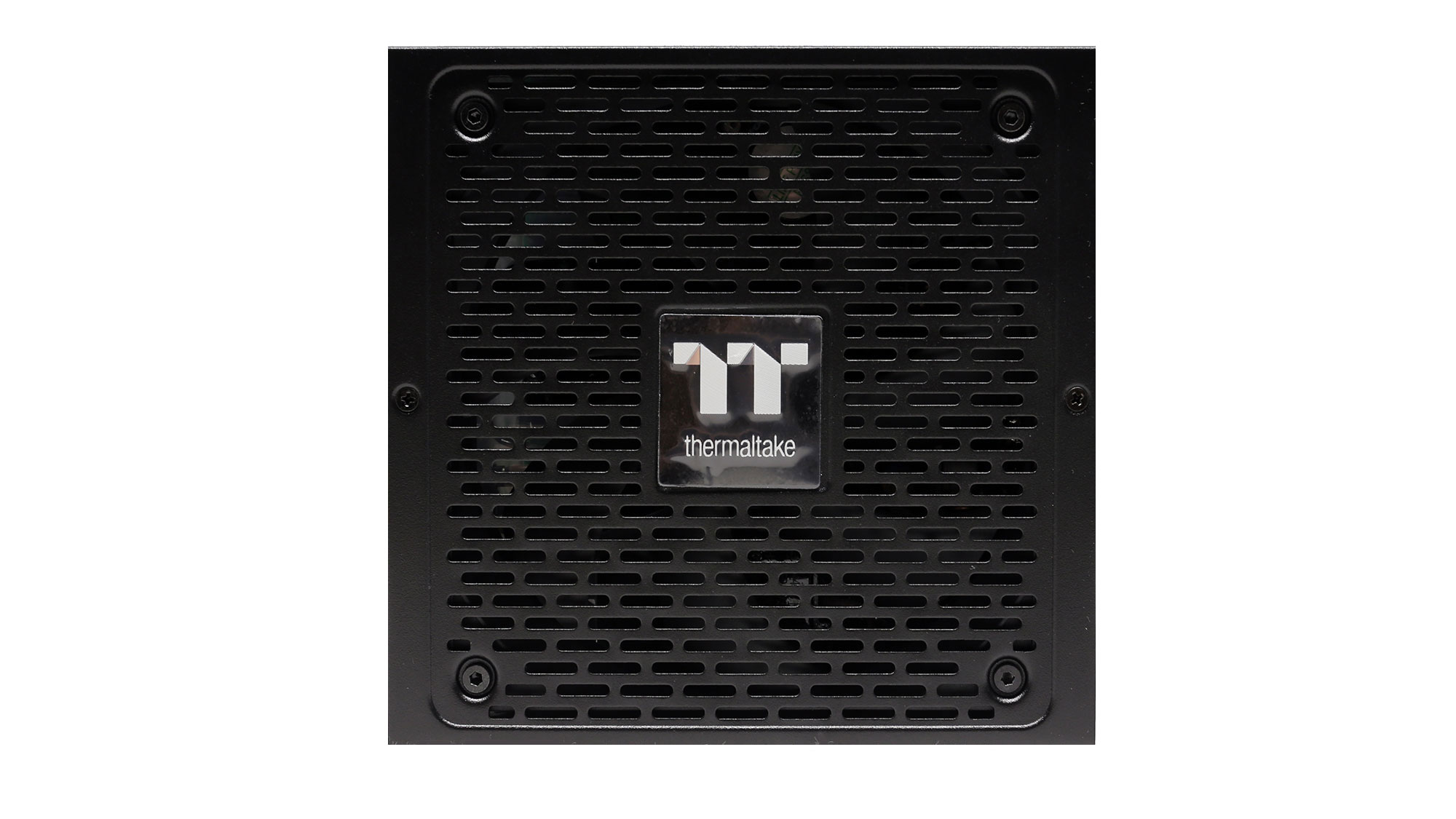
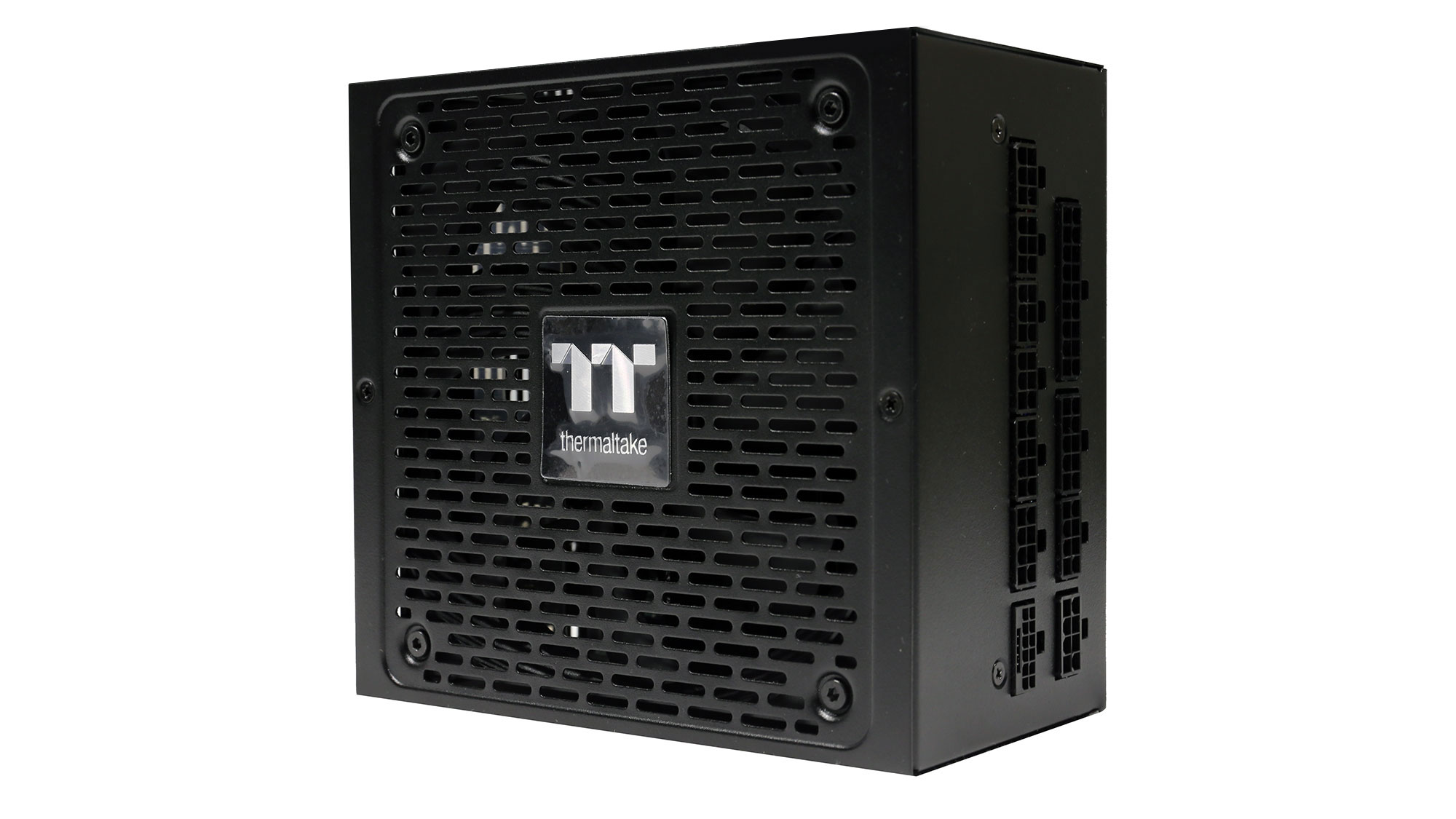
The GF3 850 is rated Gold by 80 Plus and Cybenetics and has a Cybenetics A- noise rating. The fully modular cable design is a must in this price range ($120-130) and it uses a fluid dynamic bearing fan to ensure the absence of problems during the extended, ten-year warranty. Lastly, its dimensions are normal, with a 160 mm depth.
Specifications
| Manufacturer (OEM) | CWT |
| Max. DC Output | 850W |
| Efficiency | 80 PLUS Gold, Cybenetics Gold (87-89%) |
| Noise | Cybenetics A- (25-30 dB[A]) |
| Modular | ✓ (fully) |
| Intel C6/C7 Power State Support | ✓ |
| Operating Temperature (Continuous Full Load) | 0 - 40°C |
| Over Voltage Protection | ✓ |
| Under Voltage Protection | ✓ |
| Over Power Protection | ✓ |
| Over Current (+12V) Protection | ✓ |
| Over Temperature Protection | ✓ |
| Short Circuit Protection | ✓ |
| Surge Protection | ✓ |
| Inrush Current Protection | ✓ |
| Fan Failure Protection | ✗ |
| No Load Operation | ✓ |
| Cooling | 135mm Fluid Dynamic Bearing Fan (HA13525H12SF-Z) |
| Semi-Passive Operation | ✓(selectable) |
| Dimensions (W x H x D) | 150 x 85 x 160mm |
| Weight | 1.66 kg (3.66 lb) |
| Form Factor | ATX12V v3.0, EPS 2.92 |
| Alternative Low Power Mode (ALPM) compatible | ✓ |
| Warranty | 10 Years |
Power Specifications
| Rail | Row 0 - Cell 1 | 3.3V | 5V | 12V | 5VSB | -12V |
| Max. Power | Amps | 22 | 22 | 70.8 | 3 | 0.3 |
| Row 2 - Cell 0 | Watts | Row 2 - Cell 2 | 120 | 849.6 | 15 | 3.6 |
| Total Max. Power (W) | Row 3 - Cell 1 | Row 3 - Cell 2 | 850 | Row 3 - Cell 4 | Row 3 - Cell 5 | Row 3 - Cell 6 |
Cables & Connectors
| Description | Cable Count | Connector Count (Total) | Gauge | In Cable Capacitors |
|---|---|---|---|---|
| ATX connector 20+4 pin (600mm) | 1 | 1 | 16AWG | No |
| 4+4 pin EPS12V (700mm) | 1 | 1 | 16AWG | No |
| 8 pin EPS12V (700mm) | 1 | 1 | 16AWG | No |
| 6+2 pin PCIe (500mm+150mm) | 2 | 4 | 16-18AWG | No |
| 12+4 pin PCIe (610mm) (300W) | 1 | 1 | 16-24AWG | No |
| SATA (500mm+150mm+150mm+150mm) | 3 | 12 | 18AWG | No |
| 4-pin Molex (500mm+150mm+150mm+150mm) | 1 | 4 | 18AWG | No |
| FDD Adapter (100mm) | 1 | 1 | 22AWG | No |
There are enough cables and connectors to cover the unit's maximum power efficiently. The single 12VHPWR connector makes the difference compared to the existing 850W units. This type of connector is new, but soon enough, every PSU with over 450W capacity will have one.
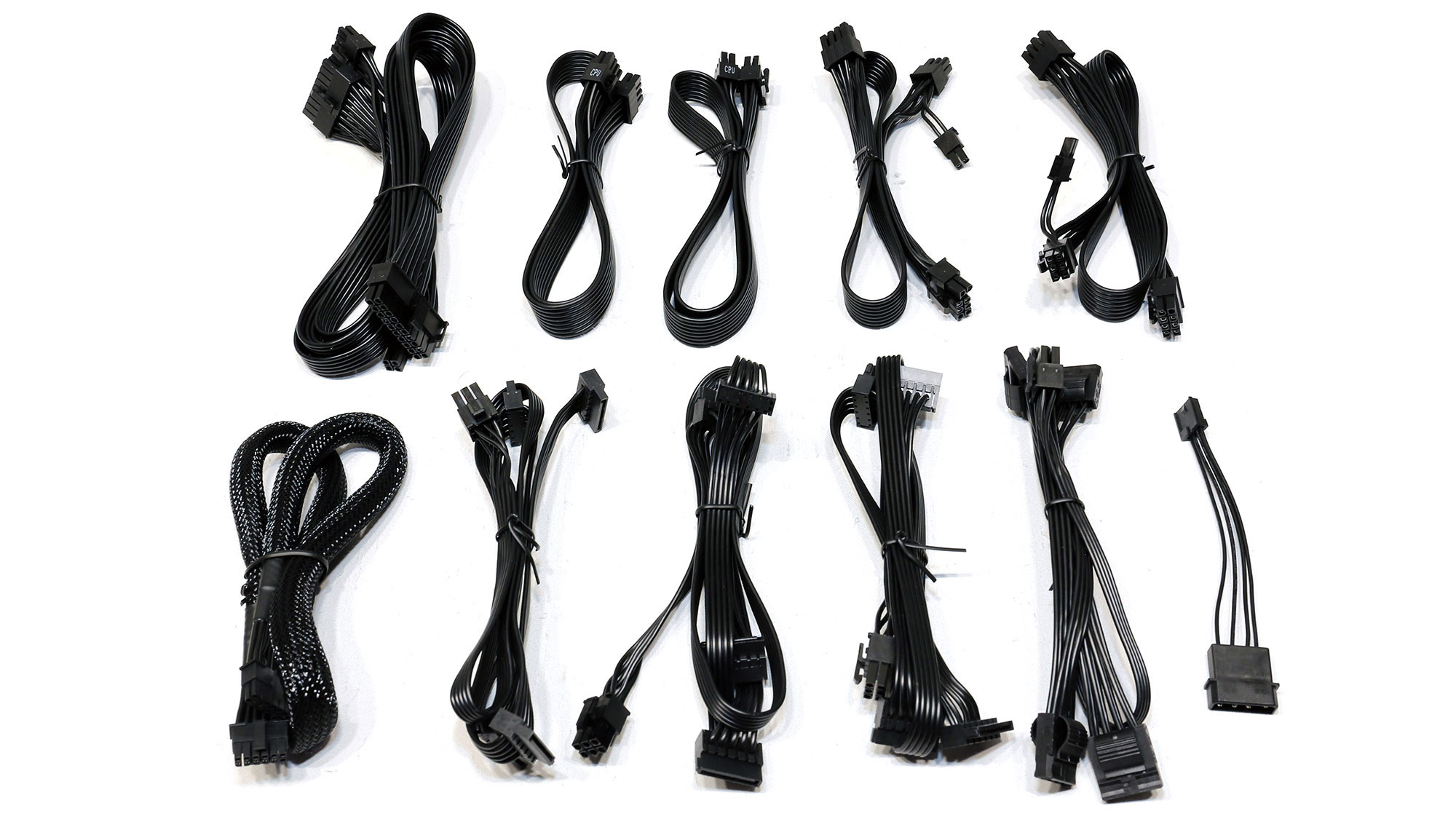
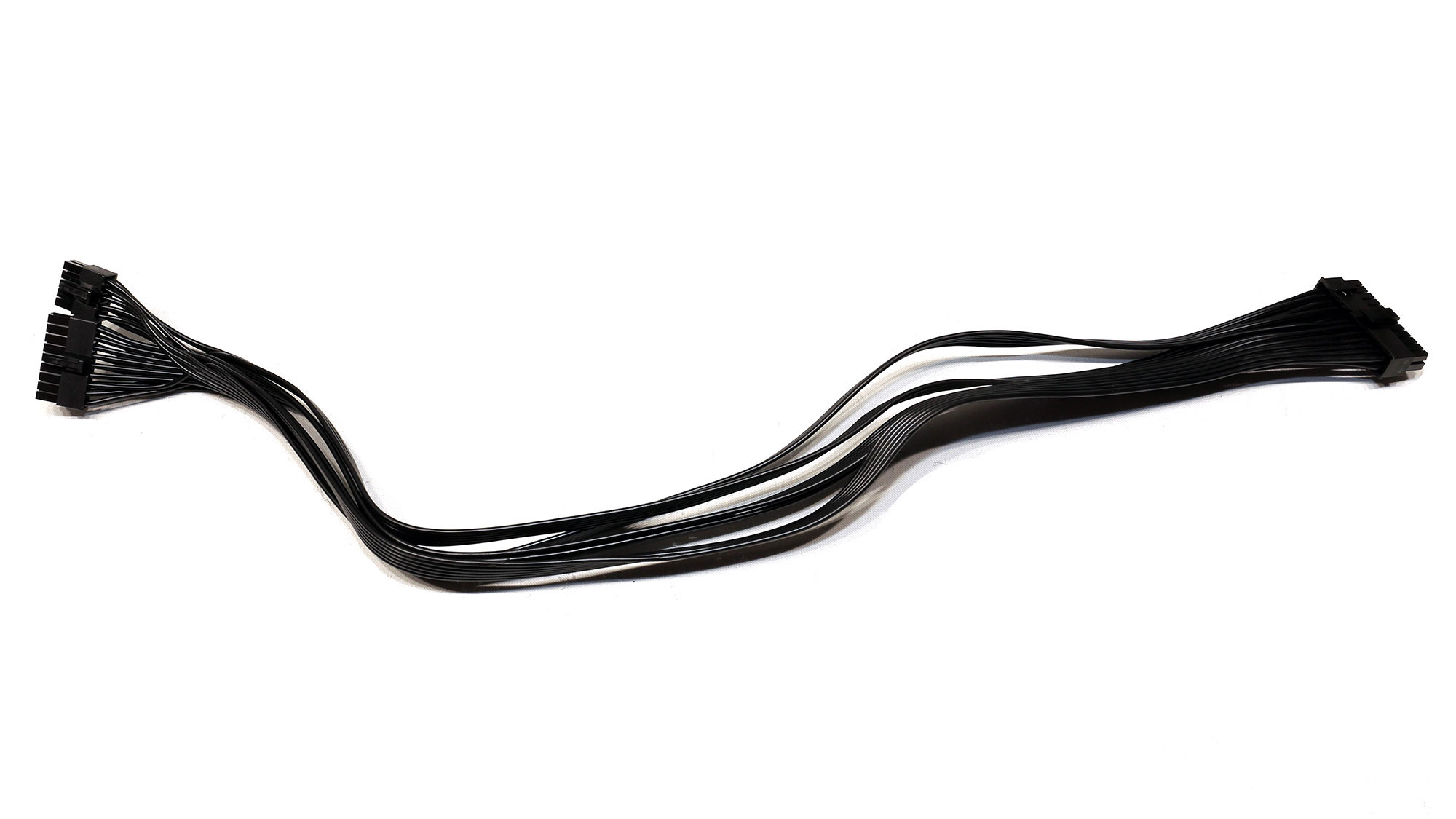
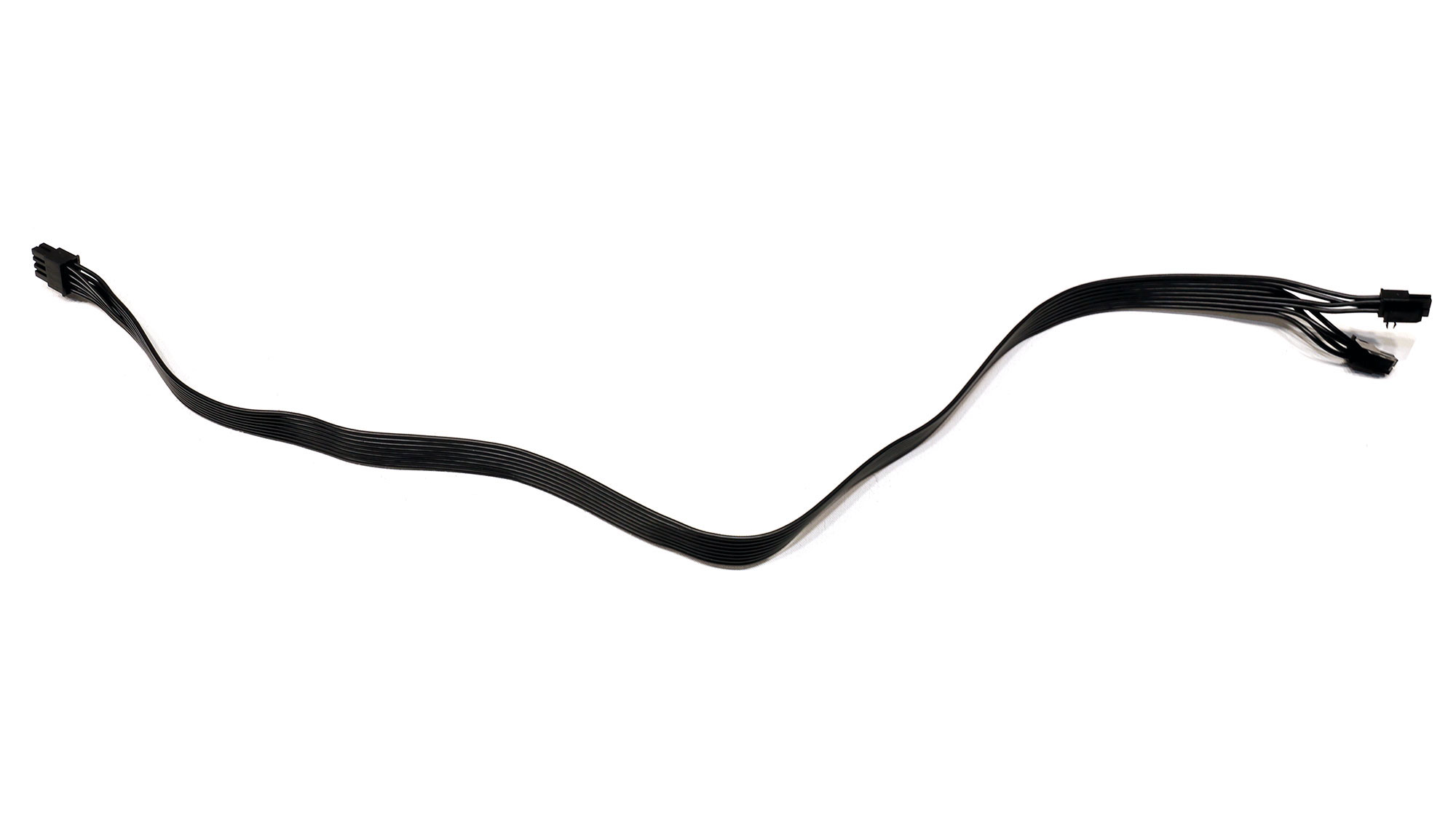
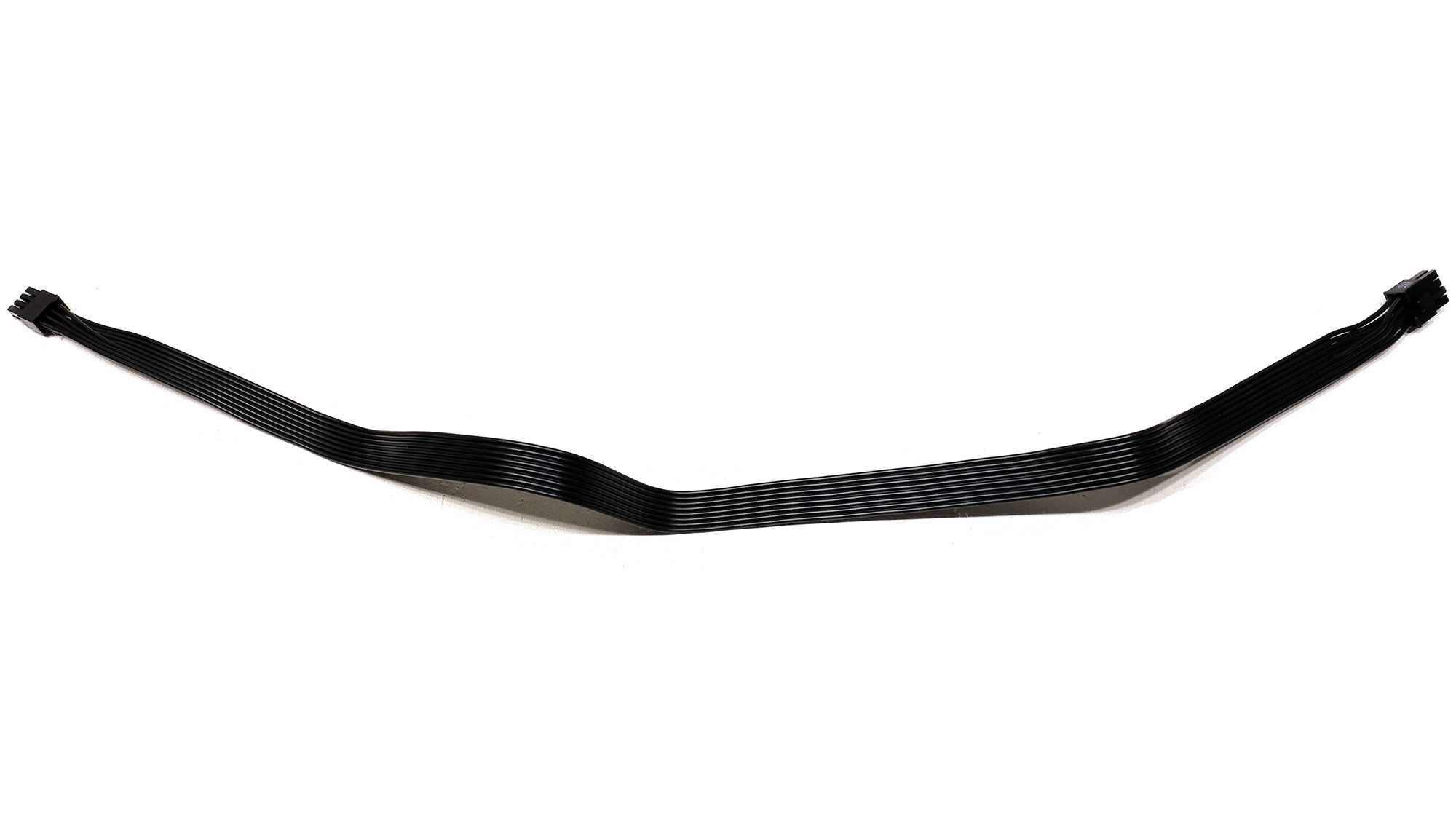
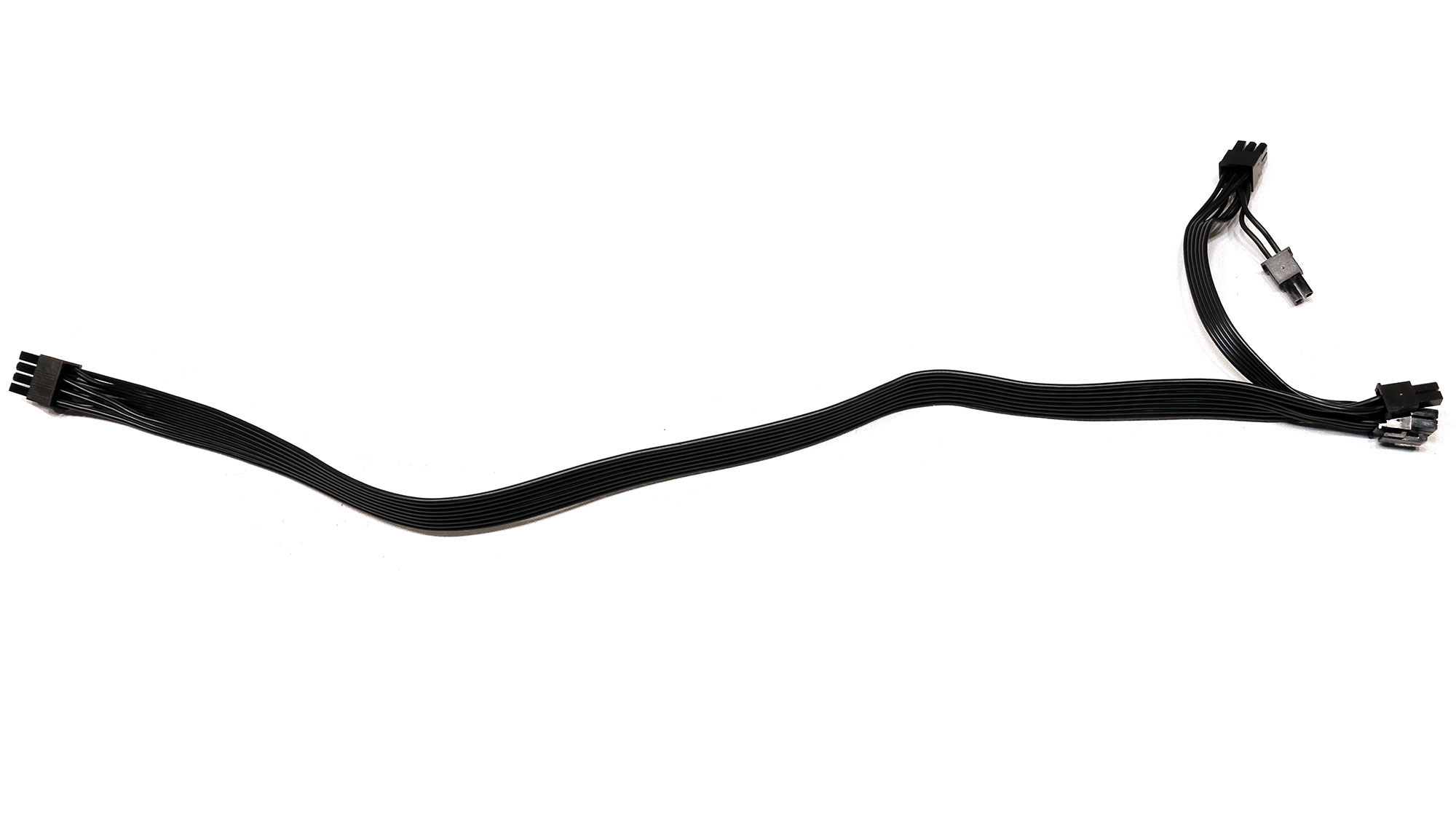
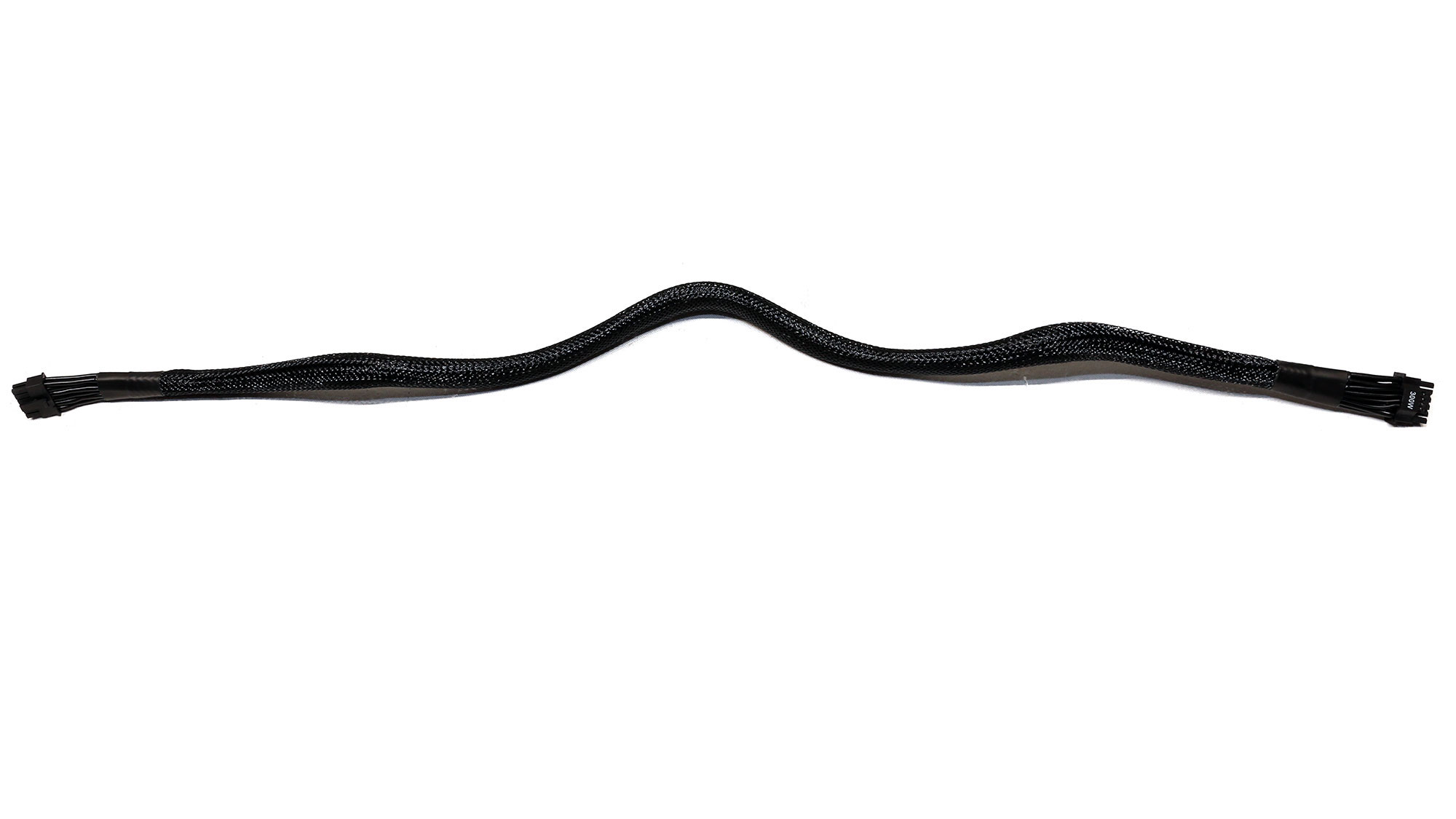
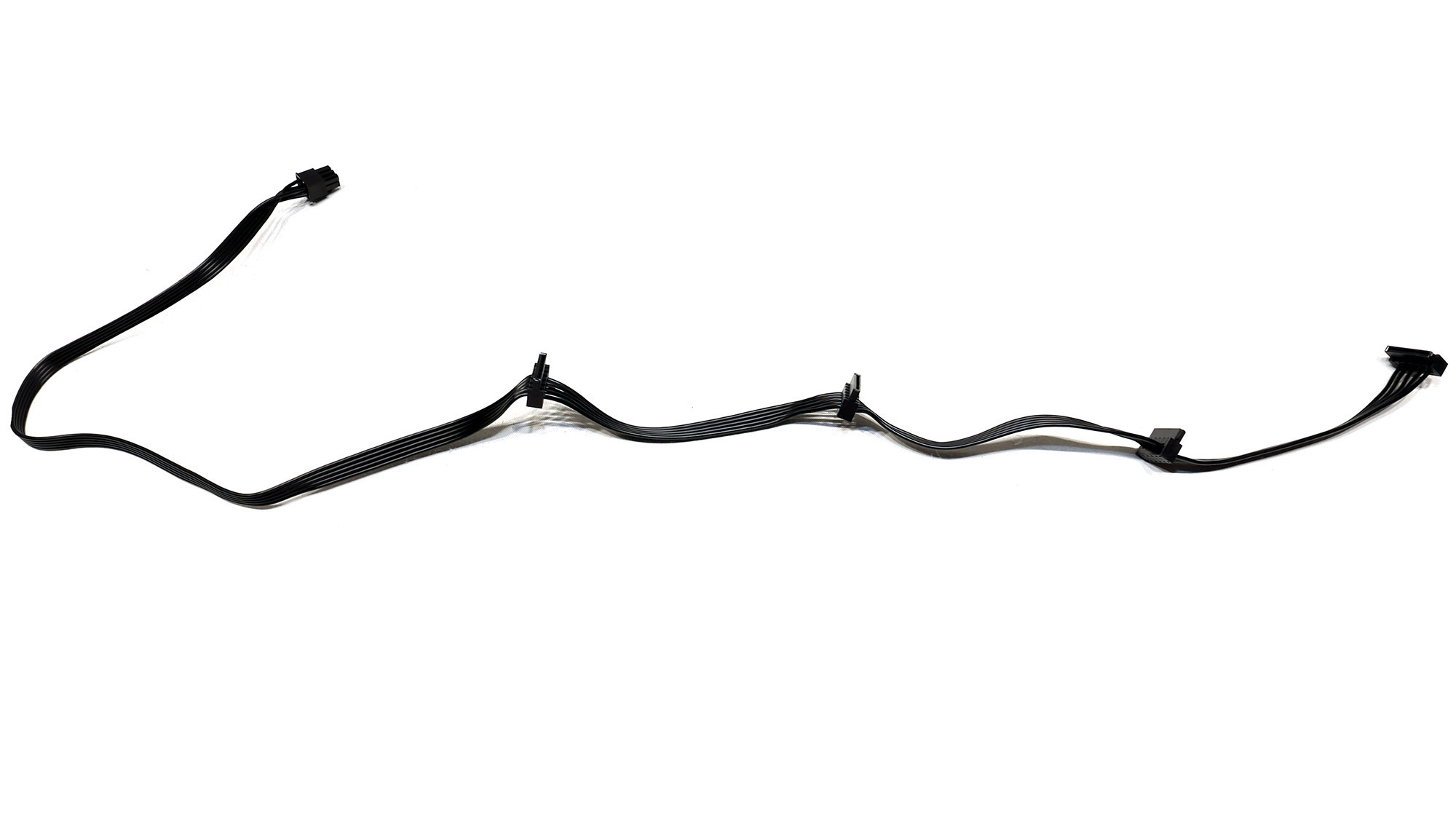
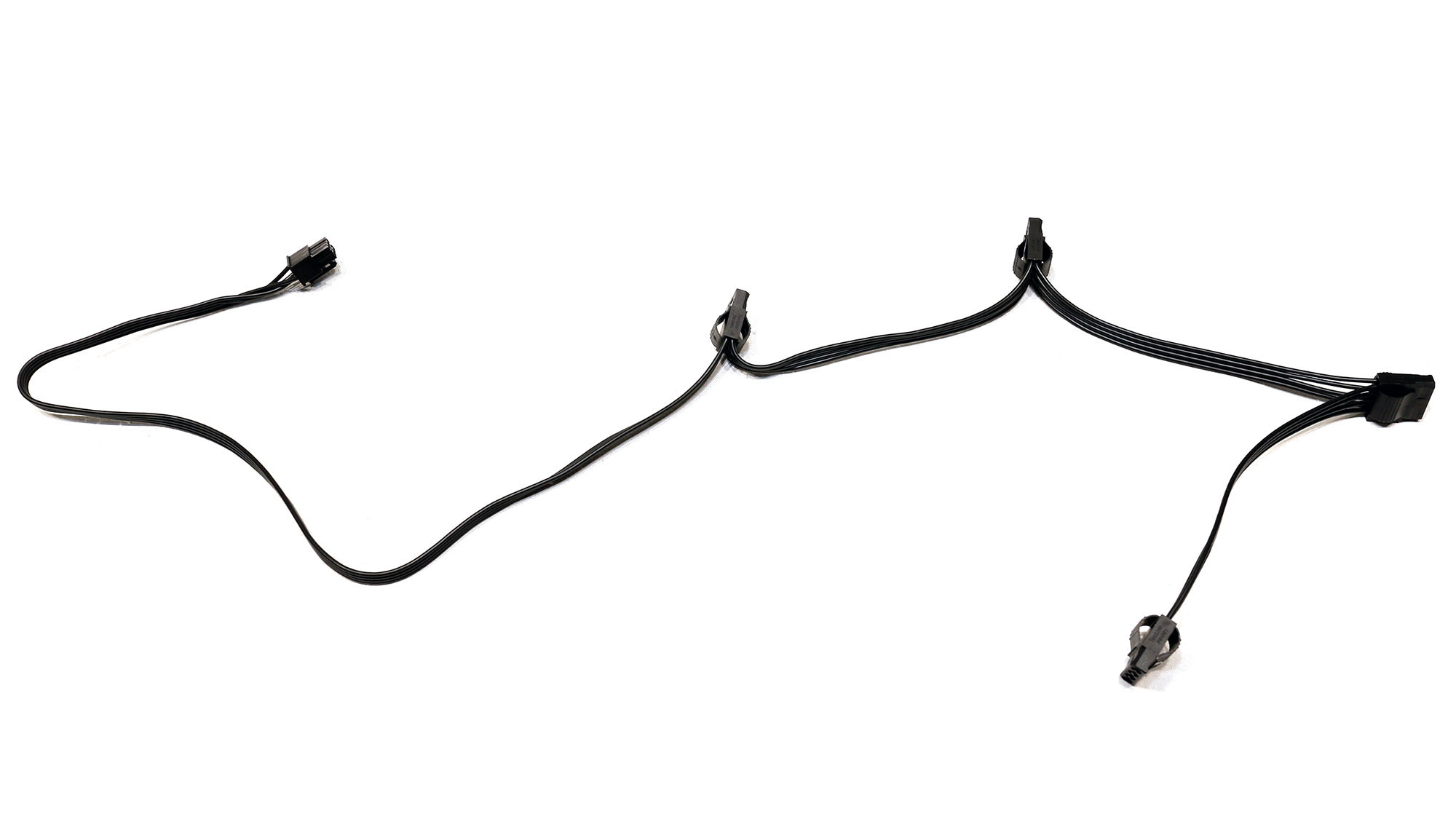
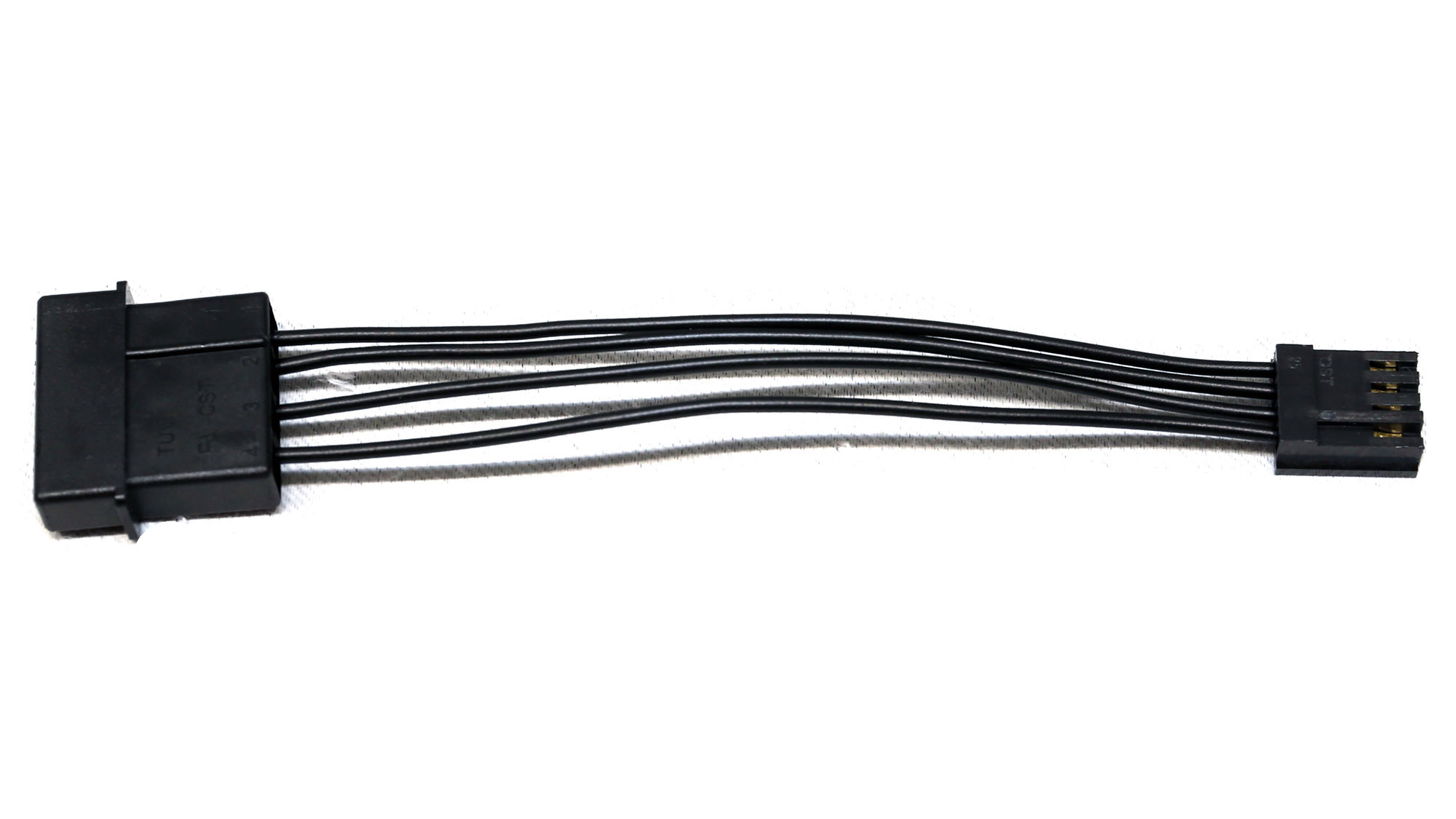
Component Analysis
We strongly encourage you to have a look at our PSUs 101 article, which provides valuable information about PSUs and their operation, allowing you to better understand the components we're about to discuss.
| General Data | - |
| Manufacturer (OEM) | CWT |
| Platform | CSZ |
| PCB Type | Double Sided |
| Primary Side | - |
| Transient Filter | 4x Y caps, 2x X caps, 2x CM chokes, 1x MOV |
| Inrush Protection | 1x NTC Thermistor SCK-075 (7 Ohm) & Relay |
| Bridge Rectifier(s) | 2x Yangjie Electronic GBU1506 (600V, 15A @ 100°C) |
| APFC MOSFETs | 2x STMicroelectronics STF33N60M2 (600V, 16A @ 100°C, Rds(on): 0.125Ohm) |
| APFC Boost Diode | 1x On Semiconductor FFSP0865A (650V, 8A @ 155°C) |
| Bulk Cap(s) | 1x Rubycon (420V, 680uF, 2,000h @ 105°C, MXE) |
| Main Switchers | 2x On Semiconductor |
| APFC Controller | Champion CM6500UNX & CM03X |
| Resonant Controller | Champion CU6901VAC |
| Topology |
Primary side: APFC, Half-Bridge & LLC converter Secondary side: Synchronous Rectification & DC-DC converters |
| Secondary Side | - |
| +12V MOSFETs | 6x International Rectifier IRFH7004PbF (40V, 164A @ 100°C, Rds(on): 1.4mOhm) |
| 5V & 3.3V | DC-DC Converters: 2x UBIQ QN3107M6N (30V, 70A @ 100°C, Rds(on): 2.6mOhm) & 2x UBIQ QM3054M6 (30V, 61A @ 100°C, Rds(on): 4.8mOhm) PWM Controller(s): uPI-Semi uP3861P |
| Filtering Capacitors |
Electrolytic: 3x Nichicon (2-5,000h @ 105°C, HD), 4x Nichicon (4-10,000h @ 105°C, HE), 1x Rubycon (2-10,000h @ 105°C, YXF), 1x Nippon Chemi-Con (4-10,000h @ 105°C, KY), 1x Nippon Chemi-Con (4-10,000h @ 105°C, KYA) |
| Supervisor IC | Weltrend WT7502R |
| Fan Controller | Microchip PIC16F1503 |
| Fan Model | Hong Hua HA13525H12SF-Z (135mm, 12V, 0.5A, Fluid Dynamic Bearing Fan) |
| 5VSB Circuit | - |
| Rectifier | 1x PS1045L SBR (45V, 10A) |
| Standby PWM Controller | On-Bright OB2365T |
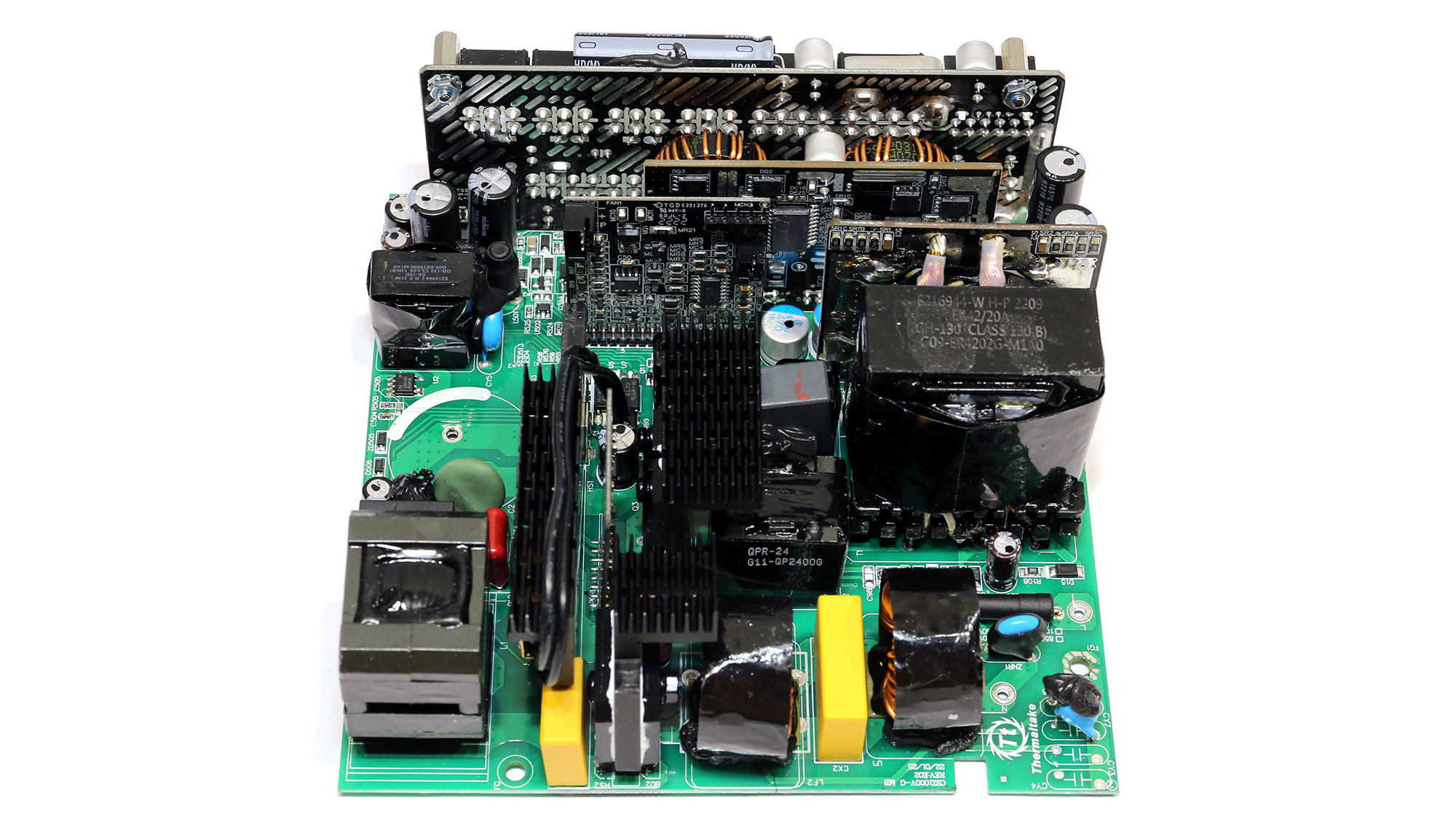
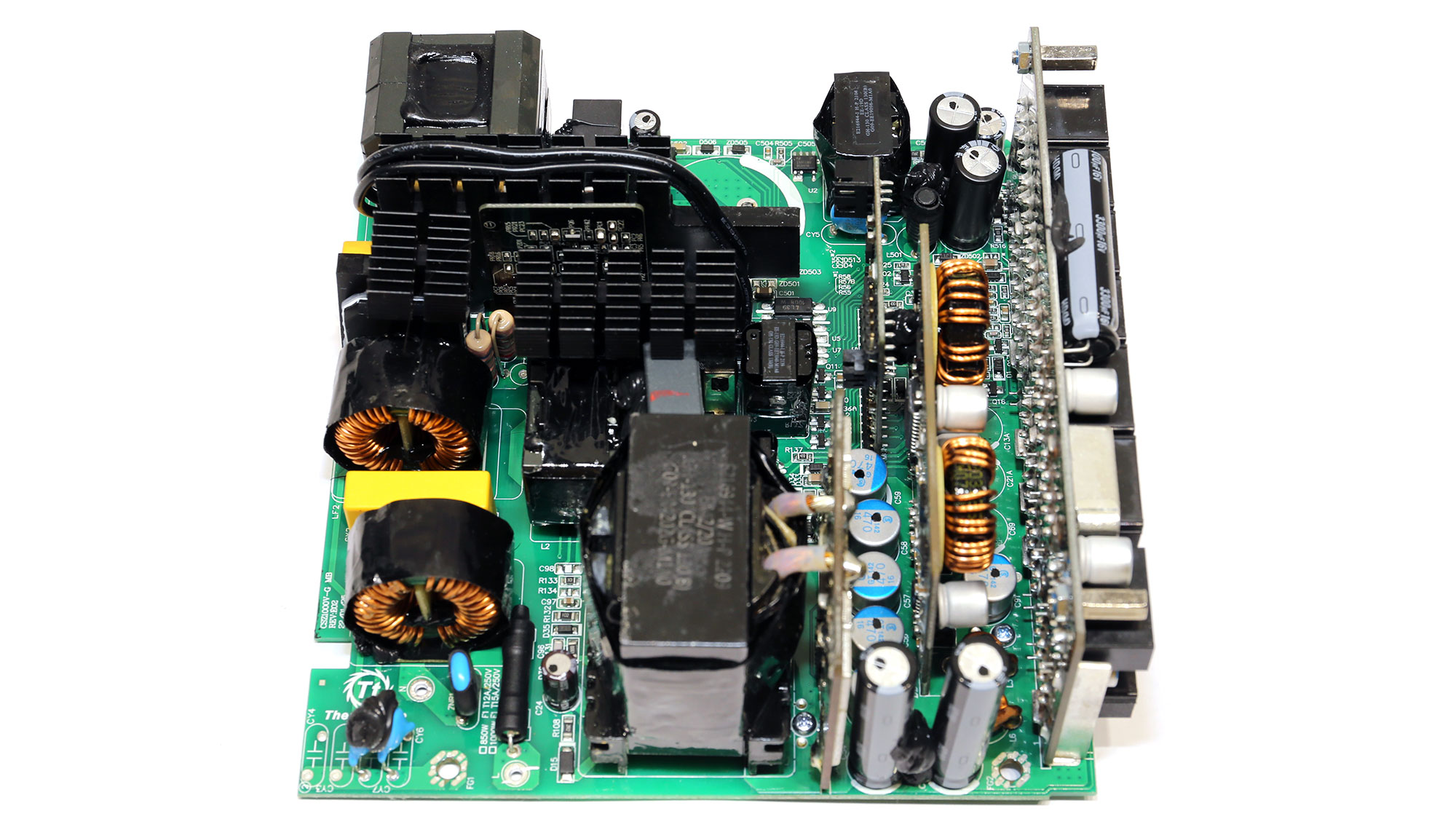
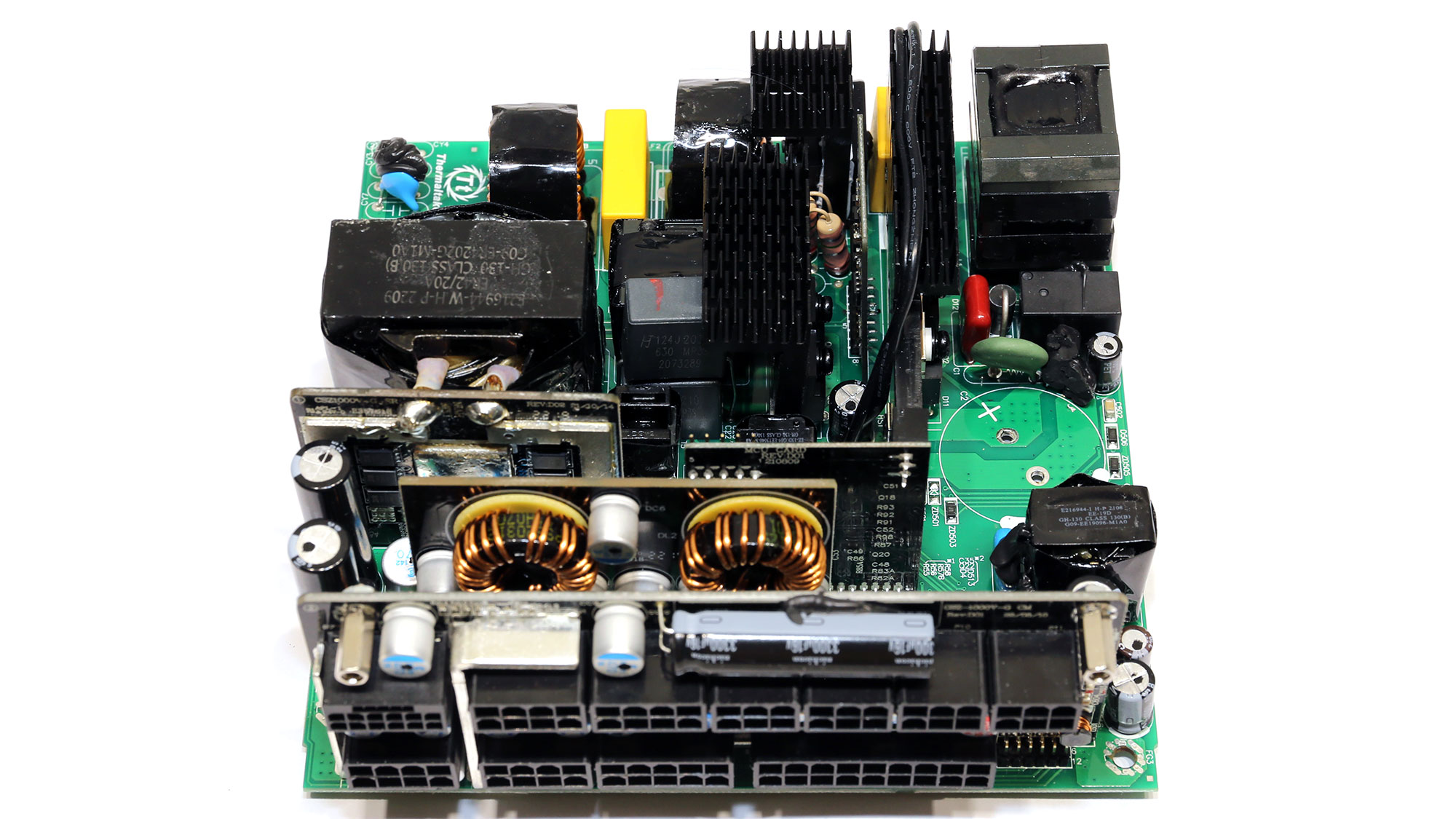
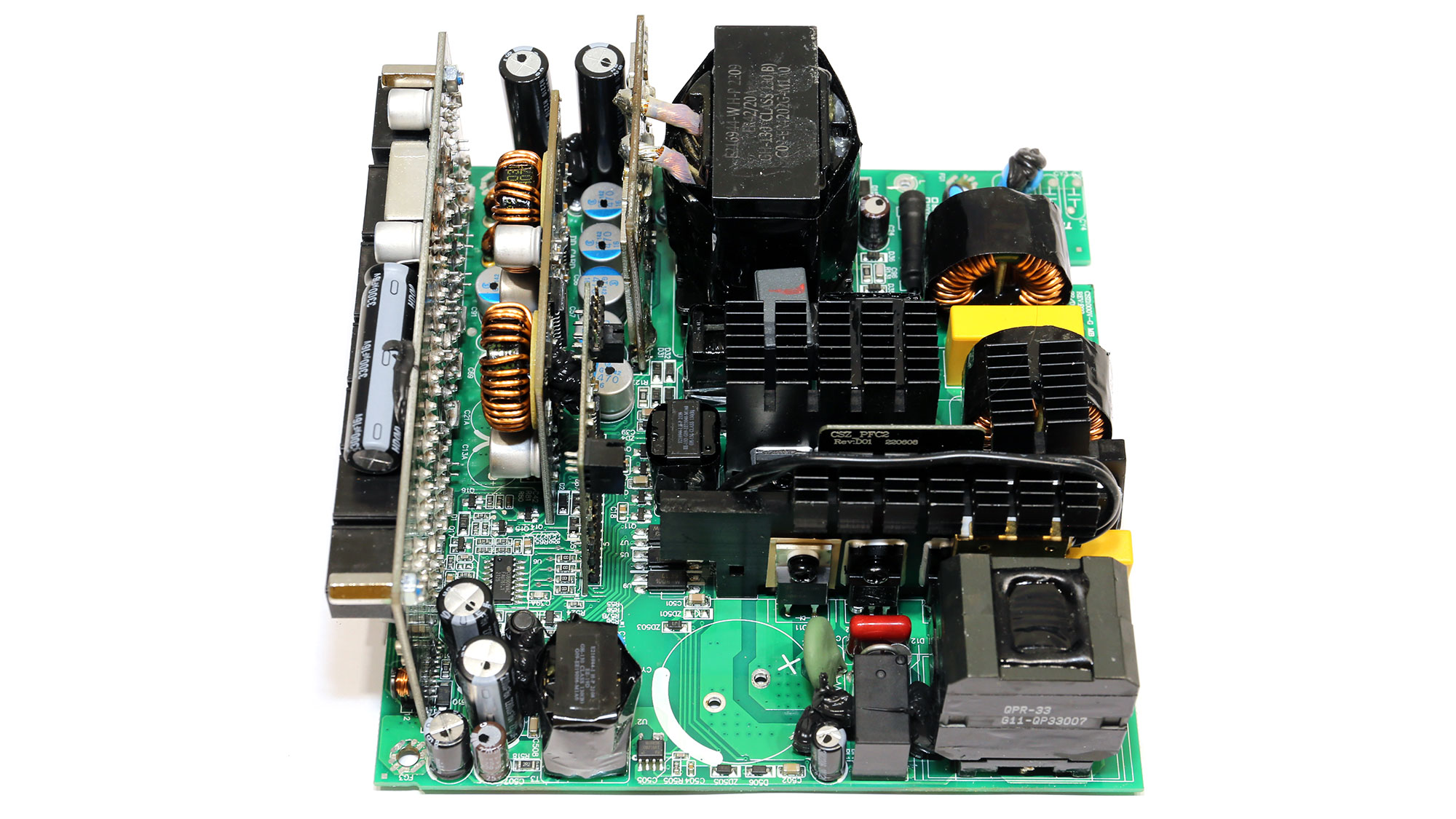
CWT provides the platform, and its code name is CSZ. This is not a brand-new platform, but rather a modified design to offer the desired ATX 3.0 compatibility and a 12VHPWR connector. The parts that CWT used, after TT's instructions, are of high quality. The PCB is large enough to allow for good airflow, but typically CWT used small heat sinks, with the secondary side without any. With the proper fan speed profile, this won't affect the platform's reliability.
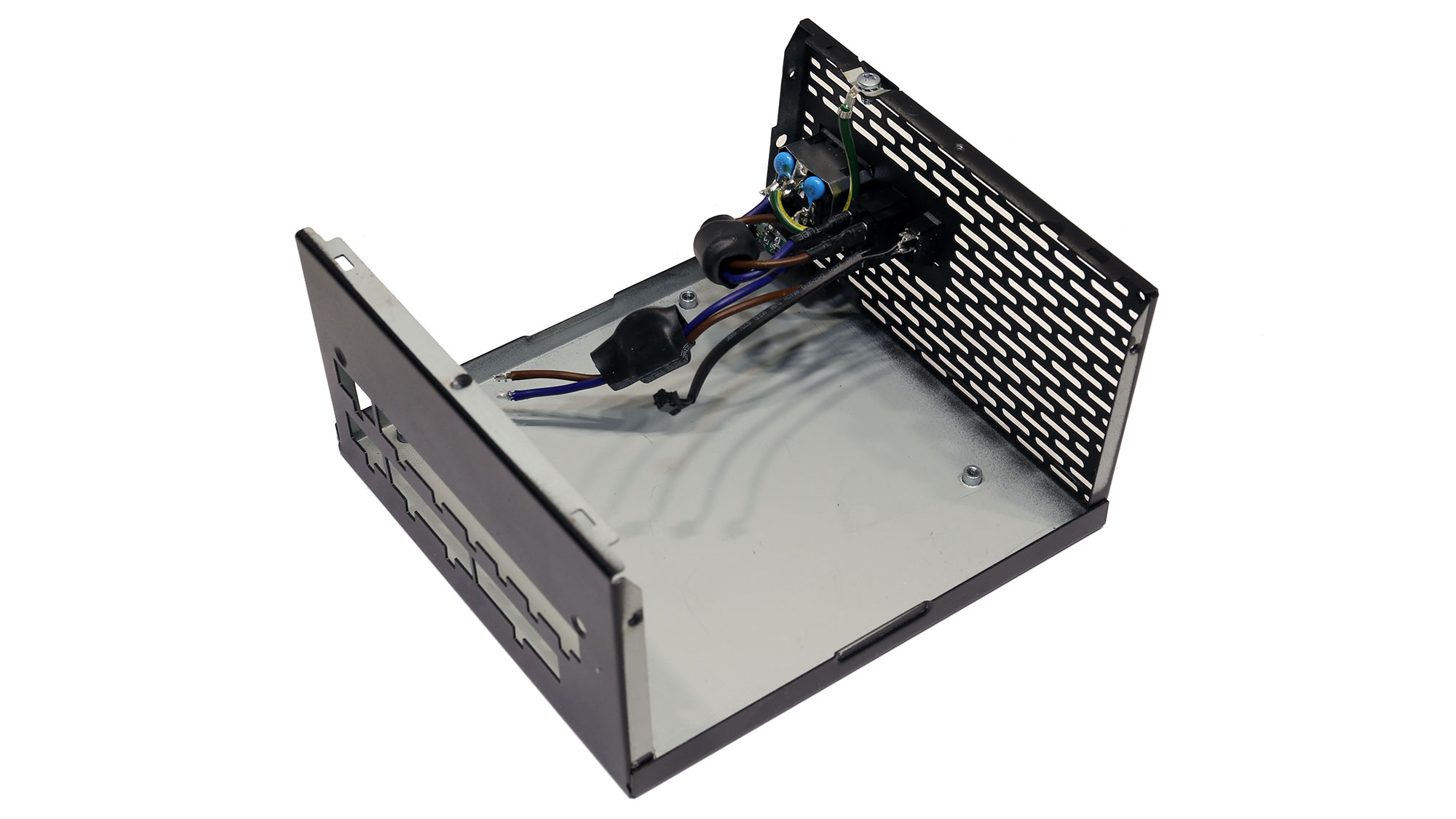
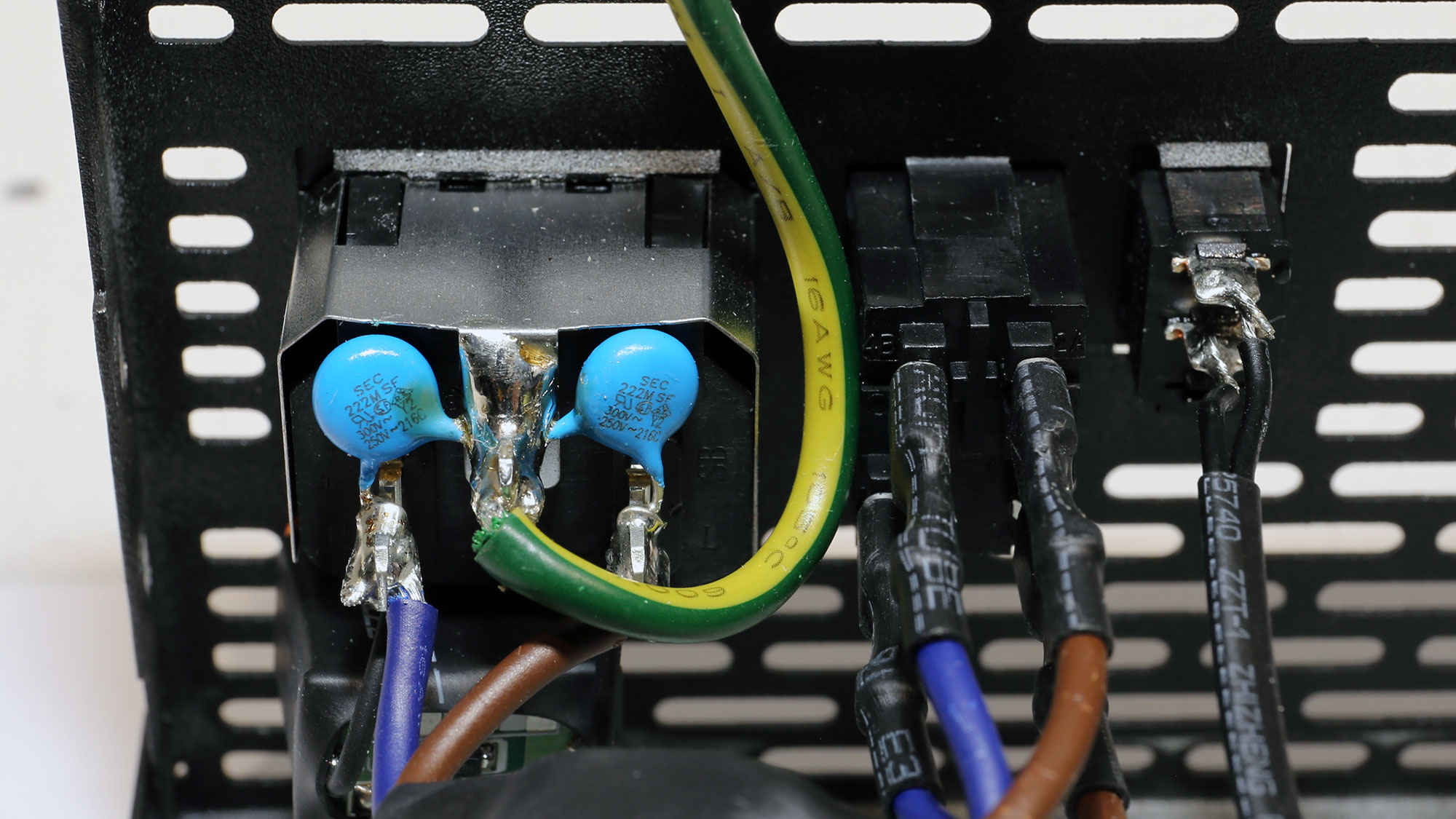
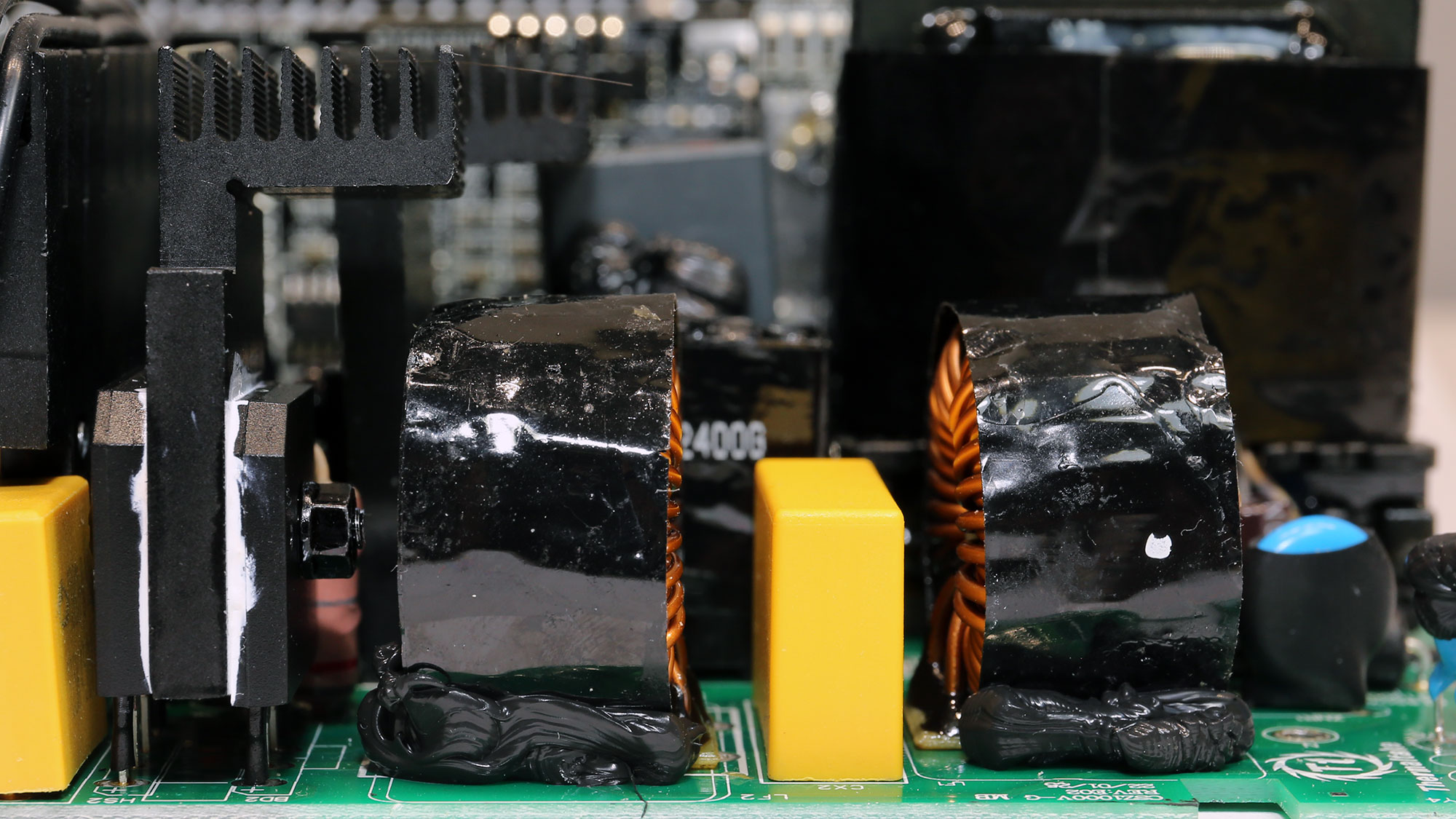
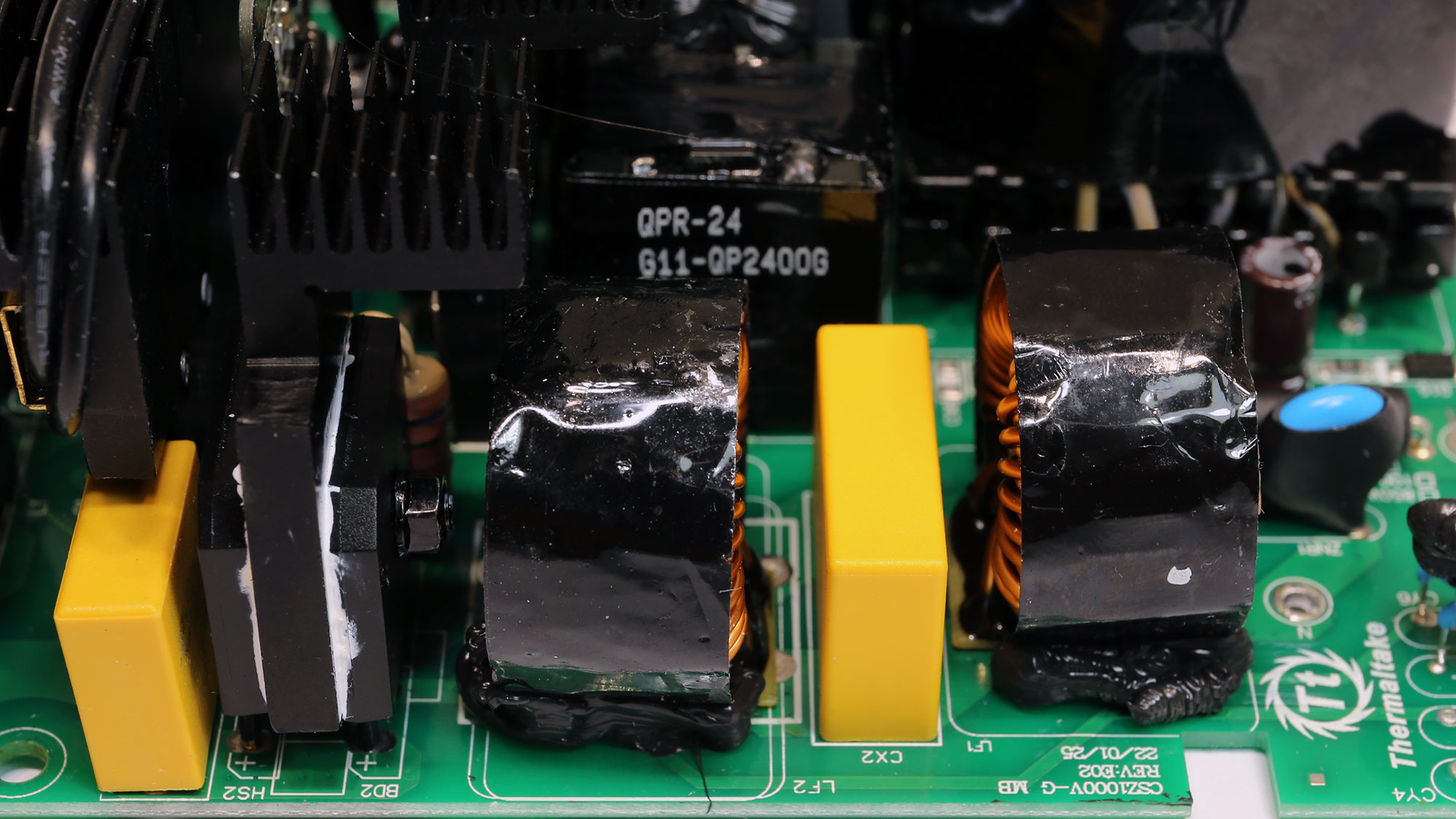
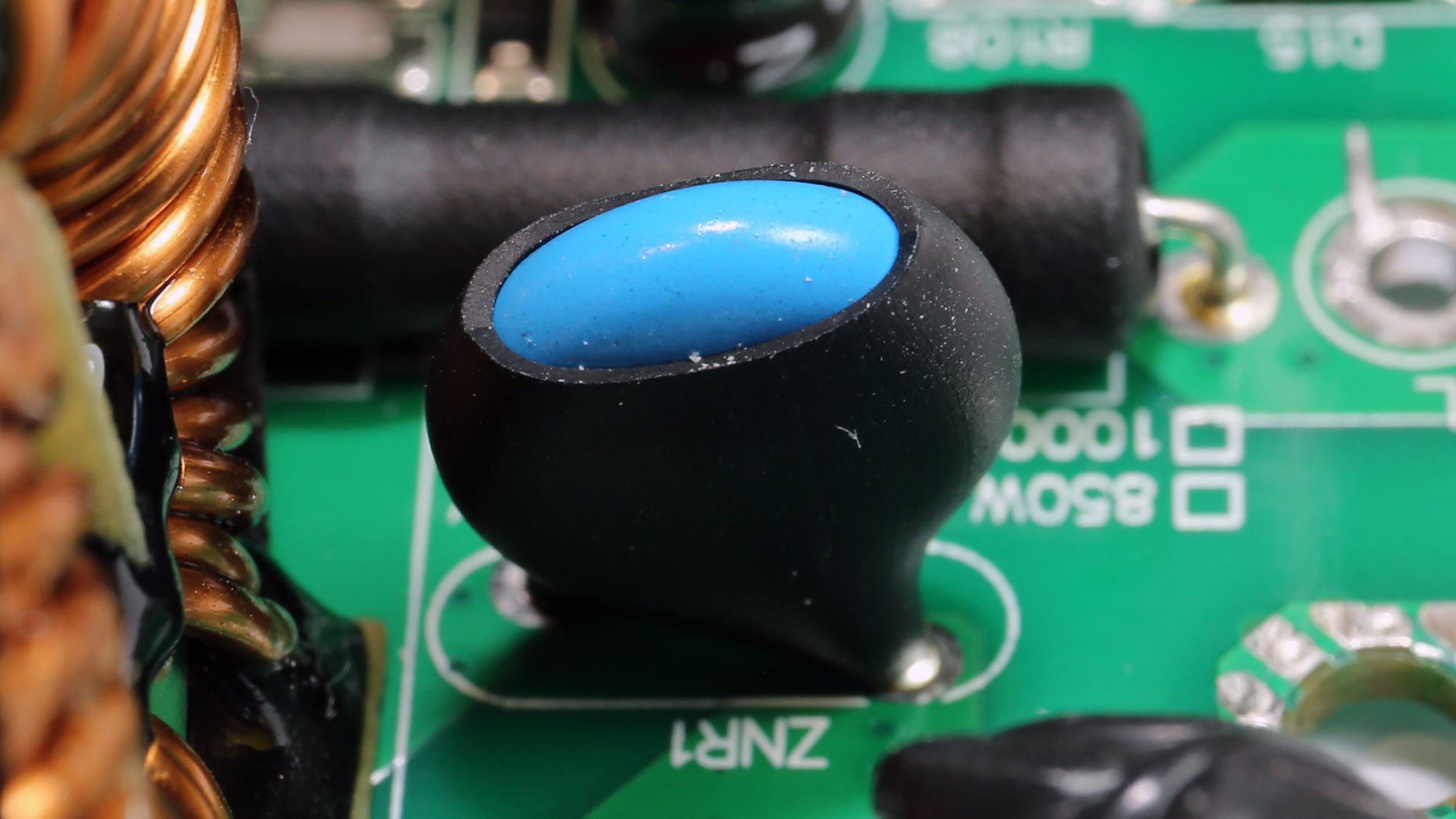
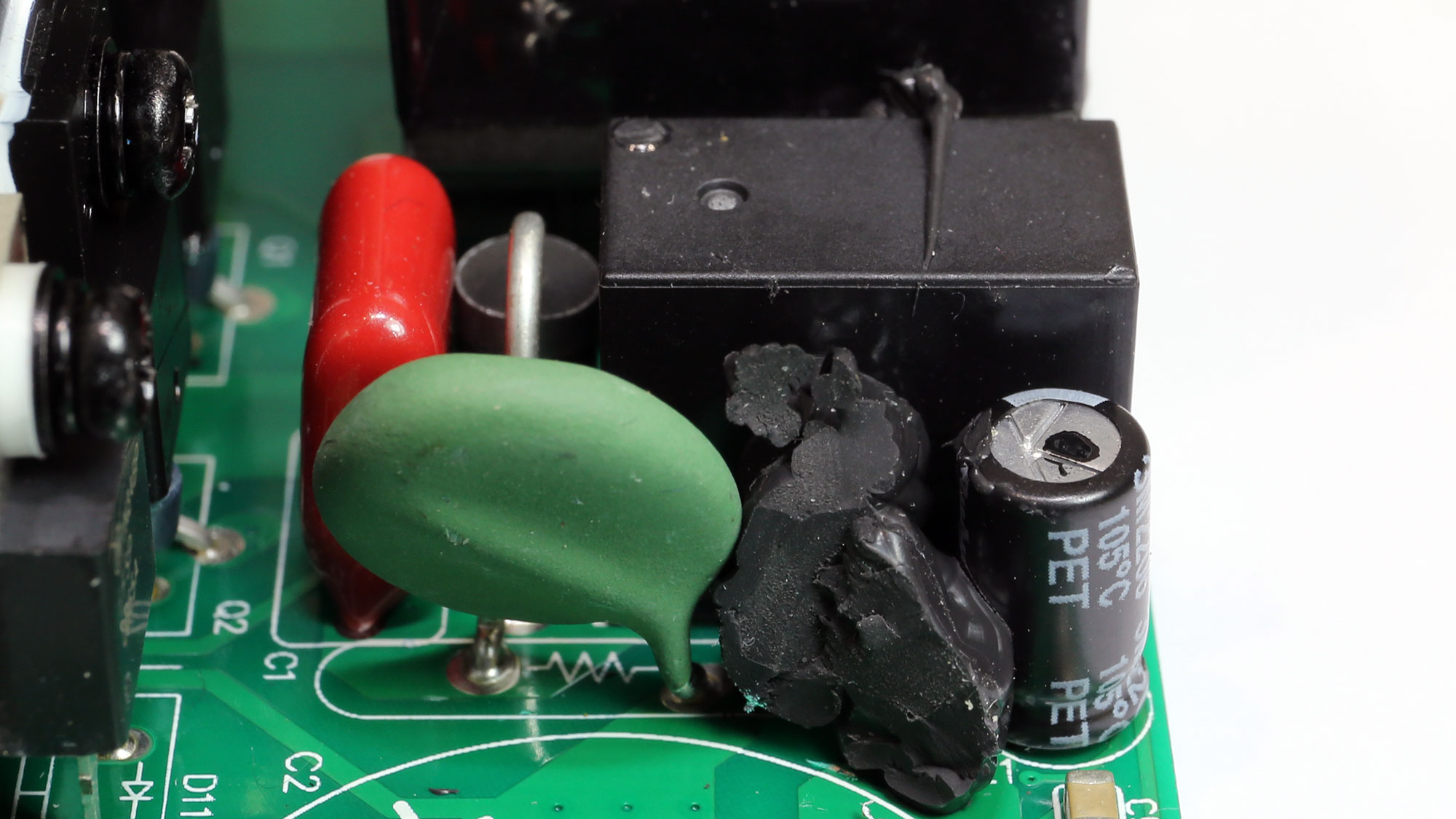
The transient/EMI filter is complete and does a fair job. Surge protection is offered through an MOV, and inrush protection is handled by an NTC thermistor and bypass relay combo.
Get Tom's Hardware's best news and in-depth reviews, straight to your inbox.
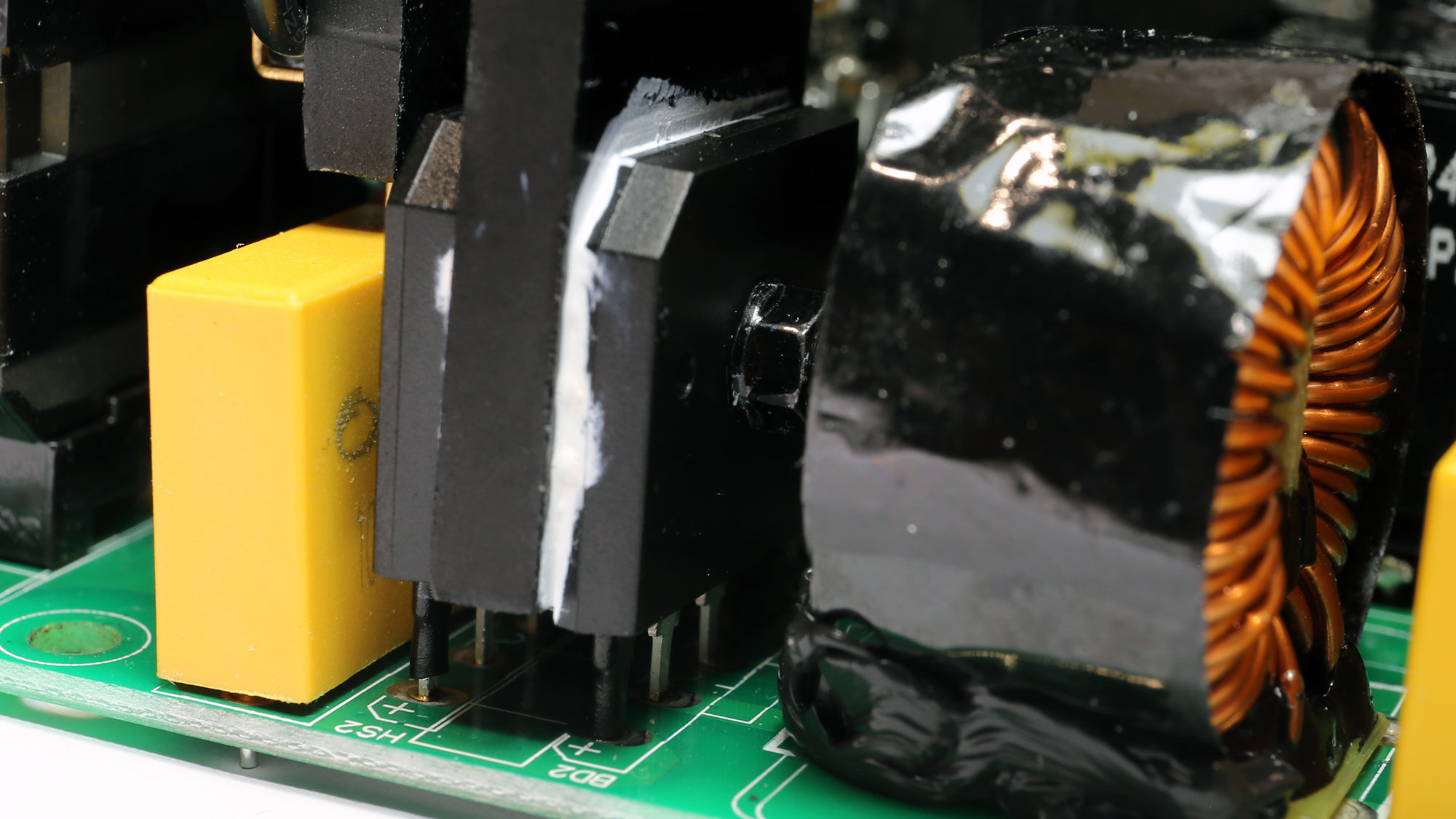
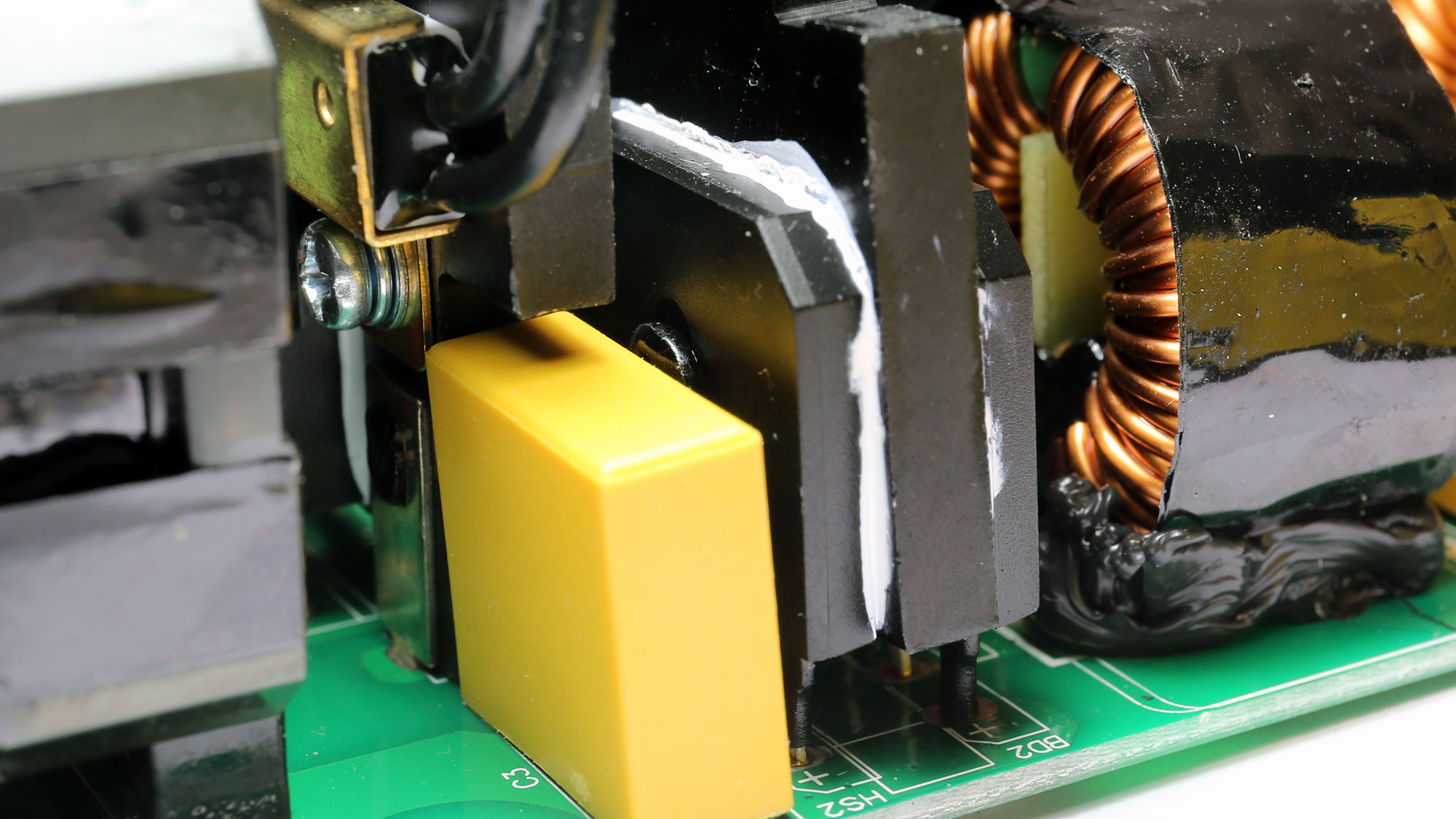
The pair of bridge rectifiers can rectify up to 30A.
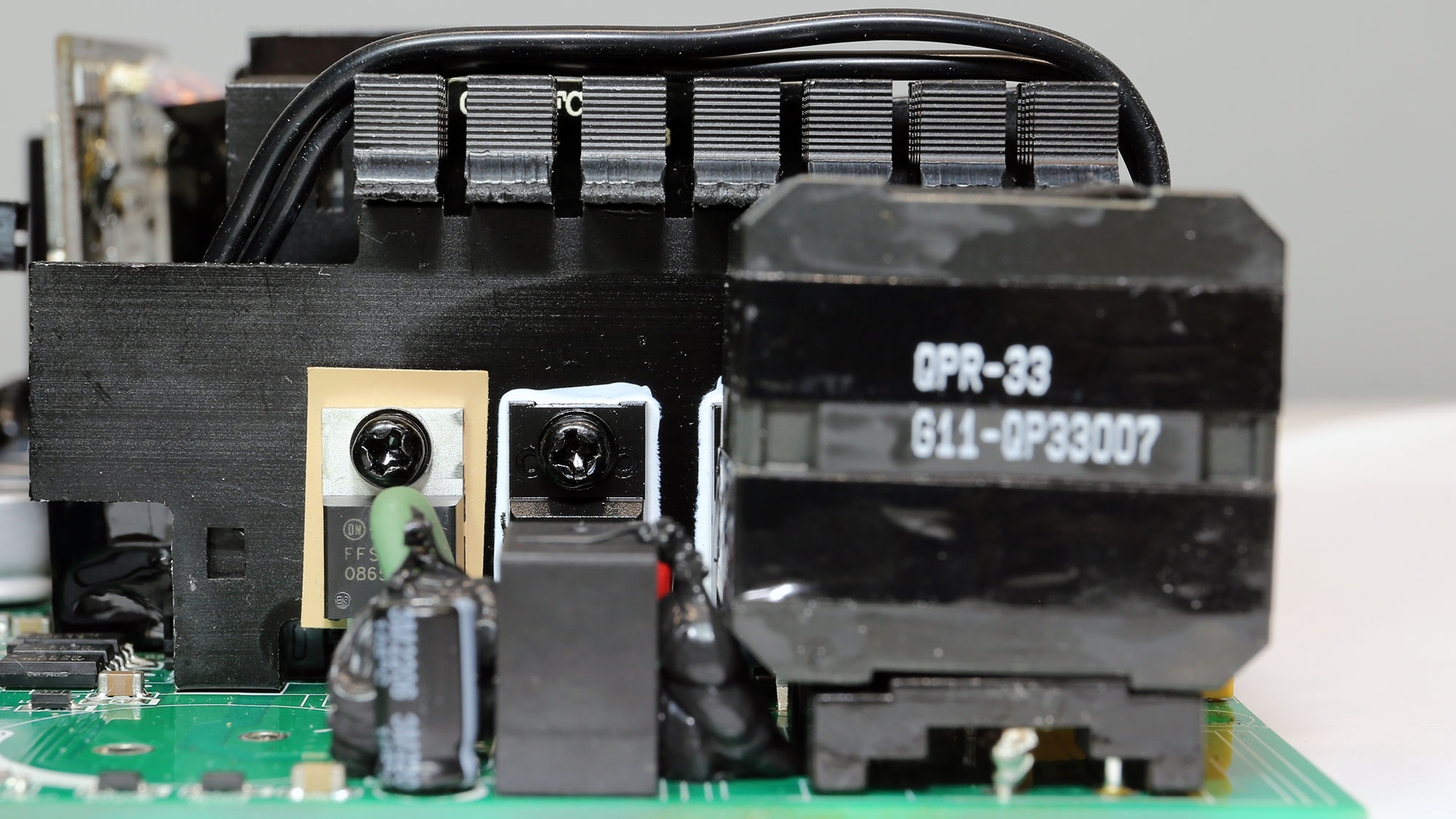
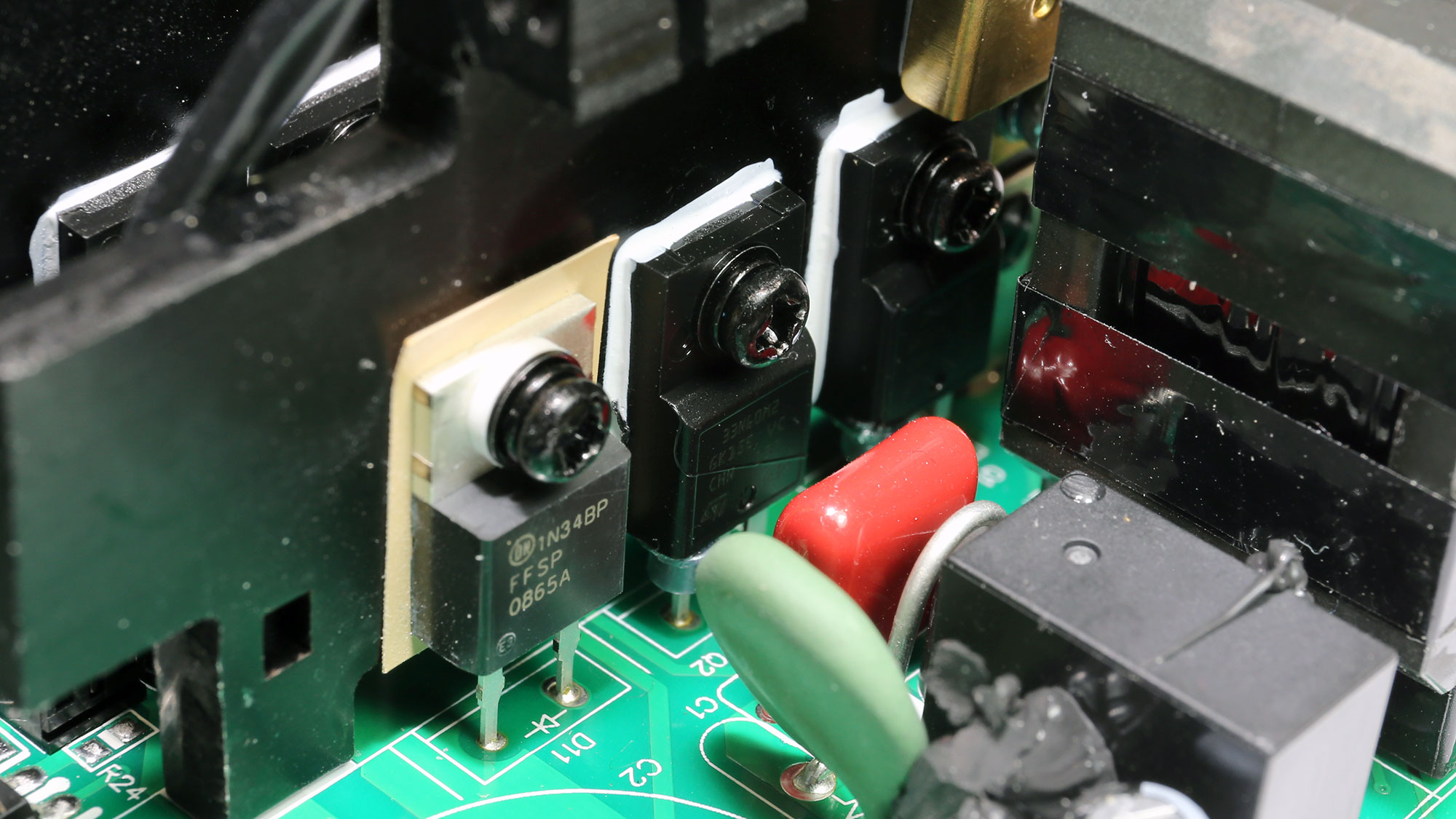
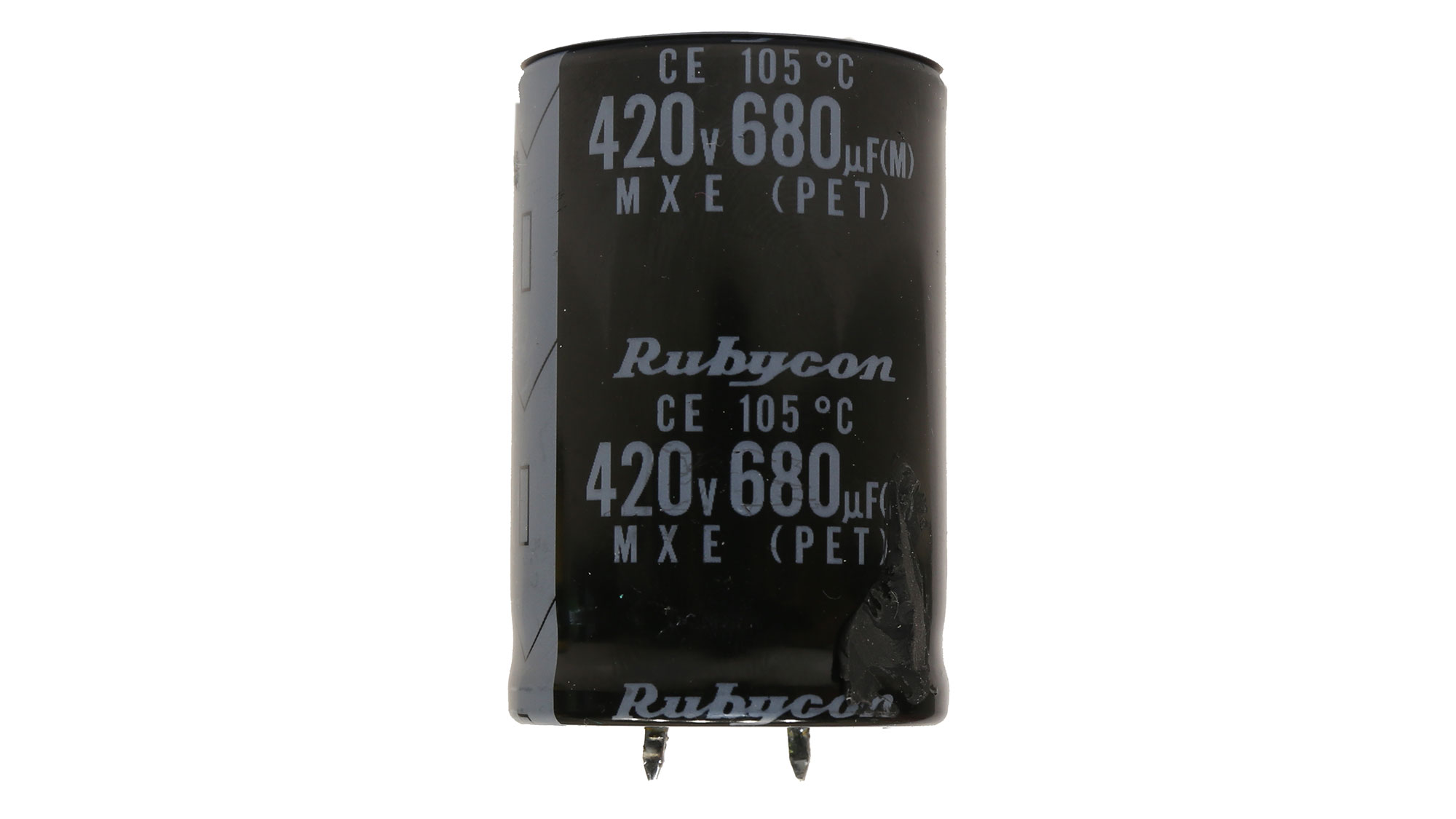
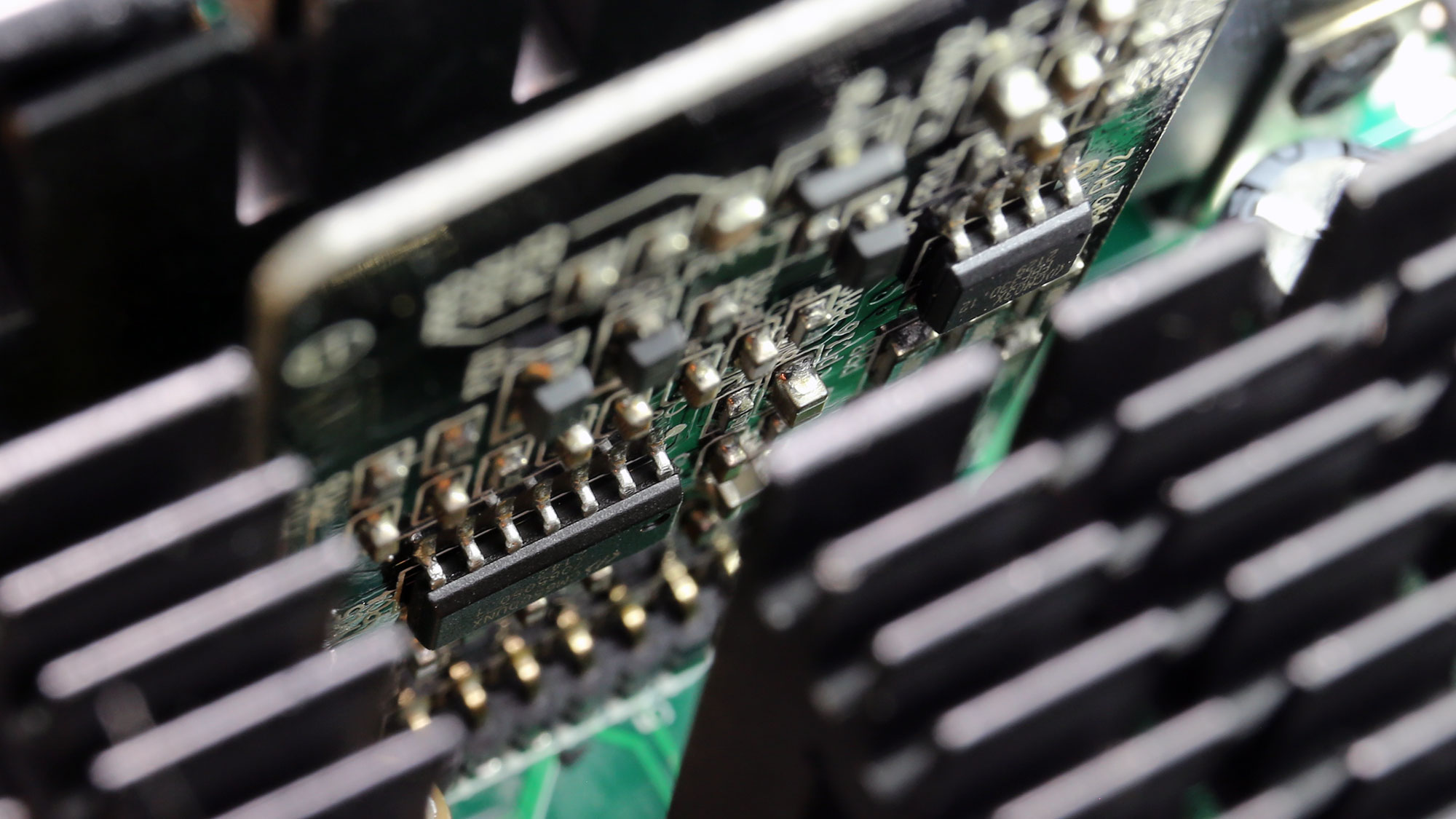
The APFC converter uses two STMicroelectronics FETs and an On Semiconductor boost diode. The bulk cap is by Rubycon, and its capacity is barely enough to allow for more than 17 ms hold-up time.
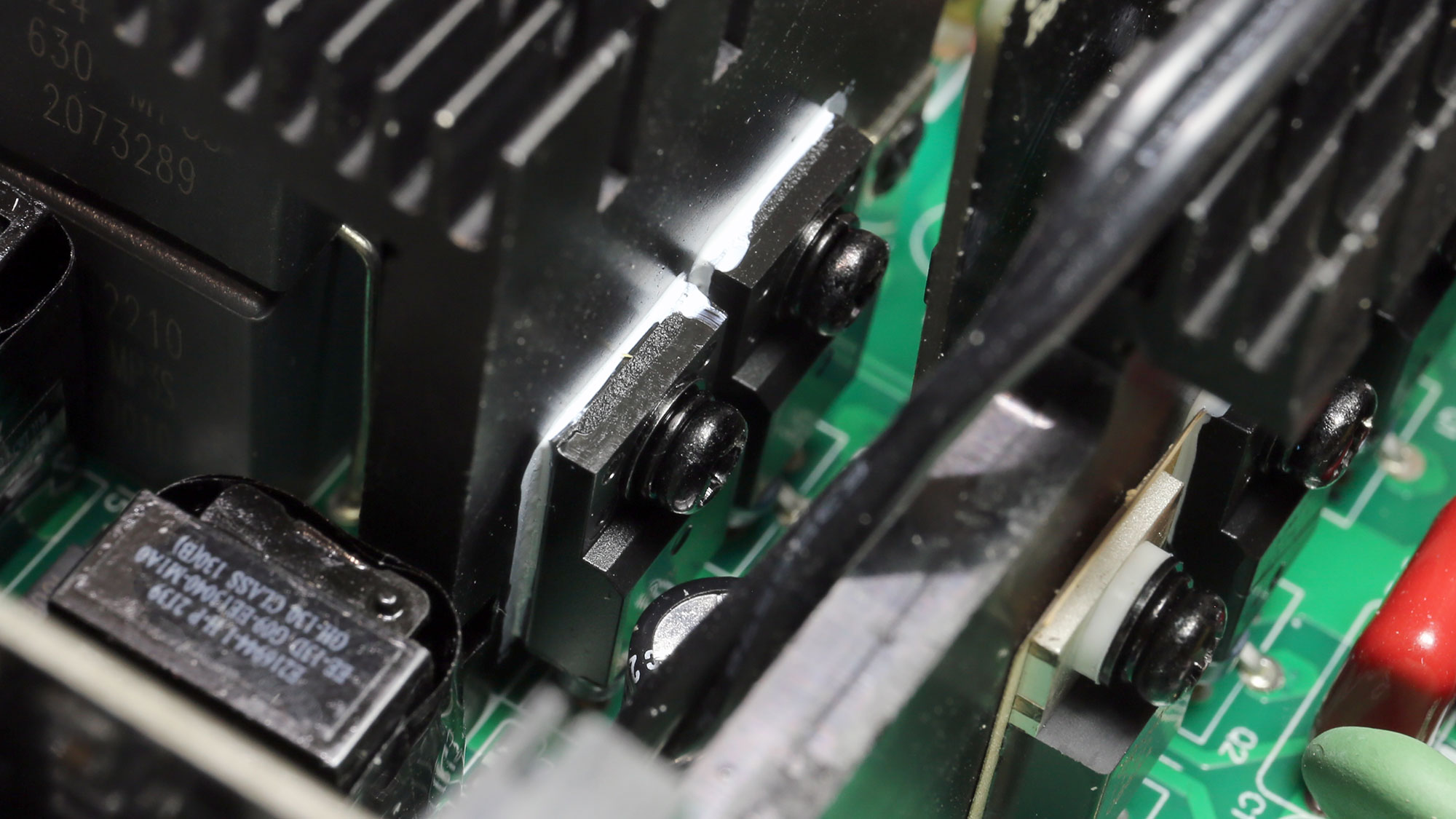
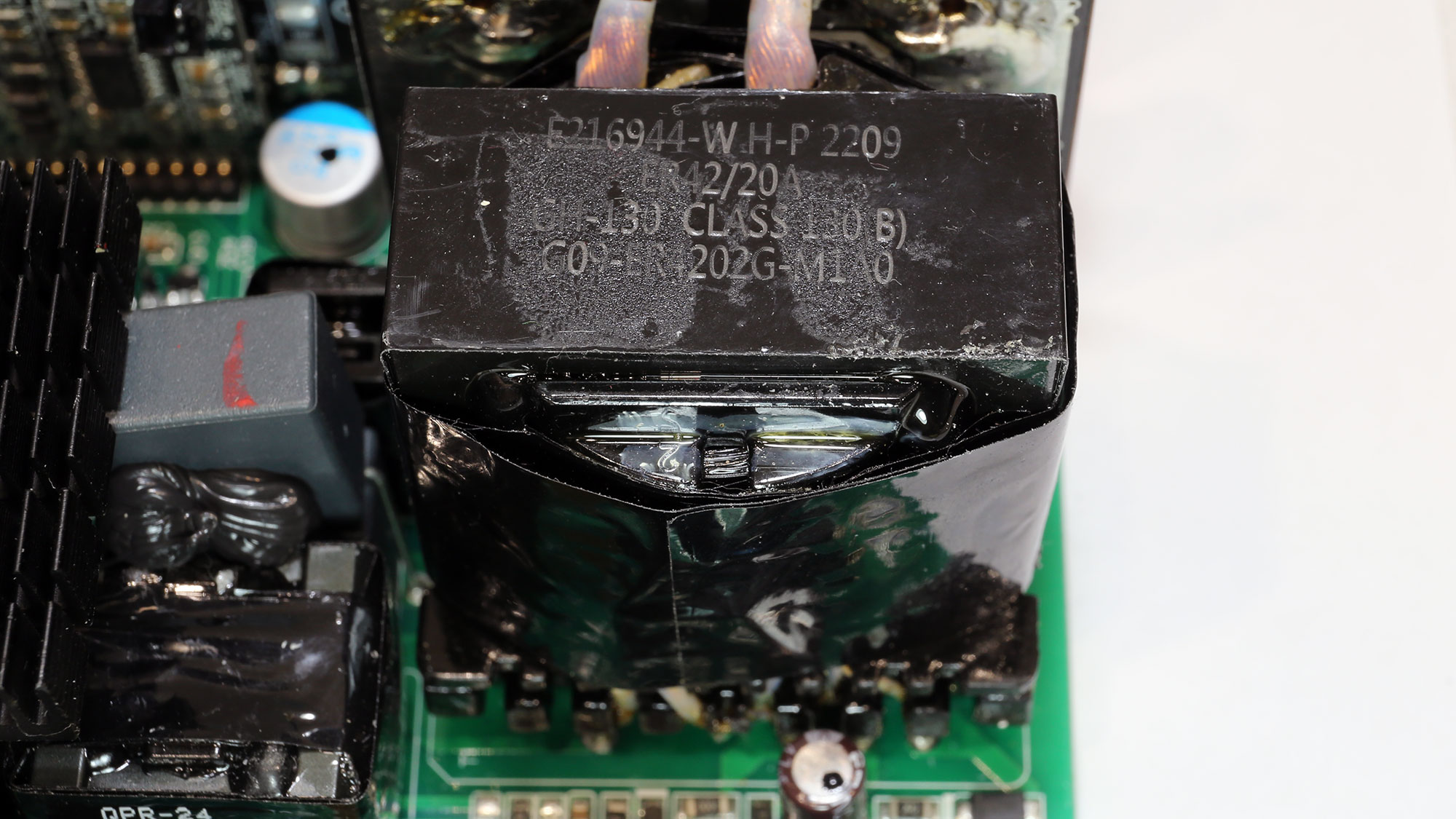
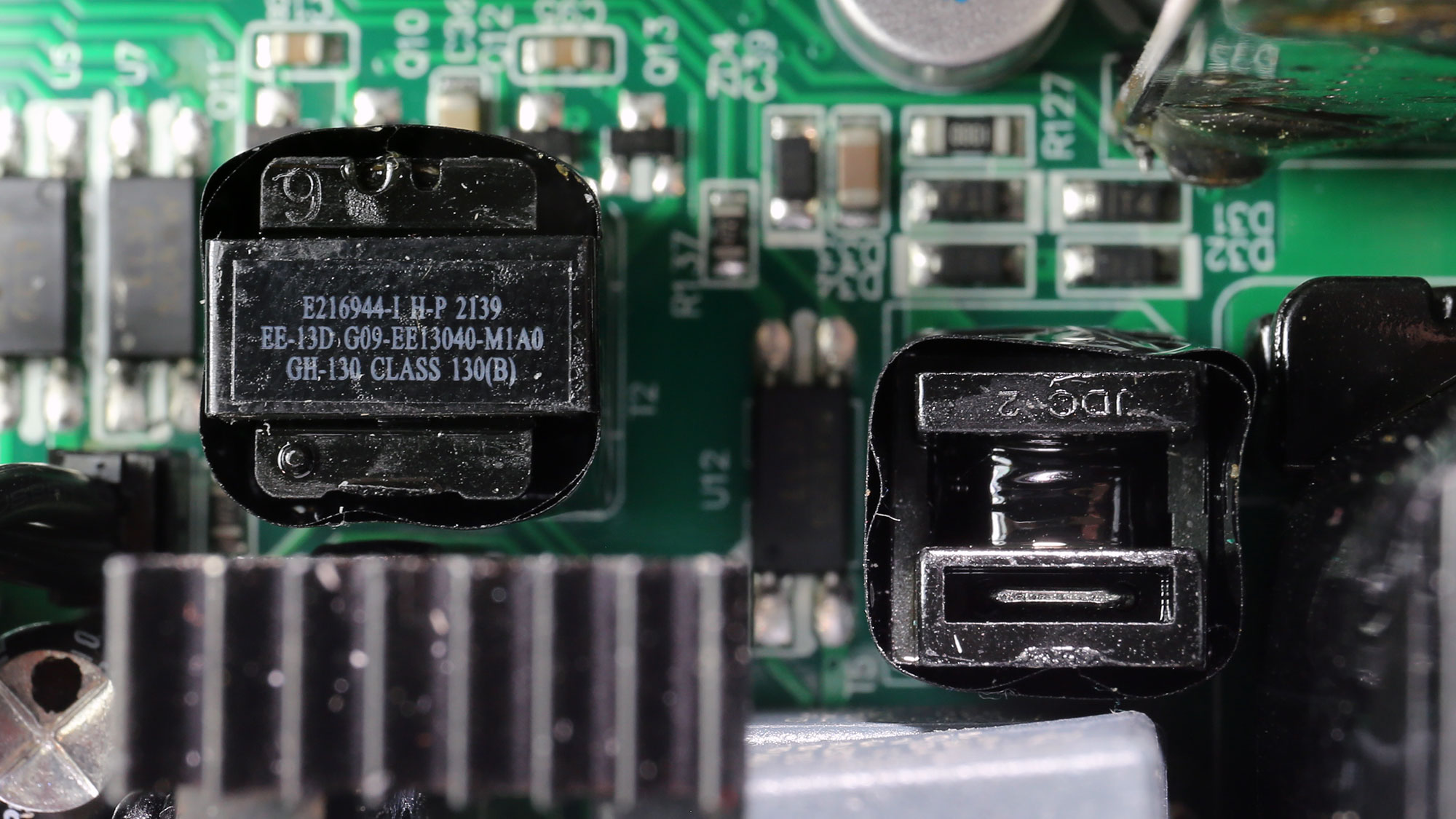
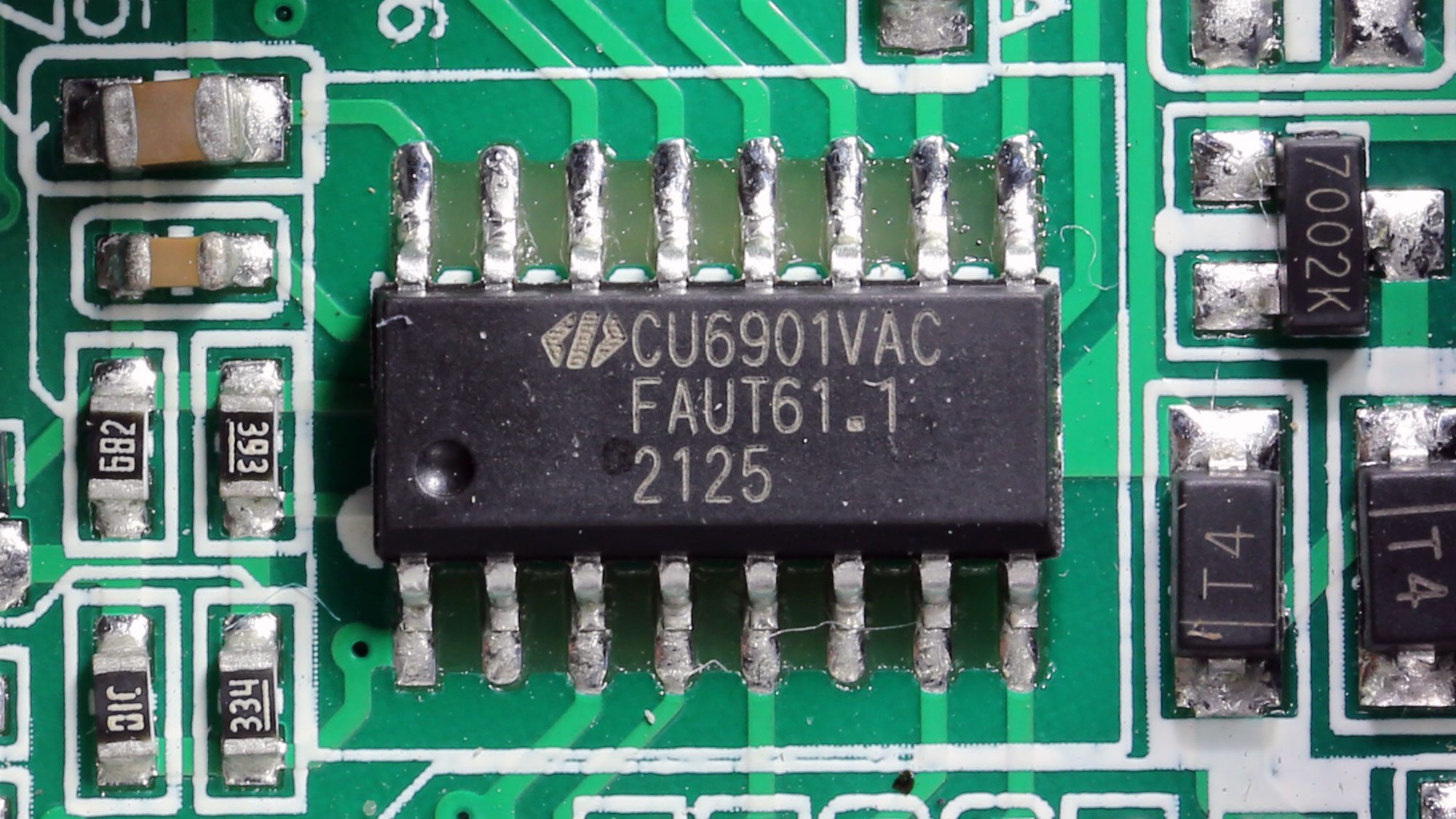
The main FETs are installed in a half-bridge topology. An LLC resonant converter is also used for higher efficiency.
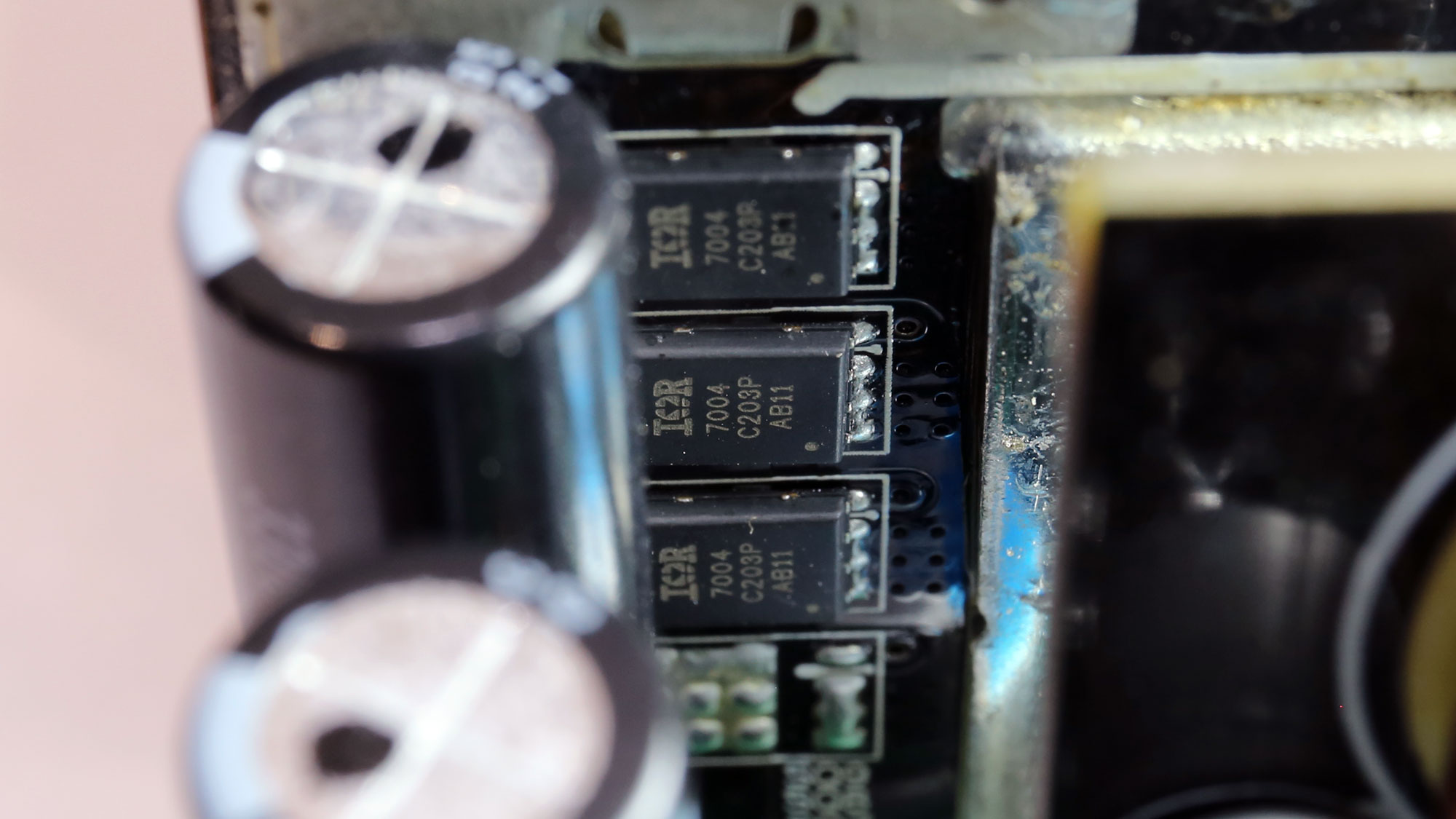
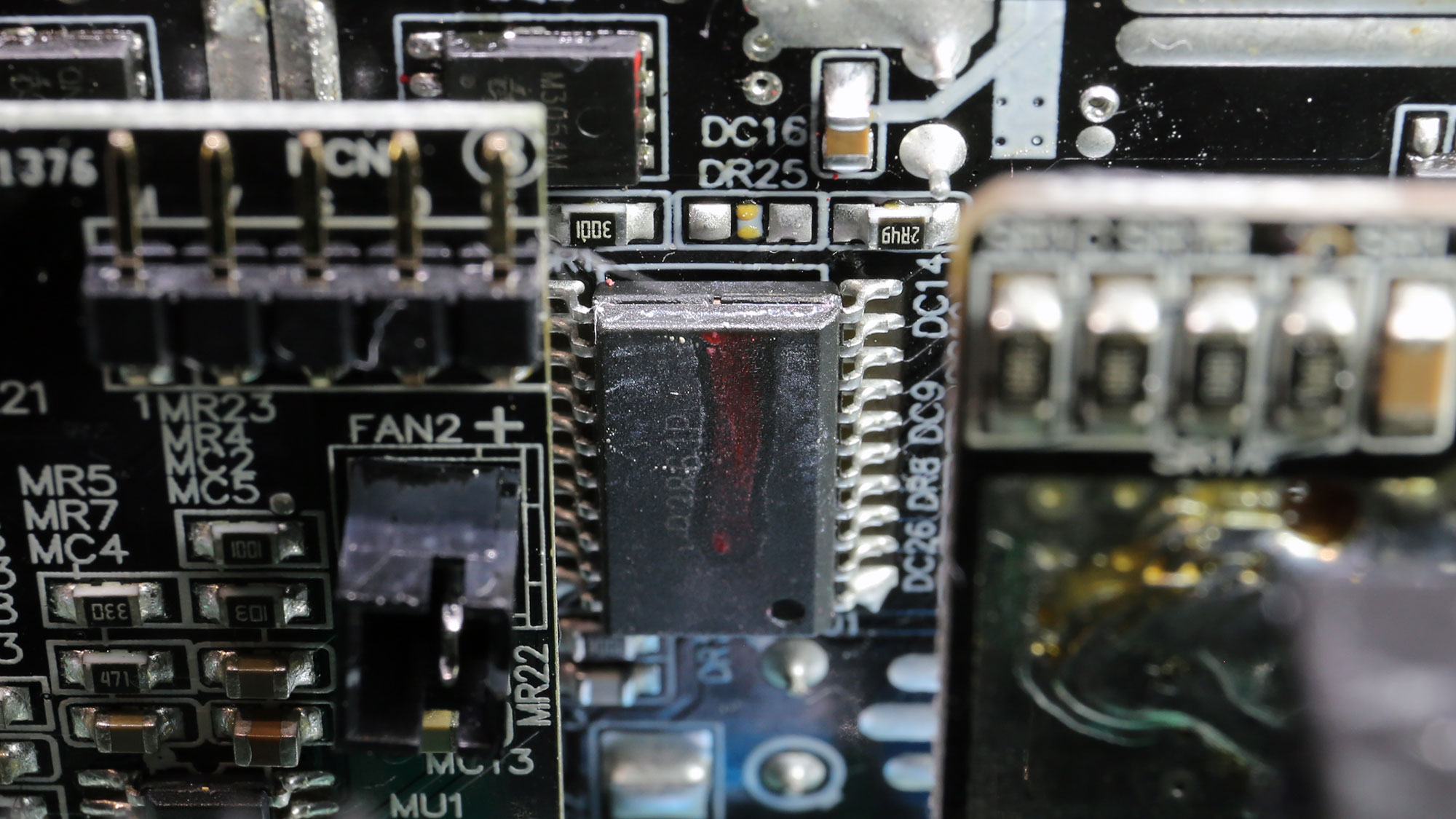
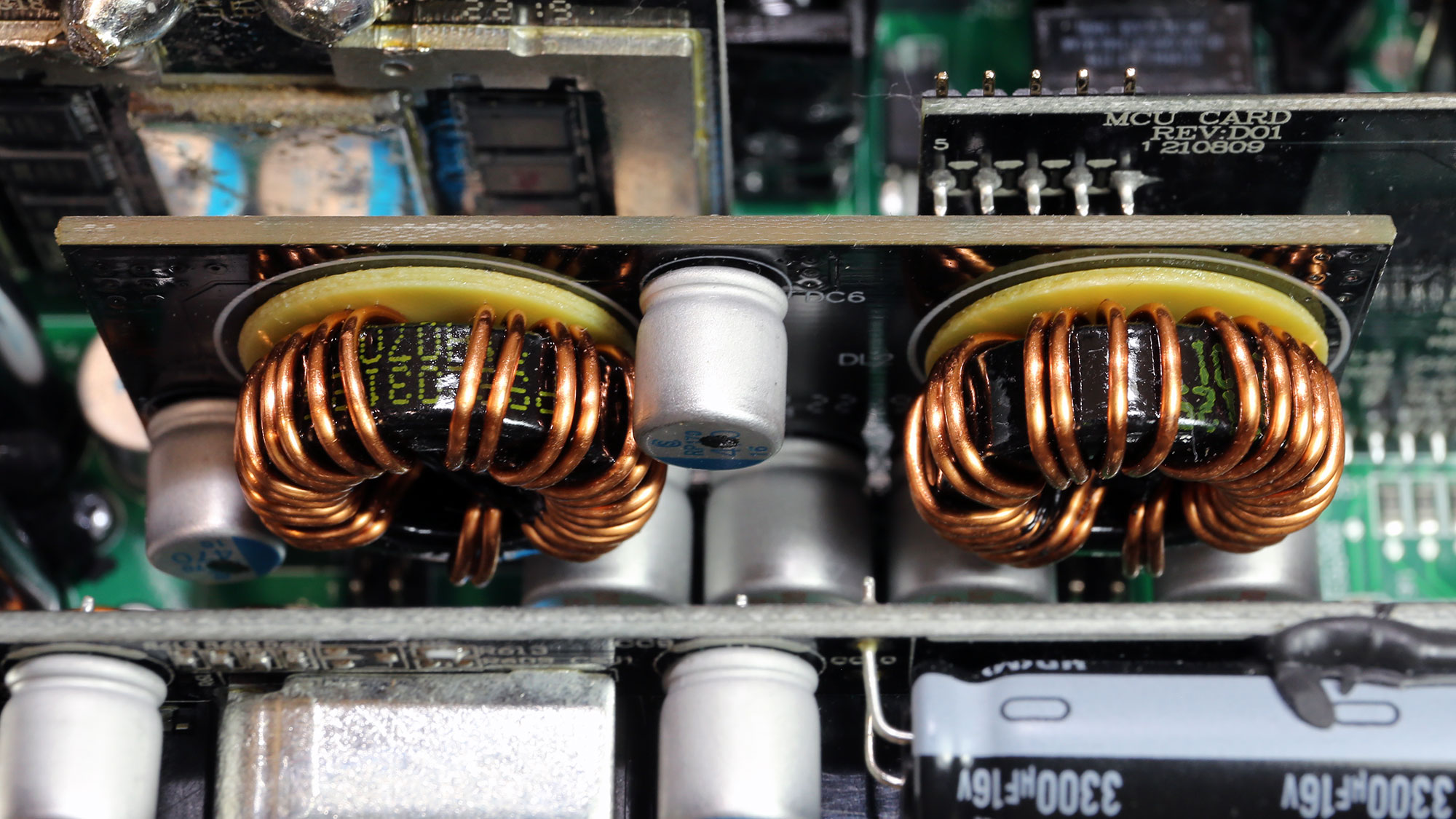
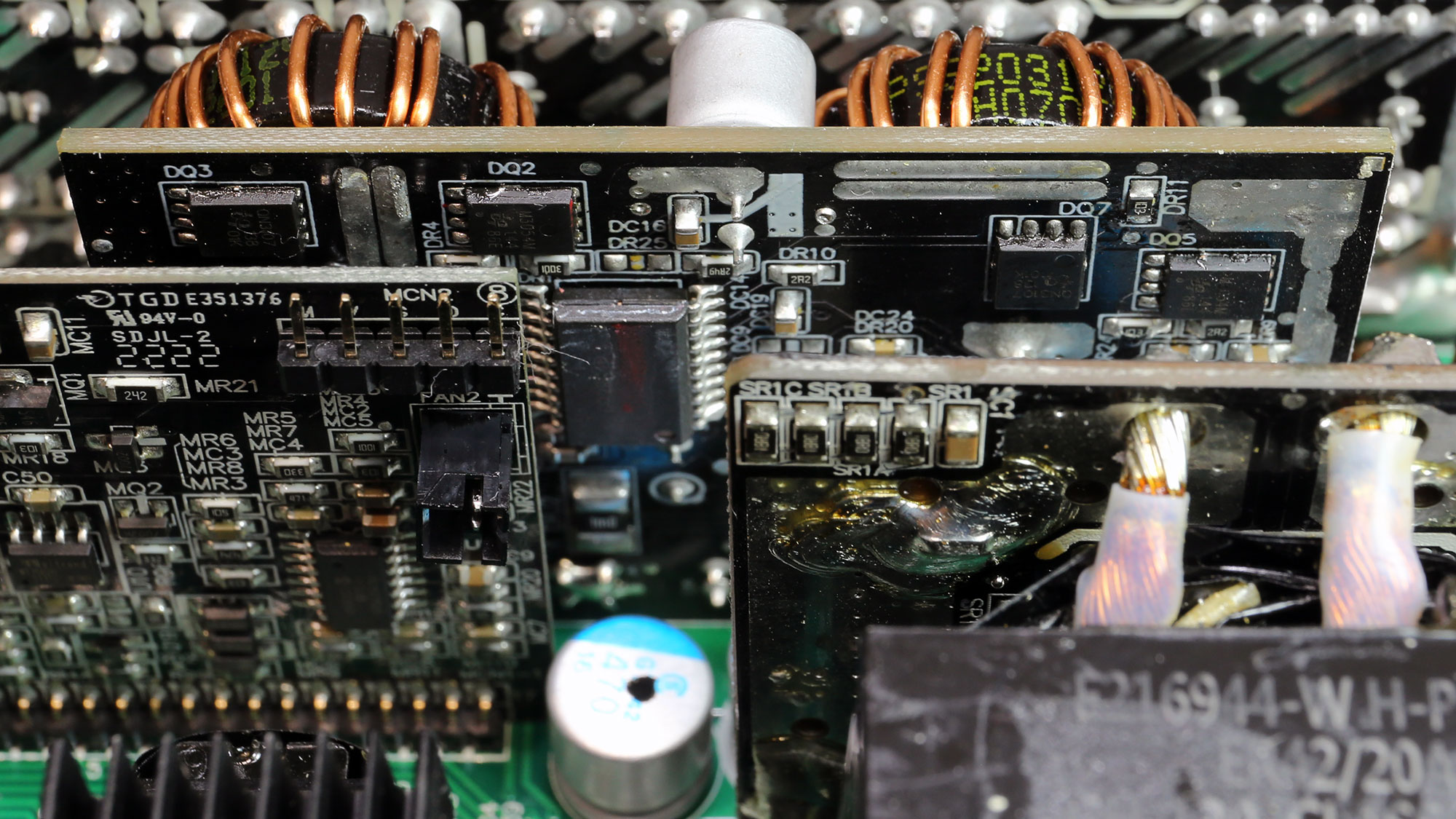
The 12V FETs are installed on a vertical board next to the main transformer for lower power losses. The minor rails are generated through a pair of DC-DC converters.
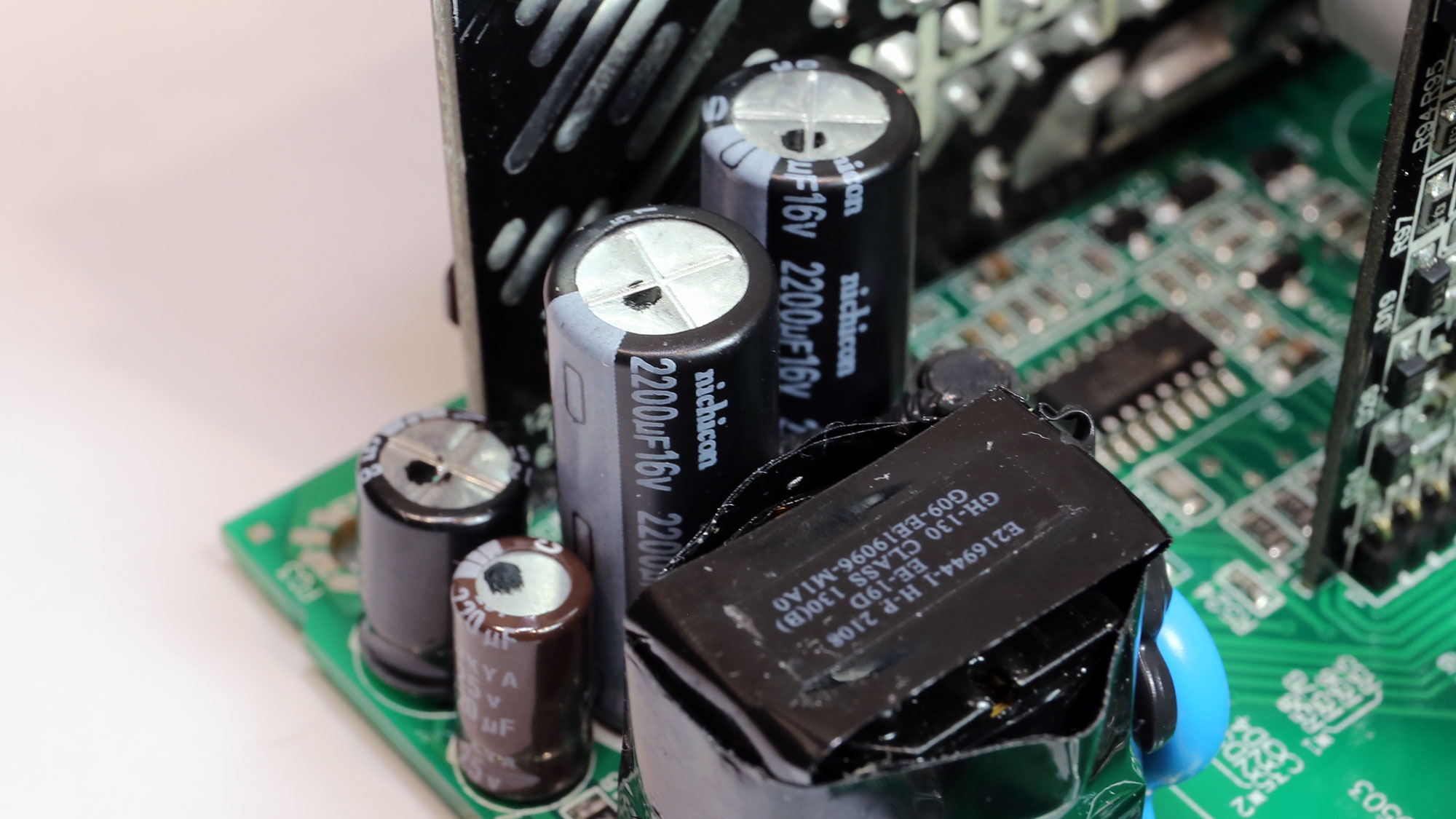
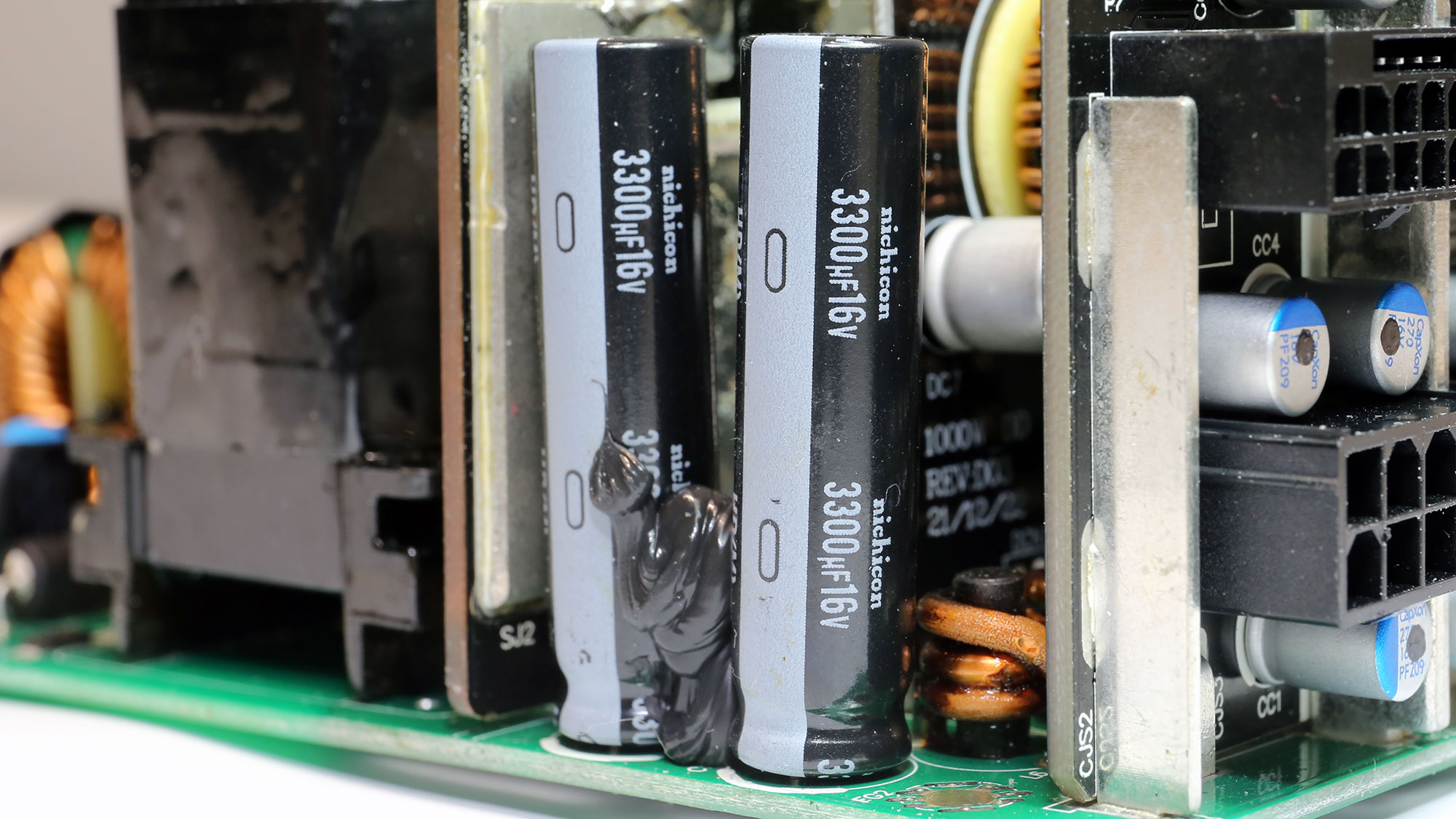
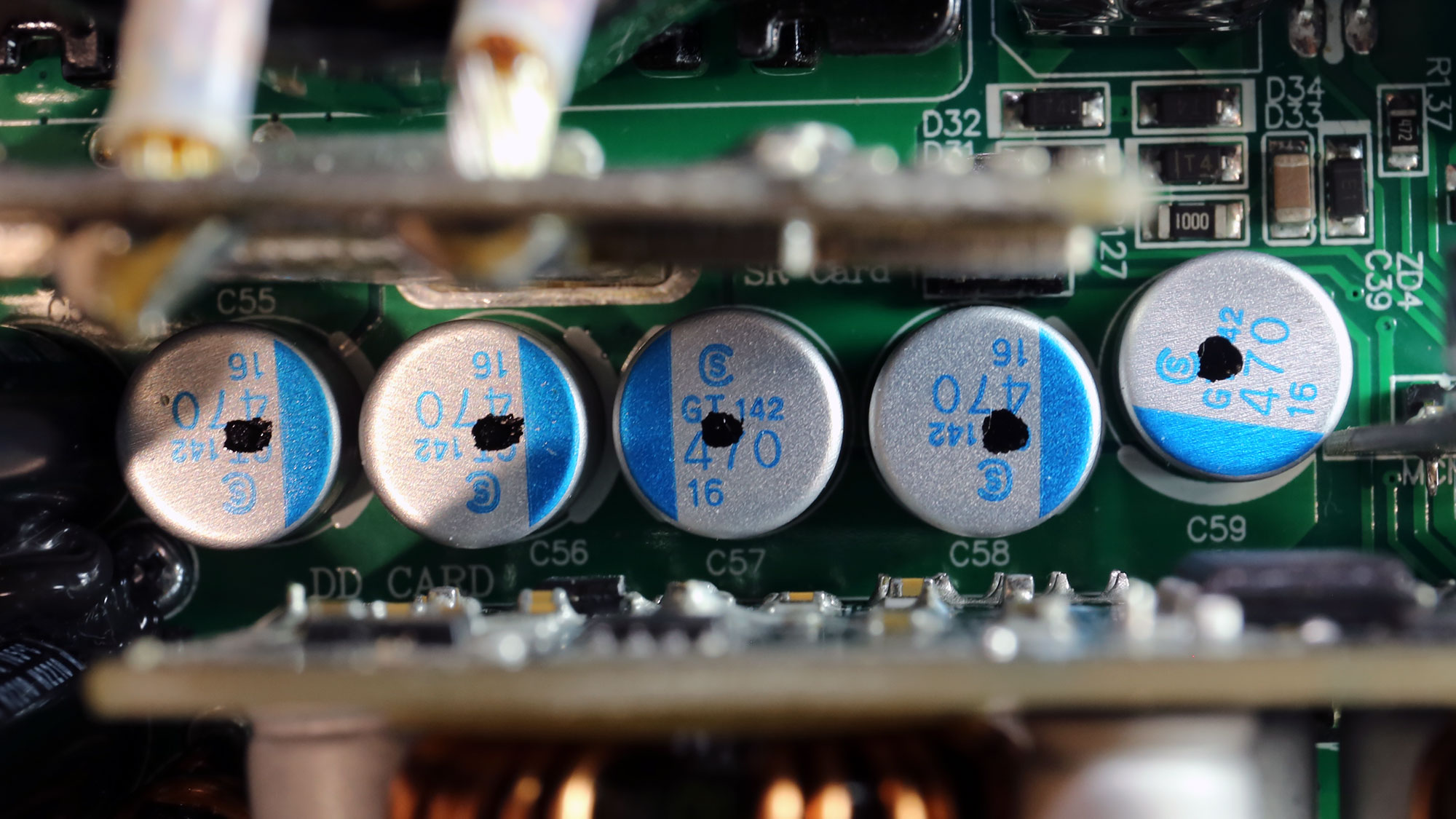
The electrolytic filtering caps are of high quality. Most polymer caps are by lower-cost brands, but these caps are highly tolerant to harsh conditions.
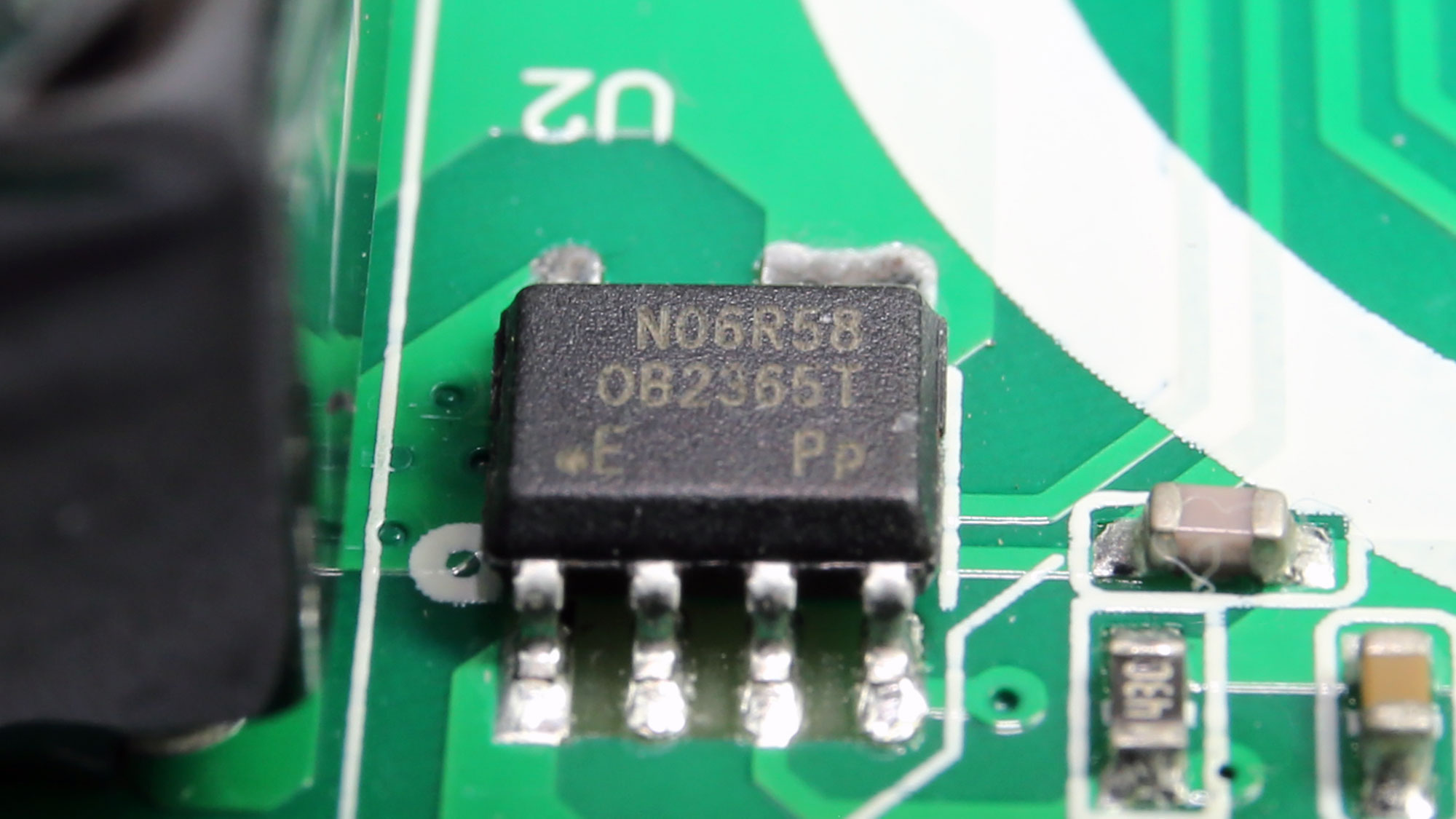
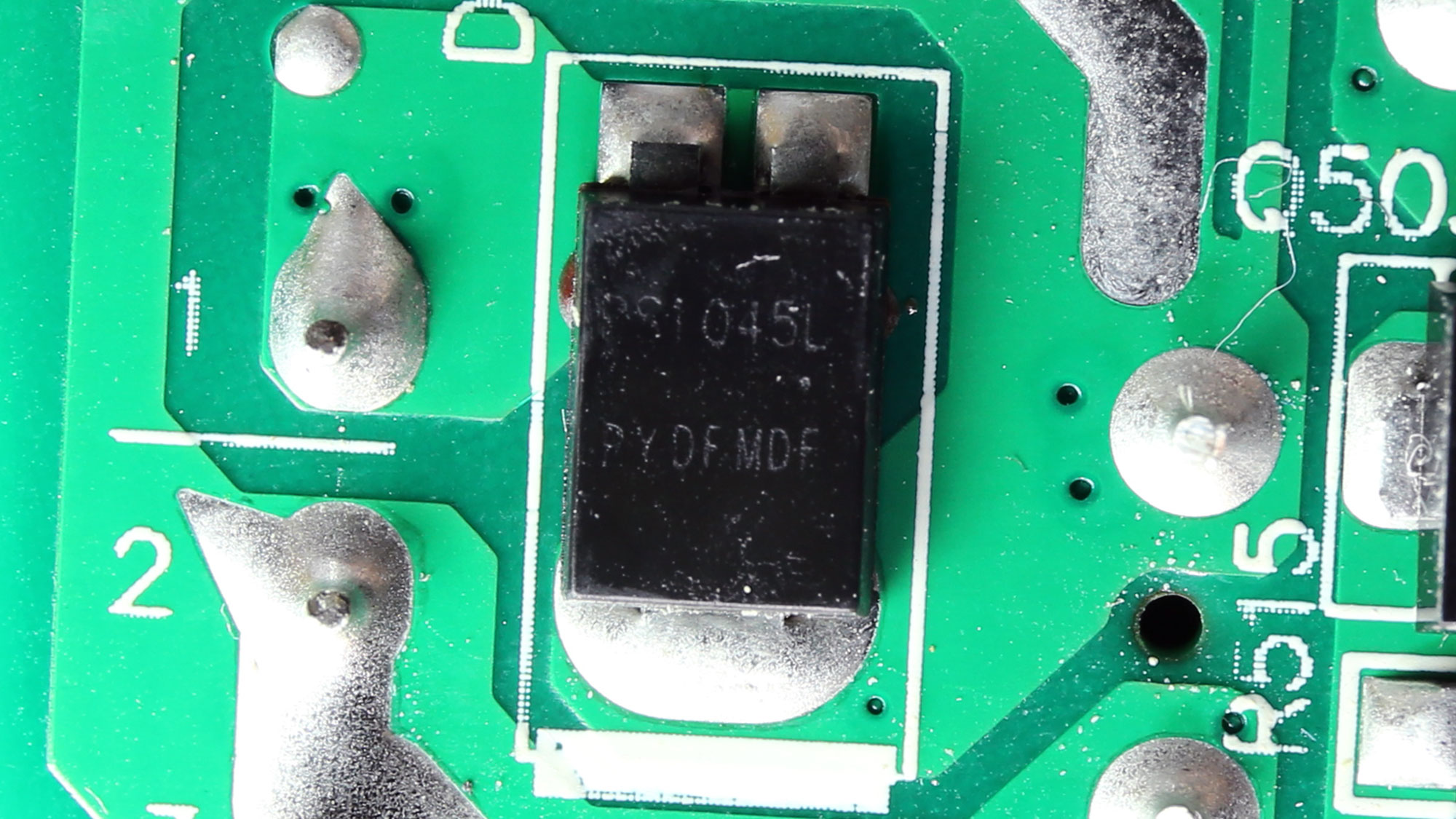
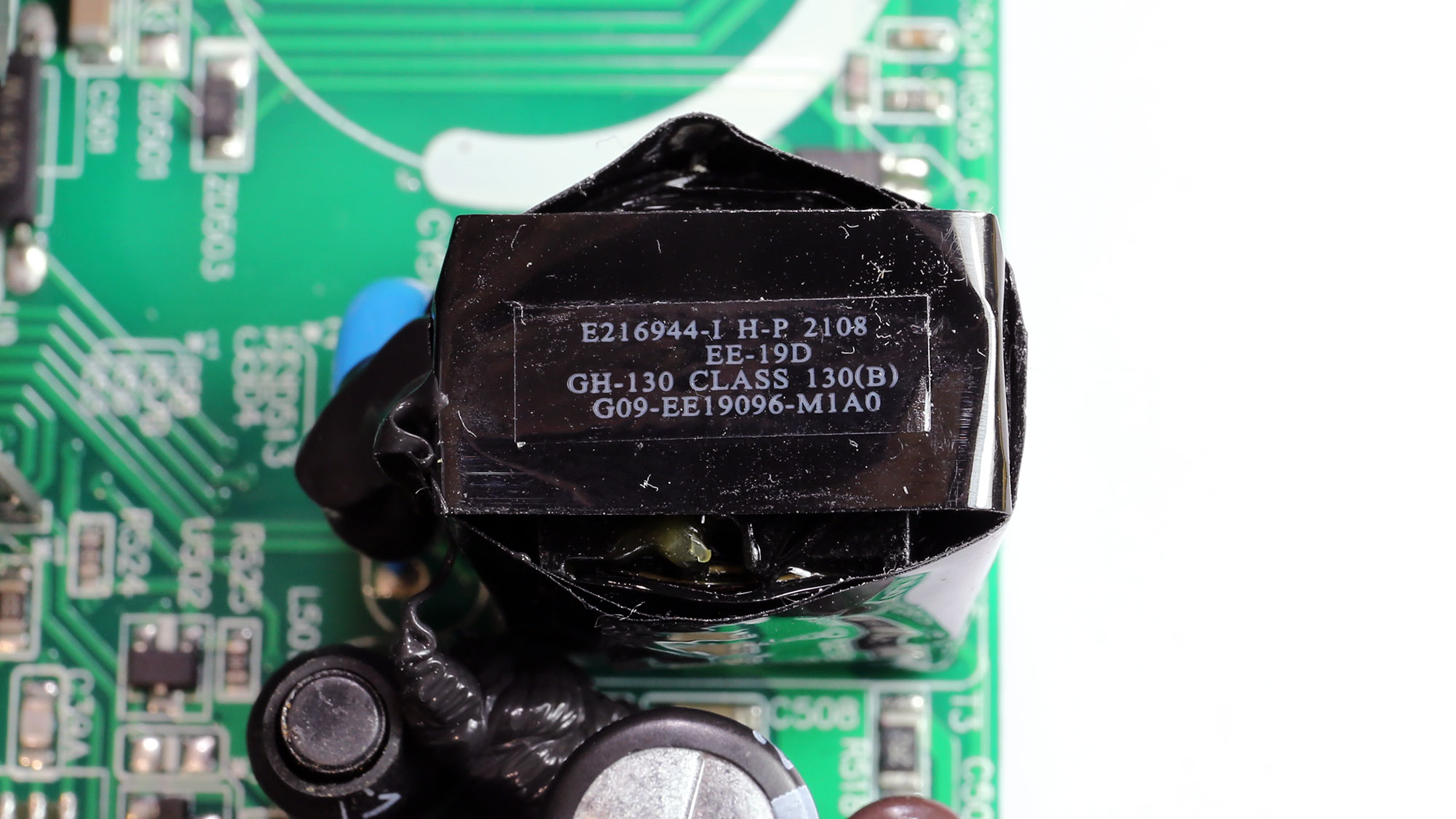
The standby PWM controller is an On-Bright OB2365T.
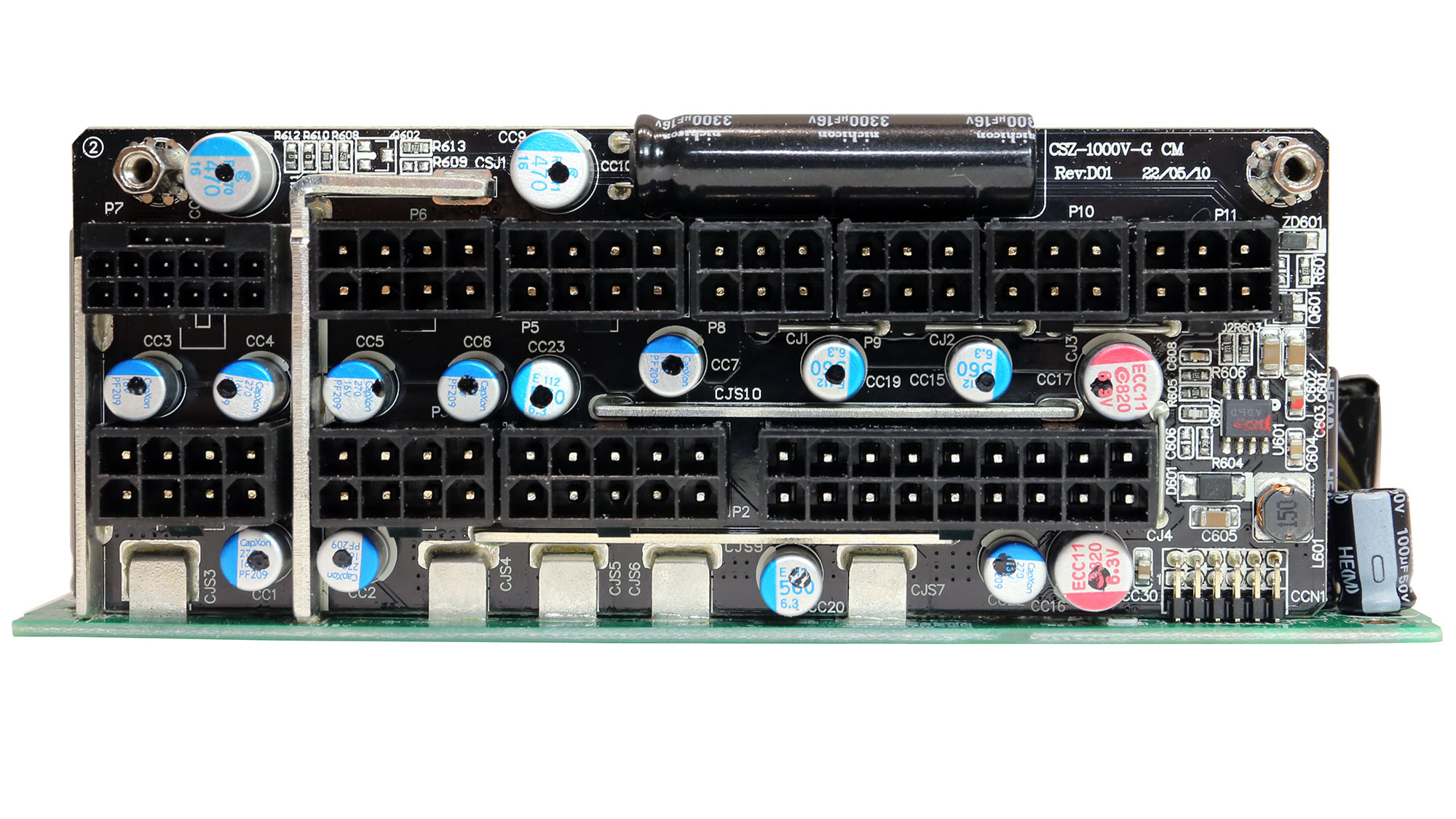
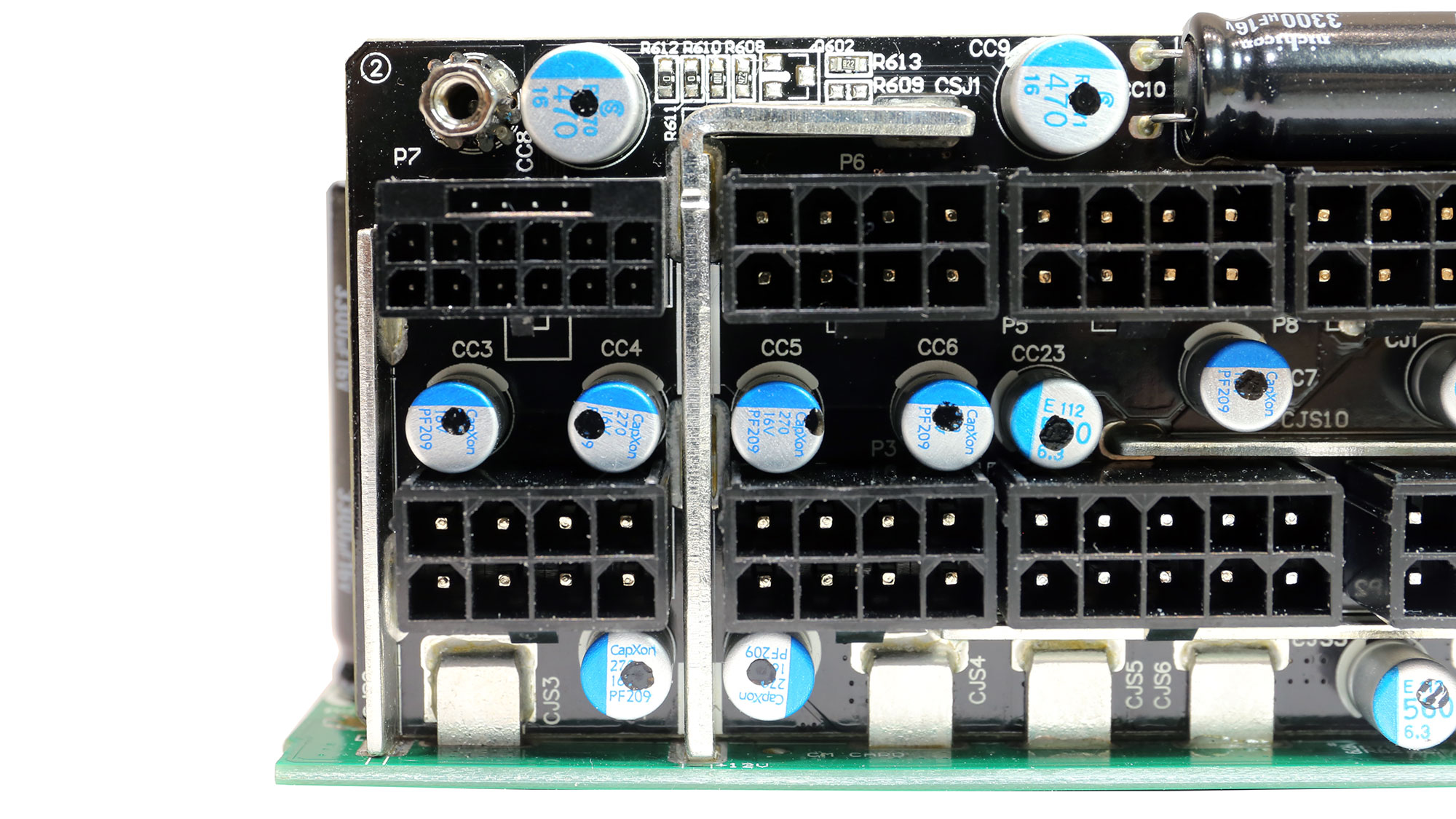
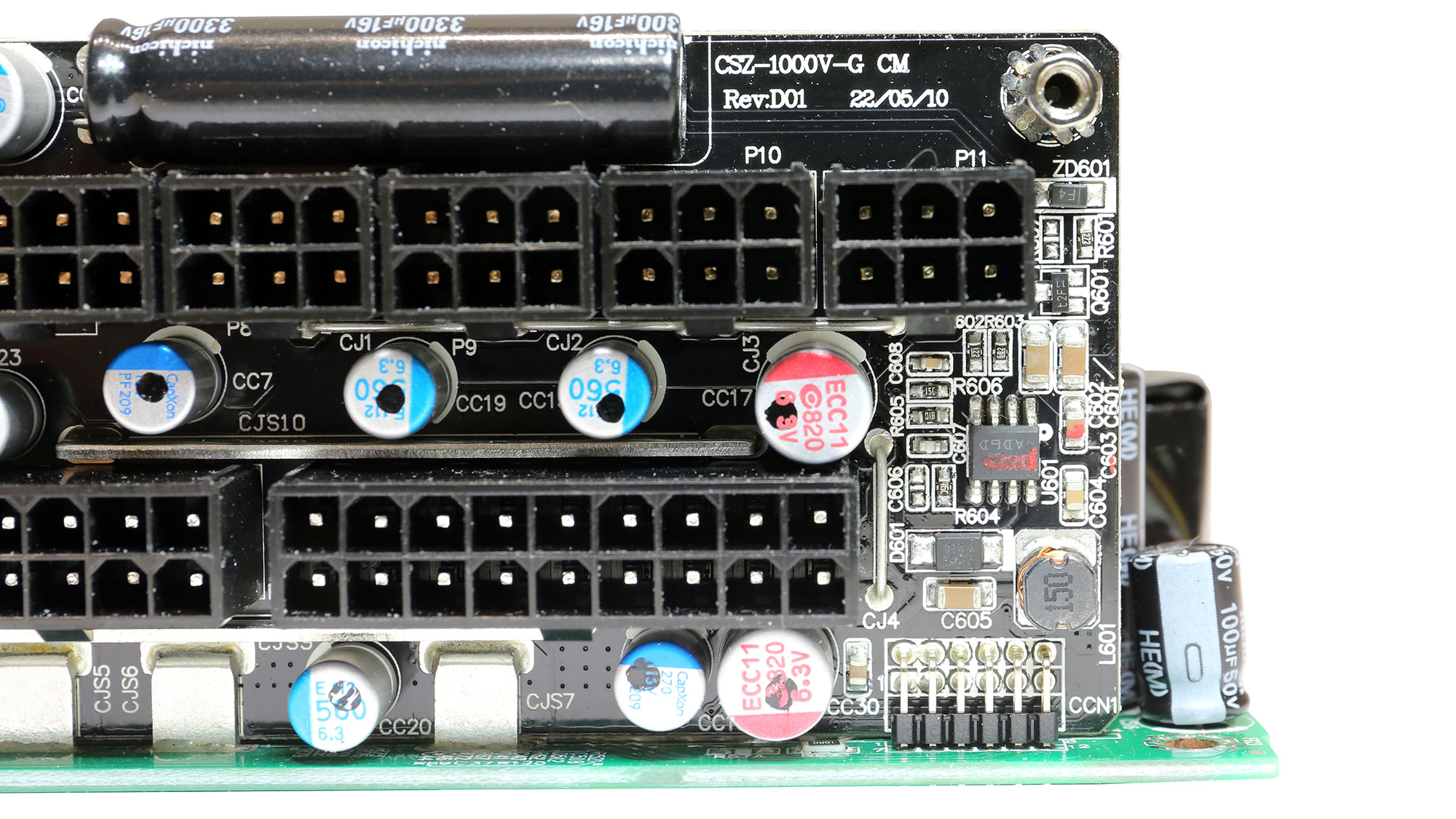
We find several polymer caps on the modular PCB, for ripple filtering purposes.
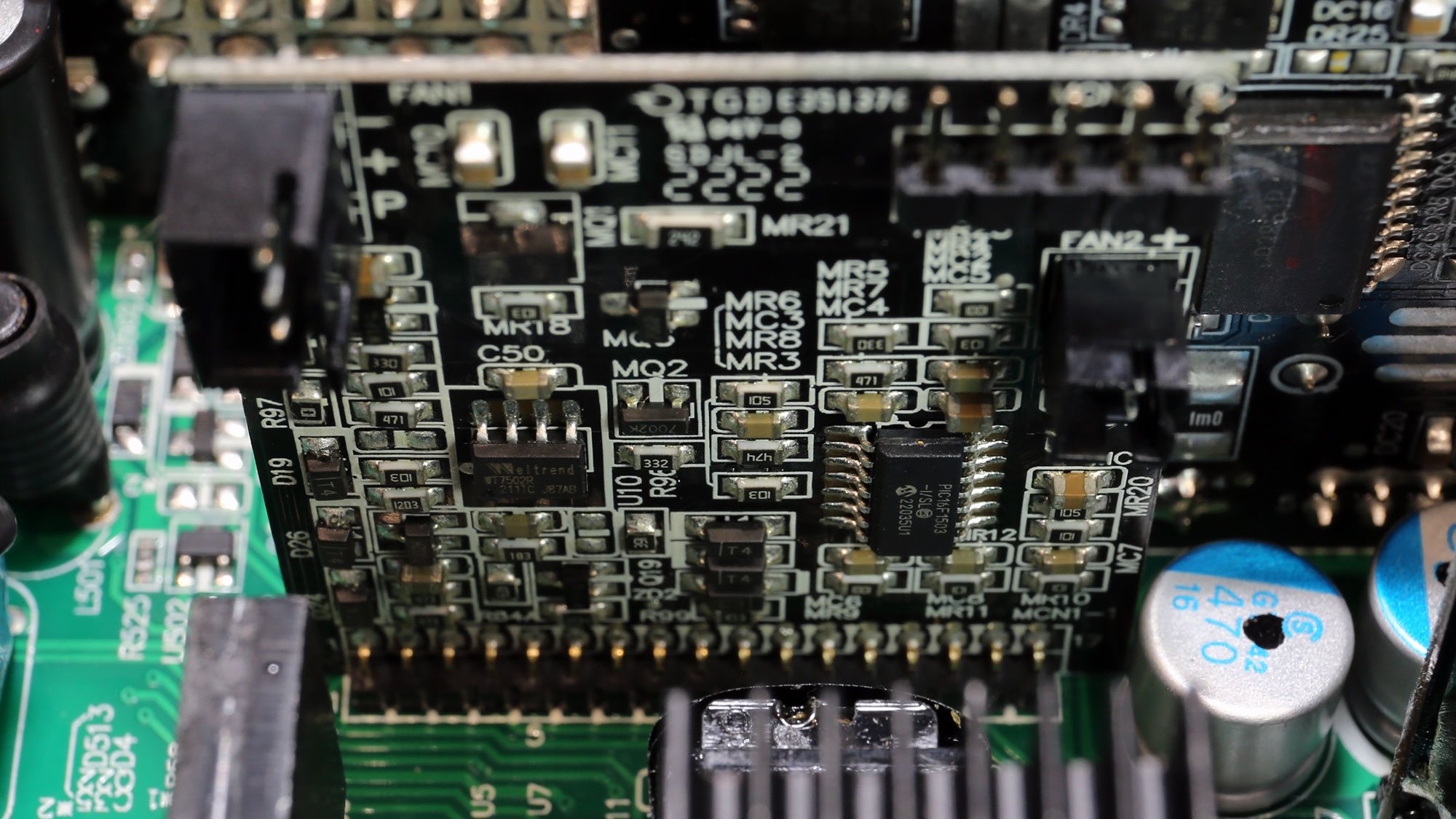
The main supervisor IC is a Weltrend WT7502R. It is installed on the same board with a Microchip PIC16F1503, which controls the fan's speed.
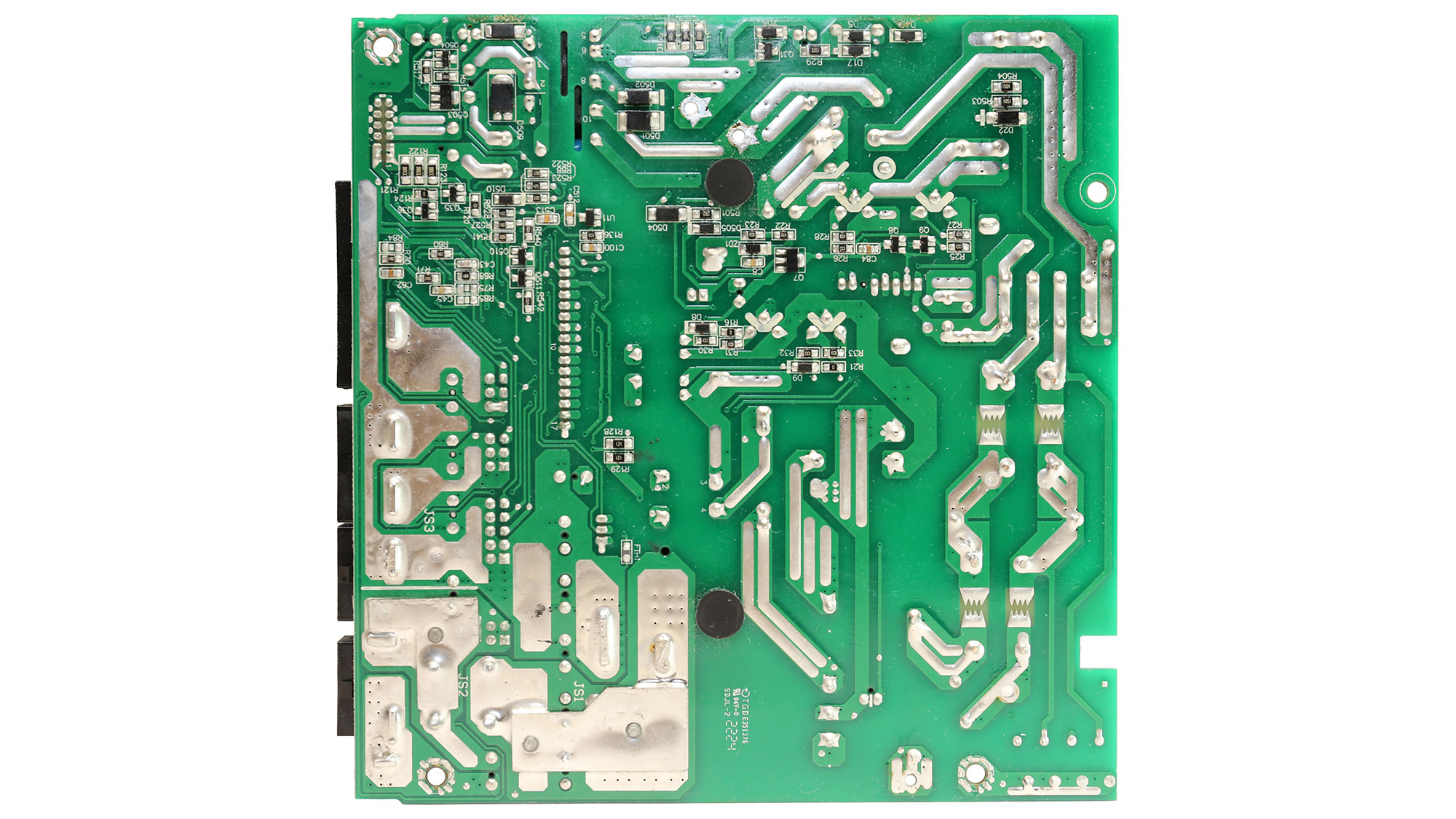
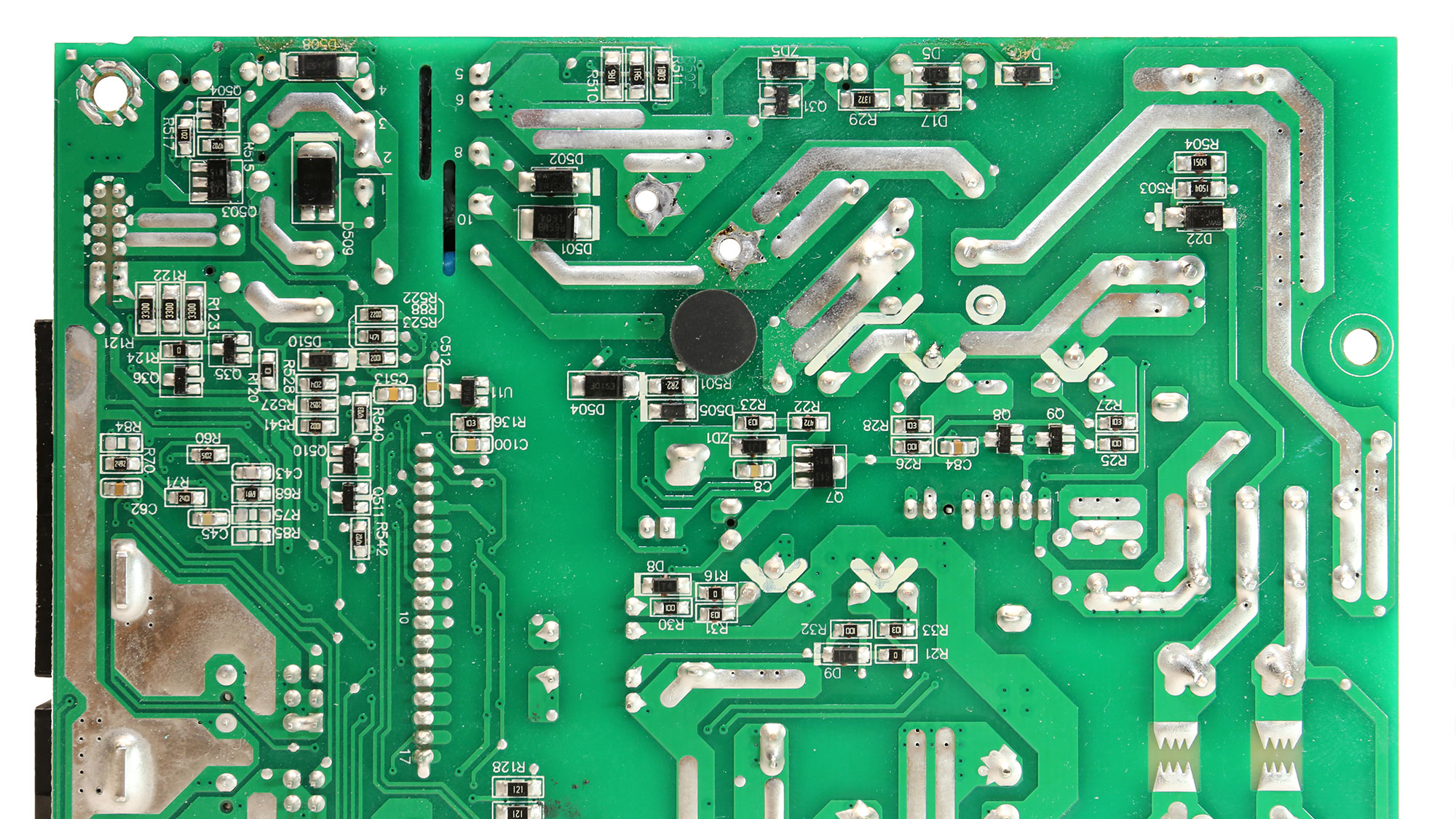
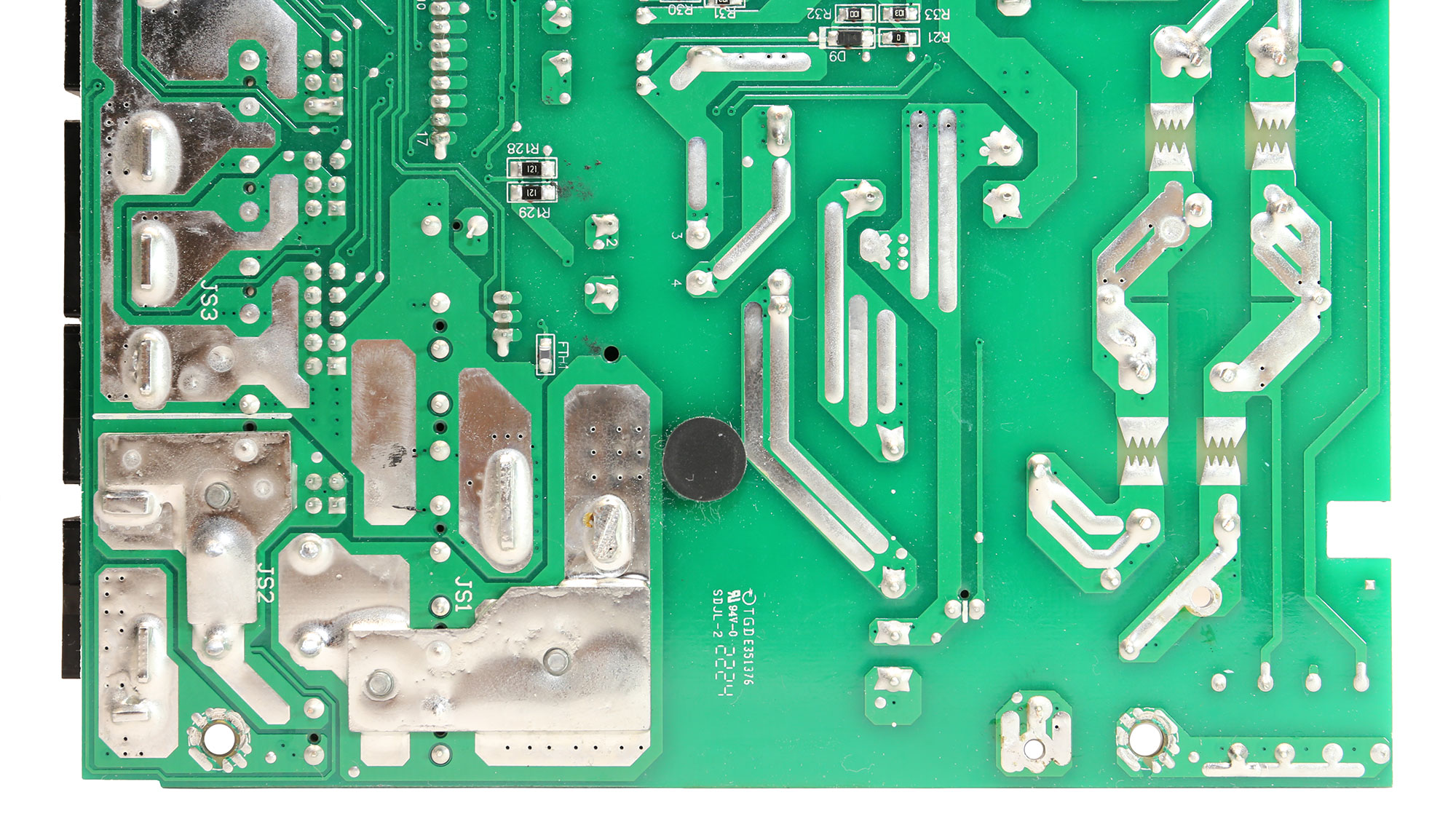
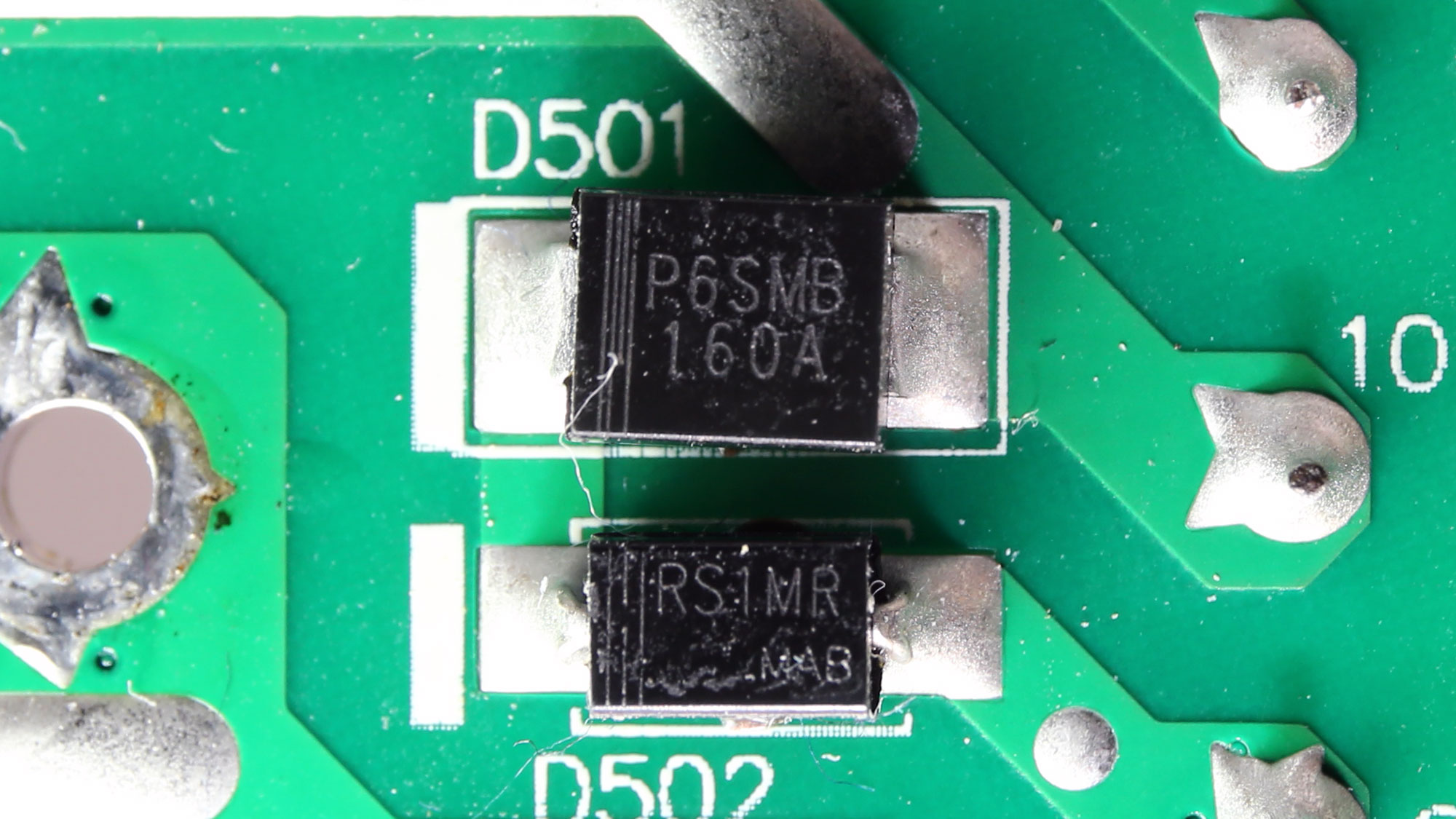
Soldering quality is typical CWT, that is good.
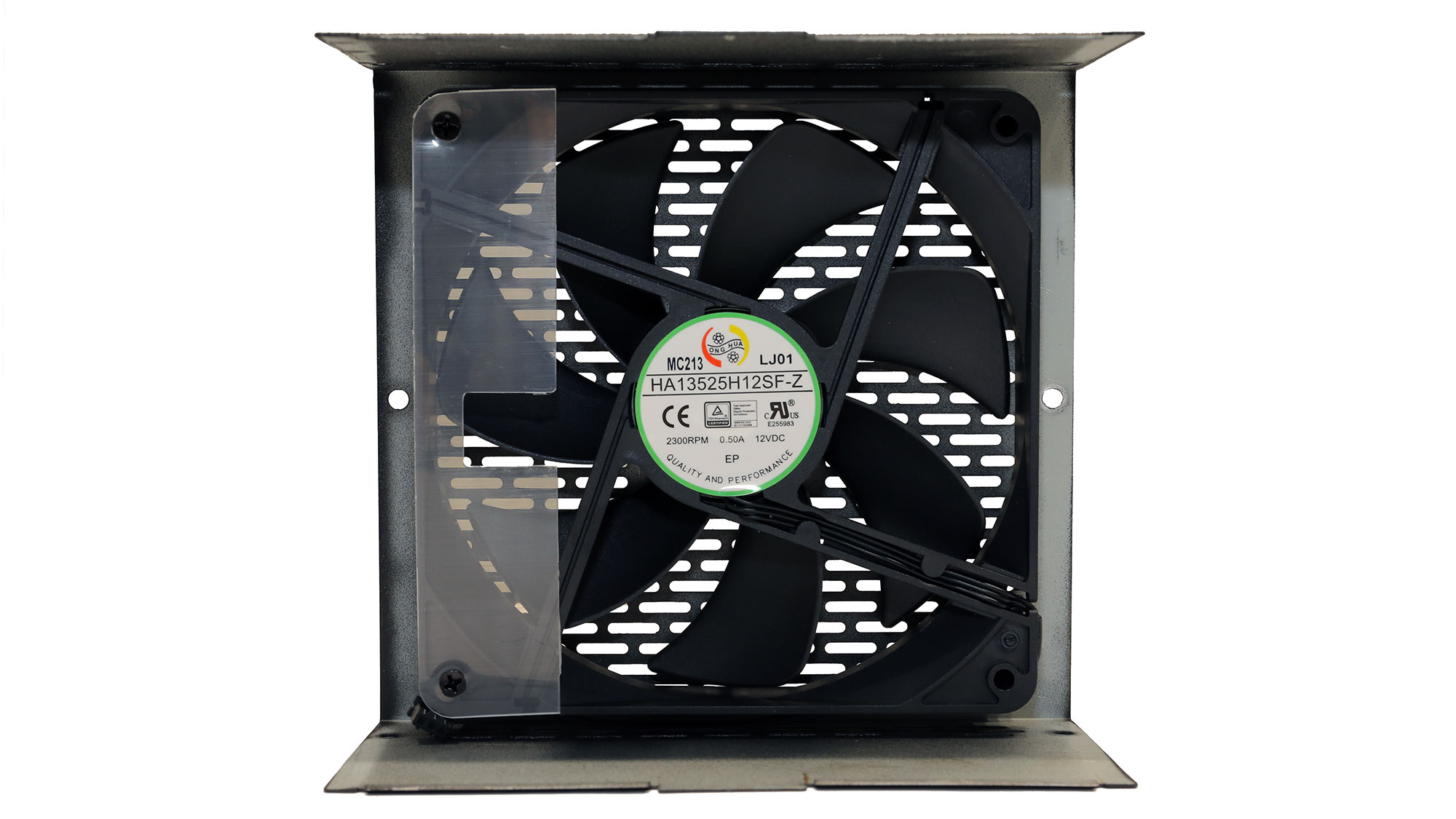
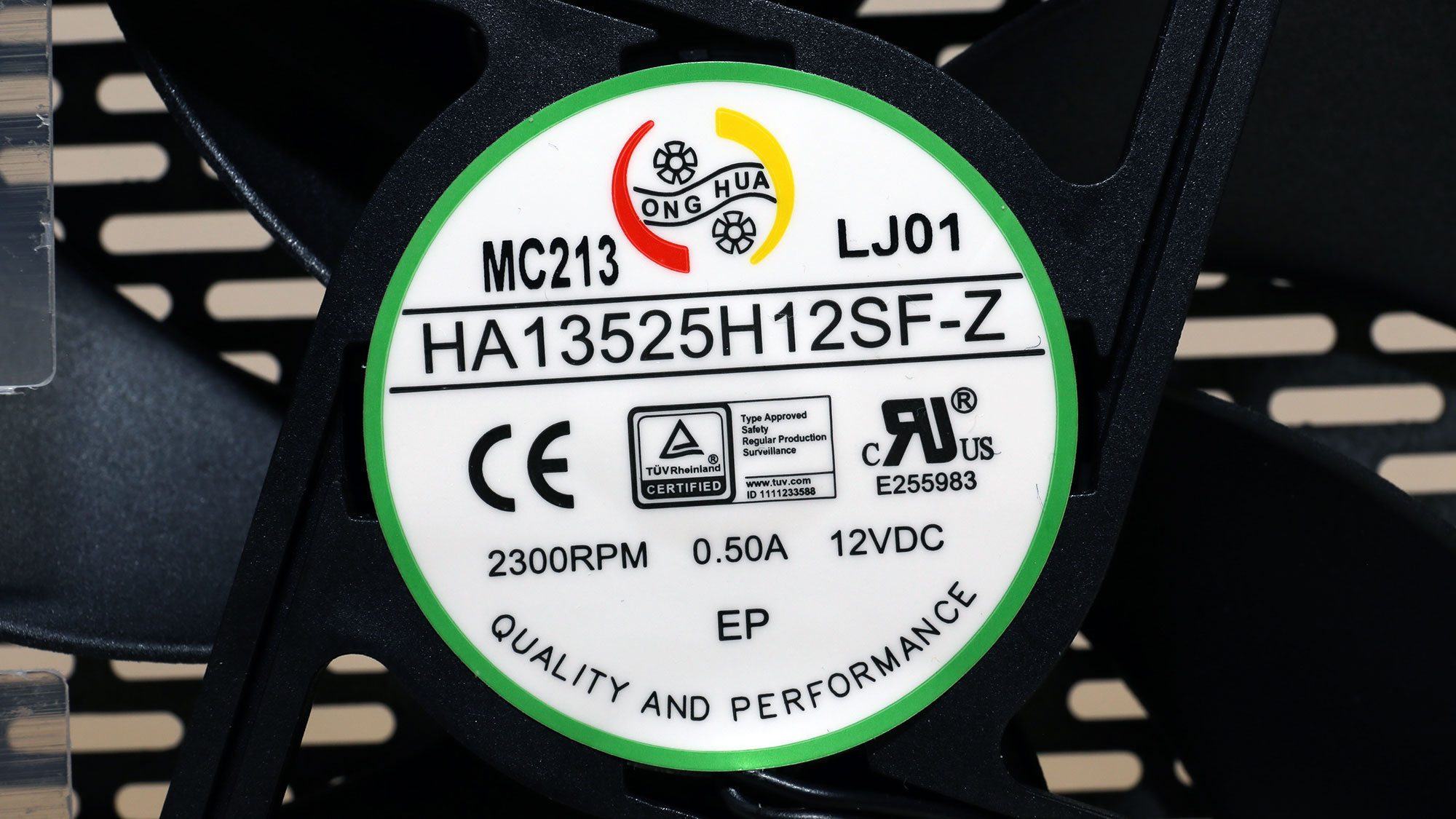
The cooling fan is by Hong Hua and it uses a fluid dynamic bearing, so it should work for a nice, long time.
MORE: Best Power Supplies
MORE: How We Test Power Supplies
MORE: All Power Supply Content
Current page: Specifications and Part Analysis
Next Page Load Regulation, Hold-Up Time, Inrush & Leakage Current, Efficiency and Noise
Aris Mpitziopoulos is a contributing editor at Tom's Hardware, covering PSUs.